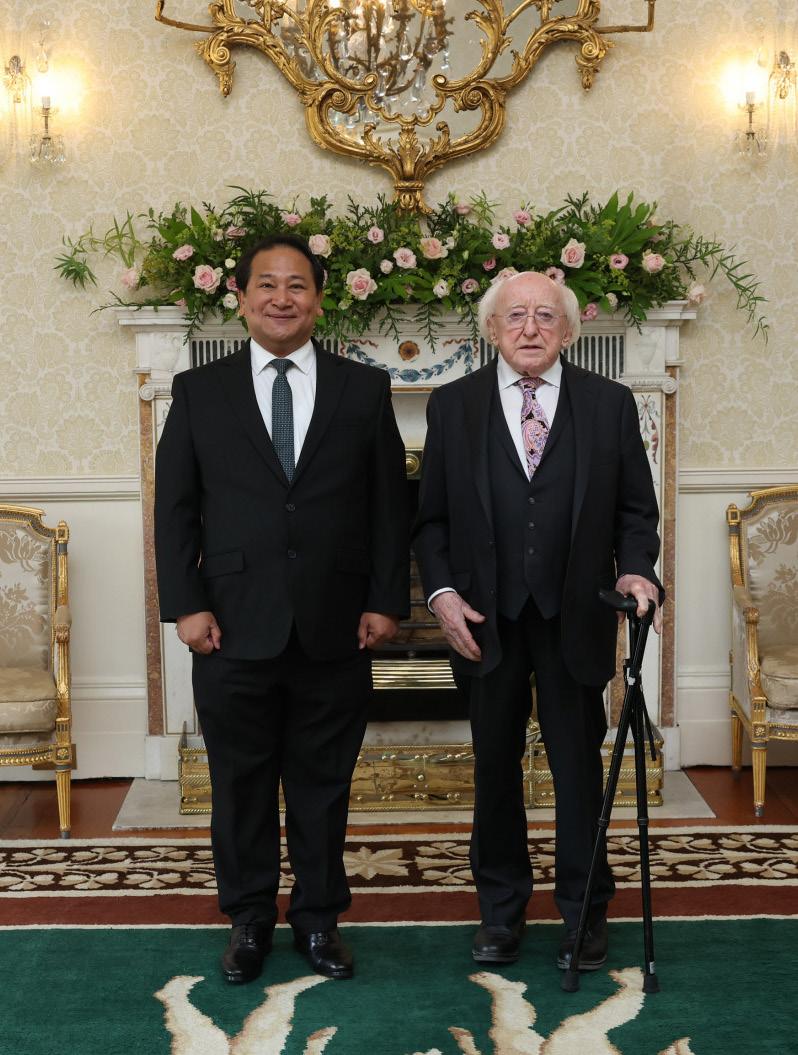
“TARA, Let’s


“TARA, Let’s
Dear readers,
I hope you all had a wonderful summer — whether it be traveling, spending some quality time with family or just finding time to wind down and relax. With long summer days now behind us, we step into a busy season of change, new rhythms and fresh perspectives.
We are happy to share our Q3 autumn issue with you. In this issue, we celebrate the Filipino spirit across Europe—through stories of leaders, artists, and everyday journeys. From Ambassador Daniel R. Espiritu to an Au Pairs Journey, from festivals in Zurich and Prague to identity rediscovered in Vienna, our pages capture culture, connection, and community in motion.
You will find stories of food and tradition through the ENFiD Cookbook and Kawali; we also highlight voices in Tara, Let’s Talk and the OFW Town Hall, as well as showcase Filipino presence on global stages—from Arctic encounters to the Frankfurt Book Fair. Together,
these stories remind us of our shared roots and ever-growing horizons.
As autumn settles in, here’s wishing you cozy vibes and fresh inspiration for the season ahead… Happy reading and until our next issue!
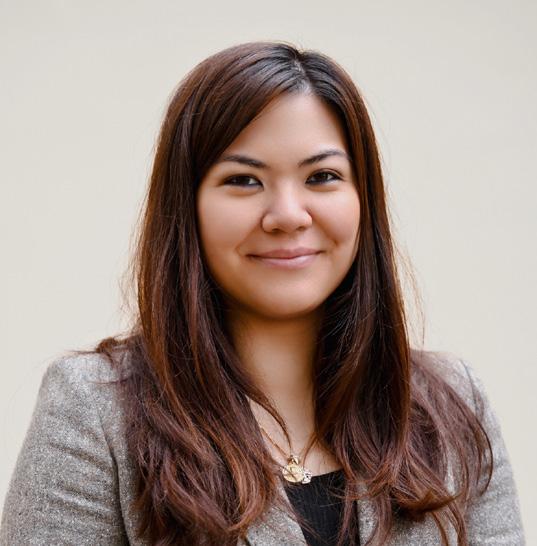

Rebecca Urbančík Garcia EDITOR-IN-CHIEF
AMBASSADOR DANIEL R ESPIRITU P6
TARA, LET’S TALK P 12
ARIEL LACHICA P1 8
FEDERFIL P 21
ENFID UPDATES P2 3
MERVIC VICKY MONOCILLO P2 7
COMMON GROUND P2 9
A ROYAL AUDIENCE IN THE ARCTIC P 32
ACROSS ISLANDS & ALPS P3 4
REDISCOVERING IDENTITY IN VIENNA P3 6
ENFID COOKBOOK P 41
DANCE GROUP IN SWEDEN P 45
AU PAIRS JOURNEY P 48
PHILIPPINE FESTIVAL ZURICH P 51
BARRIO FIESTA IN PRAGUE P 53
EMBASSY BOOK READING P 57
KAWALI P 57
OFW TOWN HALL P 58
PH BOOKS AT FRANKFURT BOOK FAIR P 59


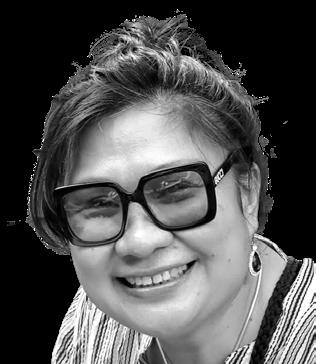
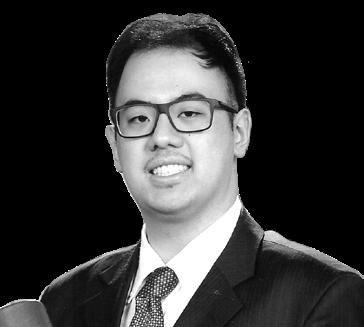

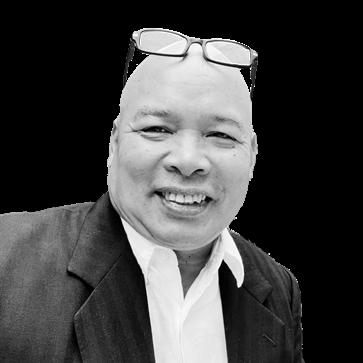
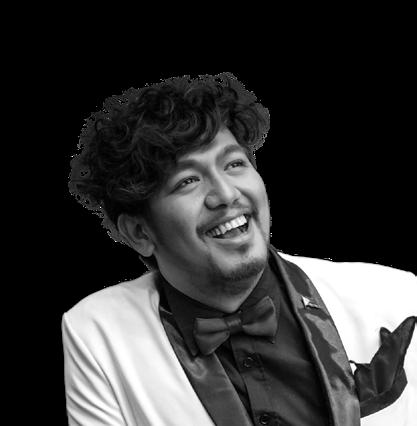

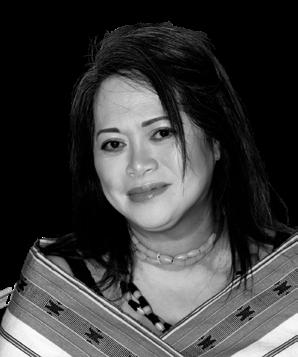

roots & wings filipino magazine in europe published by rachel publishing co. stockholm, sweden 2009-2025
WOULD YOU LIKE TO JOIN OUR RAWMAGS TEAM? volunteer roles now open for bureau editor italy, denmark, finland, iceland, portugal, malta, greece, poland, turkey, ireland. email rawmags.rebecca@gmail.com







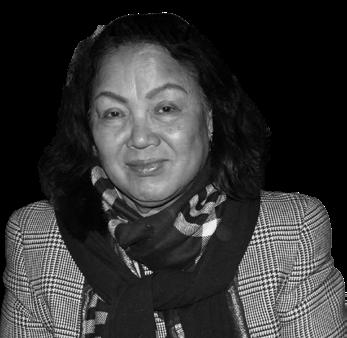
FOLLOW US ON SOCIAL MEDIA
instagram: @raw.mags
twitter: @rawmags
facebook: @rawmags
youtube: @rawmags linkedin/rawmags

legal
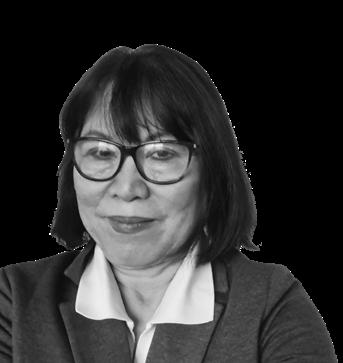
FEEDBACK PAGE What do you think of our magazine? Email rawmags.rebecca@gmail.com
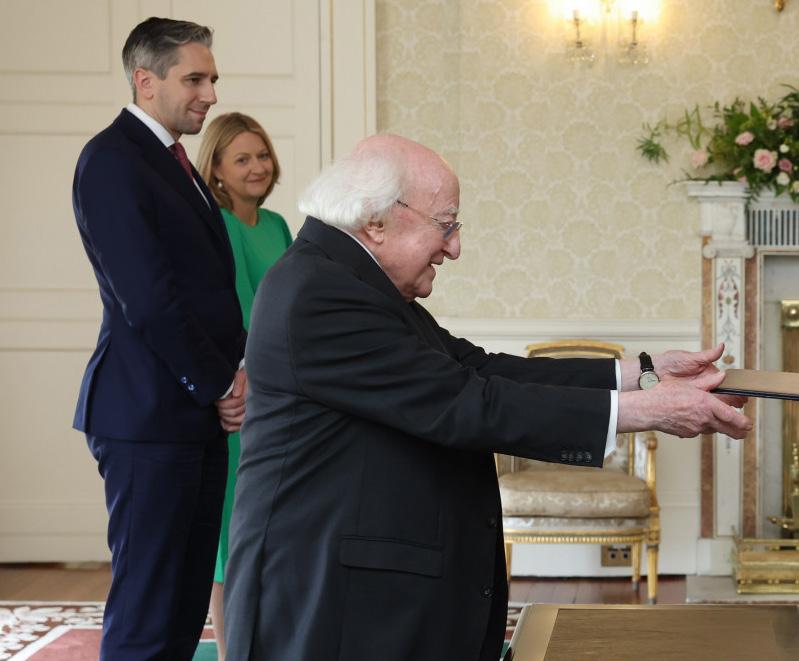
How Ambassador Daniel R. Espiritu’s 35-year journey from Cold War battlegrounds to Dublin's Georgian streets rewrote the rules of modern diplomacy
By
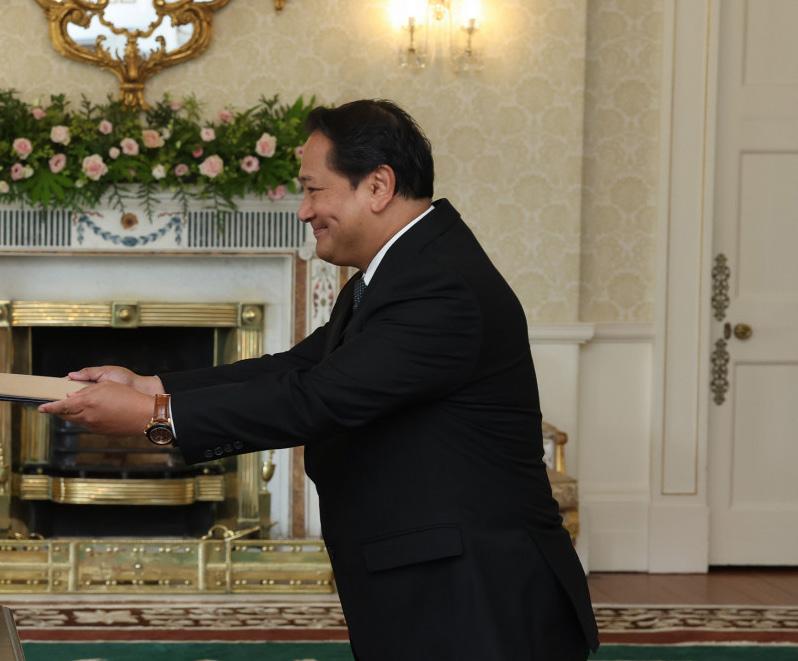
In the stately halls of Áras an Uachtaráin, where Georgian elegance meets Irish statecraft, history was being rewritten. The moment Ambassador Daniel R. Espiritu stepped forward to present his credentials to President Michael D. Higgins as the country's new Ambassador Extraordinary and Plenipotentiary, few could have imagined the extraordinary journey that brought him here. But for Ambassador Espiritu, the path from dreamer to diplomatic powerhouse was paved with crises that would have broken lesser souls—and triumphs that redefined what embassies could accomplish.
On July 1, 2025, as Ireland's Deputy Prime Minister witnessed the historic ceremony, Ambassador Espiritu, accompanied by his wife Carryn and Consul General Eric R. Aquino, officially presented
his credentials. After 12 years of dormancy, the Philippine Embassy in Dublin didn’t just reopen; it erupted back to life, instantly transforming the reality for 22,500 Filipinos who had long been cut off from their homeland’s embrace.
This isn't merely another diplomatic appointment. It's the story of how raw determination, forged in the world's most dangerous assignments, created a lifeline that thousands thought was lost forever.
While most young diplomats ease into comfortable postings, Espiritu's baptism came at history's sharp edge, south Korea during the Cold War's final act. There, on the fault line of global tension, he learned
to read the subtle signals that meant life or death, to find calm in chaos, and to seek common ground when the stakes couldn't be higher.
That crucible set the trajectory for everything that followed. As Deputy Consul General in Los Angeles from 2007-2013, he discovered that diplomacy's true power resided not in government halls but in communities, among the 500,000 FilipinoAmericans whose dreams he helped nurture. It was a lesson that would prove prophetic in Ireland, where Filipino professionals now form one of Europe's most dynamic immigrant communities.
But if Los Angeles taught him the power of community, his next assignment tested every skill he'd developed. From 2015 to 2021, Espiritu served as Ambassador Extraordinary and Plenipotentiary to Pakistan, Afghanistan, Kyrgyzstan, and Tajikistan, arguably among the most complex and dangerous diplomatic portfolios on Earth.
Operating from Islamabad, he navigated active conflicts, counterterrorism operations, and regional instability while ensuring the safety of Filipino communities scattered across south and Central Asia. Each day brought crises that would shatter ordinary diplomats. Each decision carried consequences measured in human lives.
He didn't just survive, he thrived. His success in these seemingly impossible conditions marked him as one of the Philippines' most capable crisis managers
and prepared him for his next challenge: mastering the intricate choreography of multilateral diplomacy.
Between 2021 and 2025, as Assistant secretary for AsEAN Affairs and Director General of its National secretariat, Espiritu faced his most complex challenge yet: steering cooperation among ten diverse nations during a period of unprecedented global upheaval. China's rise, America's pivot, economic integration pressures, and climate emergencies created a diplomatic minefield that demanded every skill he'd mastered.
These years refined him into one of the Philippines' most complete diplomats, equally adept at political security negotiations, economic diplomacy, consular care, and cultural exchange. When Ireland called, he carried not just experience but an unshakeable conviction: diplomacy's ultimate purpose is serving people, building bridges, and creating hope where none existed.
Long before he became one of the Philippines’ most respected diplomats, Ambassador Daniel R. Espiritu was a dedicated martial artist. “Yeah, I was into Okinawan karate, Okinawan shorin-ryu Karate-do,”
THE FIVE-PILLAR VISION: REDEFINING EMBASSY EXCELLENCE
Espiritu's vision extends far beyond traditional embassy functions. His comprehensive mission encompasses five transformative pillars:
POLITICAL DIPLOMACY: High-level consultations and treaty negotiations that advance Philippine interests across European forums, leveraging Ireland's influential voice in EU circles.
DIPLOMATIC COOPERATION: Strategic coordination in international organizations where Ireland and the Philippines often find themselves natural allies, amplifying both nations' influence.
ECONOMIC DIPLOMACY: Perhaps most impactful for overseas Filipinos, this encompasses trade promotion, investment facilitation, and creating frameworks for
business partnerships that reshape both economies. With bilateral trade already exceeding €500 million annually, Espiritu sees unlimited potential: "This is only a fraction of what we can achieve."
SOCIAL & CULTURAL AFFAIRS: Promoting Philippine culture and heritage while fostering deep understanding between communities—where his martial arts background proves invaluable in creating authentic connections.
CONSULAR AFFAIRS: The most directly impactful for diaspora communities, providing comprehensive services from passport processing to crisis assistance. "It is the part of the embassy that most directly connects with the day-to-day lives of Filipinos overseas," he emphasises.
he recalls. But his training didn’t stop there. He also practiced Arnis and Kali, the Filipino martial arts of stick and blade fighting, as well as various forms of Kung Fu.
"Arnis is uniquely ours," he reflects. "It's a cultural bridge that builds connection, understanding, and respect, just like diplomacy." In Los Angeles, he engaged with multicultural martial arts communities, often citing Dan Inosanto—Bruce Lee's protégé and one of only three authorised Jeet Kune Do instructors—whose work brought Filipino fighting arts from Hollywood films to U.s. military training.
This fusion of Eastern discipline and Western diplomacy would prove essential in Ireland, where cultural exchange becomes a pathway to deeper understanding.
Reopening an embassy dormant for over a decade wasn't just about securing office space and navigating paperwork; it was about reconnecting 22,500 Filipinos to a homeland they thought had forgotten them.
For 12 years, every Filipino in Ireland faced the same crushing choice: spend hundreds of euros and precious vacation days travelling to London for basic consular services, or go without. Birth certificates for newborns, passport renewals for breadwinners, and emergency assistance for families in crisis all required expensive pilgrimages to a foreign capital.
"It may seem straightforward, but it's not," Espiritu candidly acknowledges about the monumental revival task. Yet operating from temporary quarters while permanent facilities were prepared, the embassy immediately began processing hundreds of applications—each one easing a life, averting a crisis, reconnecting kababayans to home.
The community's response was overwhelming. "Wonderful and ecstatic," describes Espiritu. Beyond eliminating costly London trips, the embassy delivered something invaluable: the personal touch that transforms bureaucracy into a human connection.
"Hearing 'salamat' from our kababayans, the relief in their voices, that's what makes every diplomatic effort worthwhile," he reflects, revealing the true heart of his diplomatic philosophy.
Bilateral trade between the Philippines and Ireland currently totals €500 million annually, with over 75% concentrated in semiconductors, electronics, and integrated circuits. “These numbers are just the
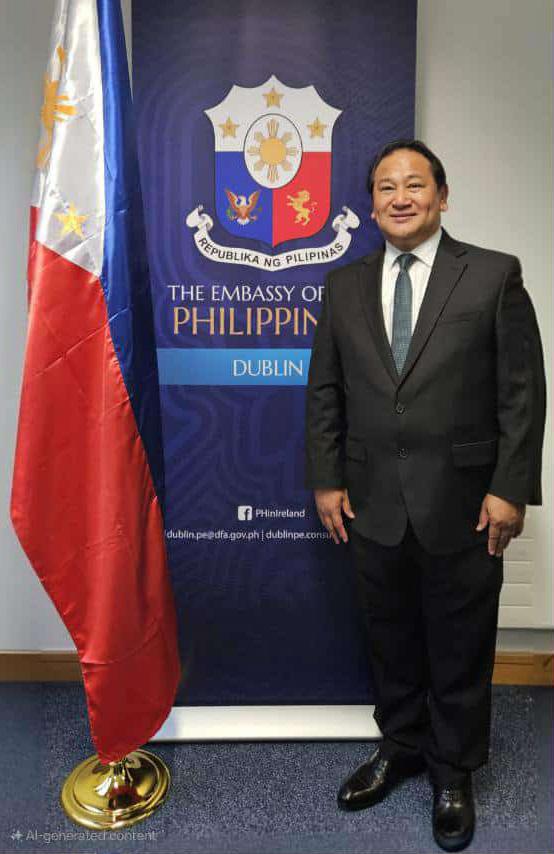
foundation,” Ambassador Espiritu observes. He sees enormous potential for growth in pharmaceuticals, renewable energy—including wind and hydroelectric projects—and infrastructure development, from bridges to highways and motorways.
For Filipino professionals in Ireland, this growing economic landscape means more than trade figures— it opens doors to new career opportunities, potential pathways back home, and the chance to actively shape stronger, lasting connections between the Philippines and Ireland. “By pursuing these avenues, both nations can forge partnerships that are not only mutually beneficial but enduring,” Espiritu notes, emphasizing how strategic collaboration can turn potential into real, measurable impact.
Espiritu's vision for cultural diplomacy transcends traditional showcasing. When asked about his ideal Philippine-Irish cultural exchange, his imagination soars: "One that combines the dances of the Philippines and Ireland, a fusion of east and west. For Ireland,
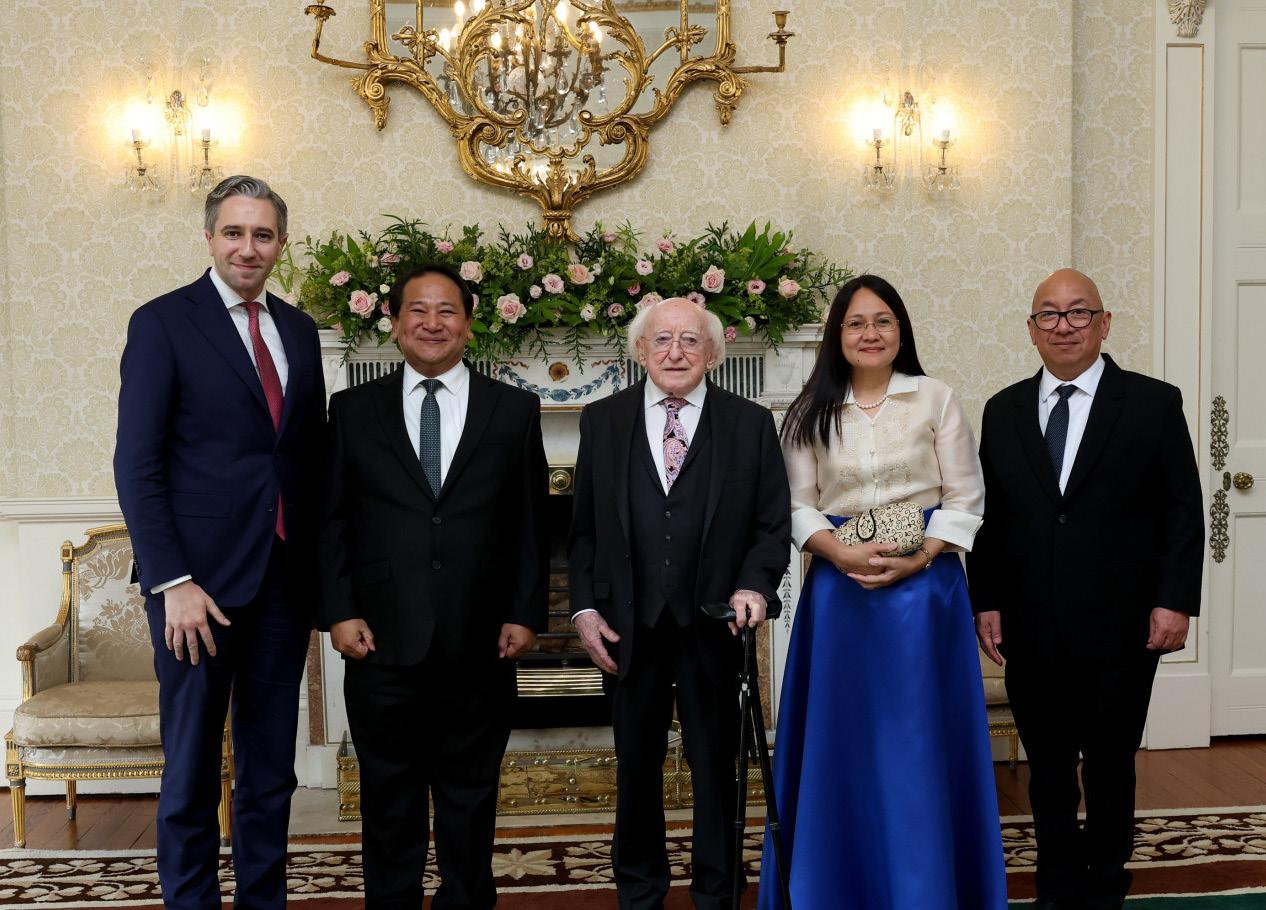
Riverdance; for the Philippines, tinikling or malong dance. The costumes alone will be spectacular, and instruments will make it significant, Irish harp or the bagpipe, the Philippine kulintang. A perfect show."
This philosophy of genuine fusion rather than separate traditions reflects his deeper approach: creating something entirely new where each culture's strengths enhance rather than compete with the other's.
"Cultural diplomacy is key to international peace and cooperation," he emphasises. "Culture shapes attitudes and values. When we understand each other, we see the beauty—pareho pala tayo. We're the same."
When asked which Filipino dish he would serve or recommend to his Irish neighbors, Ambassador Espiritu does not hesitate: tinola. In quieter moments, he explains, culinary exchange is central to his approach, making diplomacy deeply human. Tinola — a hearty chicken soup with vegetables—is more than
a meal; it’s a bridge between cultures. “I serve it to visiting diplomats at my residence,” he notes, “and it’s always well received. Food connects people in ways words cannot.”
When asked to compare Irish coffee with Baileys and Filipino Barako coffee, Espiritu explained that they are simply different. “Irish coffee is perfect for evenings here, while Barako coffee is our morning fuel in the Philippines—strong, bold, and energizing. They can’t be compared, but both are remarkable in their own ways.”
In an era dominated by digital communication, Espiritu believes the most enduring diplomatic work happens around the table, where meals and drinks transform strangers into friends and agreements into lasting partnerships.
As our conversation deepens, Espiritu's strategic thinking emerges. The Dublin embassy represents something far more ambitious than a diplomatic
“ HEARING ‘SALAMAT’
THEIR
THAT’S
mission; it's a platform for partnerships between two nations that share fundamental challenges.
"We plan to expand relations not only politically and diplomatically but bilaterally and multilaterally, cooperating within the UN system and other international organizations," he explains.
This multilateral focus reflects profound strategic insight: "We are small countries, some say middle powers, but there's a challenge with the rule of international law. The weight of superpowers outweighs us. Our only protection is the rule of law."
It's both a sobering acknowledgement of how smaller nations navigate complex global orders and a testament to the strategic value of partnerships between countries sharing fundamental values and similar challenges.
The transformation is already visible. Every passport processed, every emergency resolved, every business connection facilitated represents the embassy's promise fulfilled: distance from home doesn't mean disconnection from it.
"What will define our partnership isn't just policy papers or trade statistics," Espiritu reflects as Dublin's
afternoon light filters through embassy windows. "It's the human connections we forge. Irish warmth embracing Filipino excellence will strengthen both nations for generations."
The coincidence of the embassy's reopening with the 40th anniversary of Philippines-Ireland diplomatic relations adds poetic resonance to practical achievement. President Higgins' recognition of the Filipino community for their vital contributions in healthcare, technology, and finance validates Espiritu's vision of people-to-people diplomacy.
"The moment you know someone more, trust enters," he reflects. "No more suspicion and fear, you gain trust. Only then do you begin real cooperation."
In Ireland, that trust isn't just taking root; it's bearing fruit that will nourish both nations for decades.
For 22,500 Filipinos who can now see their future brightening with possibilities they thought were lost forever, the message is unmistakable: your homeland hasn't just returned, it's actively fighting for your dreams, committed to nurturing bonds that will endure across generations.
This transcends diplomatic success. It's proof that when passion meets preparation, when dreams encounter determination, when one person's vision becomes an entire community's hope, anything becomes possible.
The history-loving teenager who dared dream of participating in international relations didn't just achieve his ambition. He became the dream that thousands of other Filipinos didn't know they could still have. He has become the architect of opportunity for an entire nation abroad. In Ireland's emerald embrace, the Philippines has found not just a partner, but a pathway to proving that distance is no barrier to the bonds that truly matter.
In Dublin's Georgian elegance, where past meets present, Ambassador Daniel R. Espiritu has written a new chapter in diplomatic history, one measured not in treaties signed but in lives transformed, not in protocols observed but in hopes restored.
The Philippine Embassy is currently operating from temporary offices at 108 Alexandra House, 3 Ballsbridge Park, Merrion Road, Dublin 4. More than just an address, it stands as a symbol of what becomes possible when dedicated individuals refuse to accept limits, transforming challenges into opportunities for connection, service, and hope for Filipinos across Ireland.
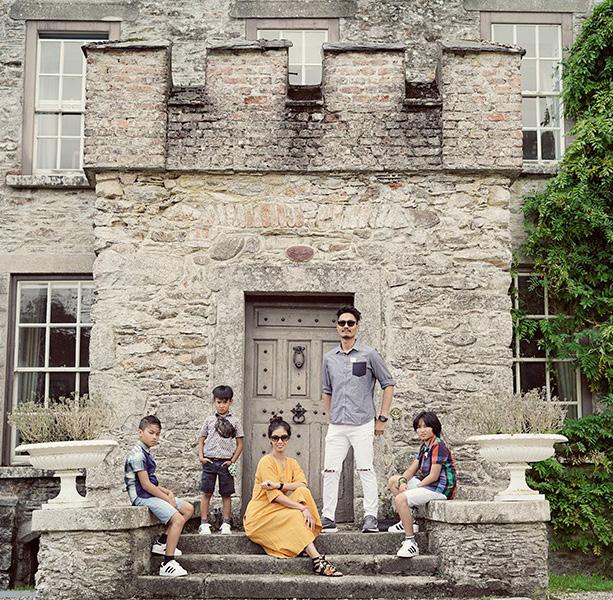
‘Tara, L et’s Talk’
Filipino power couple, Don and Lora Kiram
By Hilda Arenas
What if we told you that Ireland’s most influential Filipino couple juggles three energetic boys, demanding healthcare careers, and a podcast that’s become the heartbeat of an entire diaspora, all while making it look effortless?
Meet Don and Lora Kiram. From the sun-drenched islands of the Philippines to the emerald landscapes of Ireland, they’ve built a joyful new life with their boys, and are redefining what success truly means. Behind their acclaimed podcast ‘Tara, Let’s Talk’ lies a love story that transcends borders, bridges faiths, and proves that authentic connection can transform communities.
But here’s the plot twist: Their partnership isn’t just inspiring, it’s revolutionary. Lora’s journey from Christian faith to Islam, combined with Don's deep-rooted Islamic traditions, has created something extraordinary: a marriage that doesn’t just celebrate diversity, it weaponises it for good.
Picture this: a Tagalog-speaking woman from Luzon meets a Tausug man from sulu. Different languages, different traditions, different faith journeys. Most people would see obstacles. The Kirams? They saw an opportunity.
When asked how the couple’s different cultural and religious backgrounds have shaped their partnership, Don leans back with his knowing smile that says he’s about to drop some wisdom. “The Philippines may be known as the only Catholic country in Asia, but it’s more secular in governance. With mainstream media reaching from Apparri to sulu, we all somehow adapt and learn from each other visually. In practice, things might differ, but all of us, no matter what part of the Philippines we’re from or what belief system, we all have this innate moral compass, also called fitra in Arabic. That’s what guides us, and that’s what works for us.”
know how to work on our dynamics. Our life right now revolves around our three boys’ schedules!”
They’ve turned their differences into their superpower.
Here’s where it gets interesting. What started as an innocent travel vlog became Ireland’s most authentic Filipino voice. But this wasn’t just a career pivot; this was destiny calling. Lora’s passion is infectious as she explains what inspired them to start “Tara, Let’s Talk.”
“We started with our travel vlog channel, and oftentimes we’d talk to people instead of just showing the places we’d been to. We love talking to people and are keen to know more about the people themselves. In reality, that’s when we all learn about the facts of life by directly knowing it from the sources’ experiences.” Don’s voice grows serious. “The podcast ‘Tara, Let’s Talk’ kicked in when there was a sudden influx of Filipino OFWs coming to Ireland in the last couple of years. We’d like to share their stories with those aspiring to come to Ireland, and at the same time, make sure it resonates with the reality of working in Ireland and abroad in general. We want our kabayans outside Ireland to experience what they should expect.”
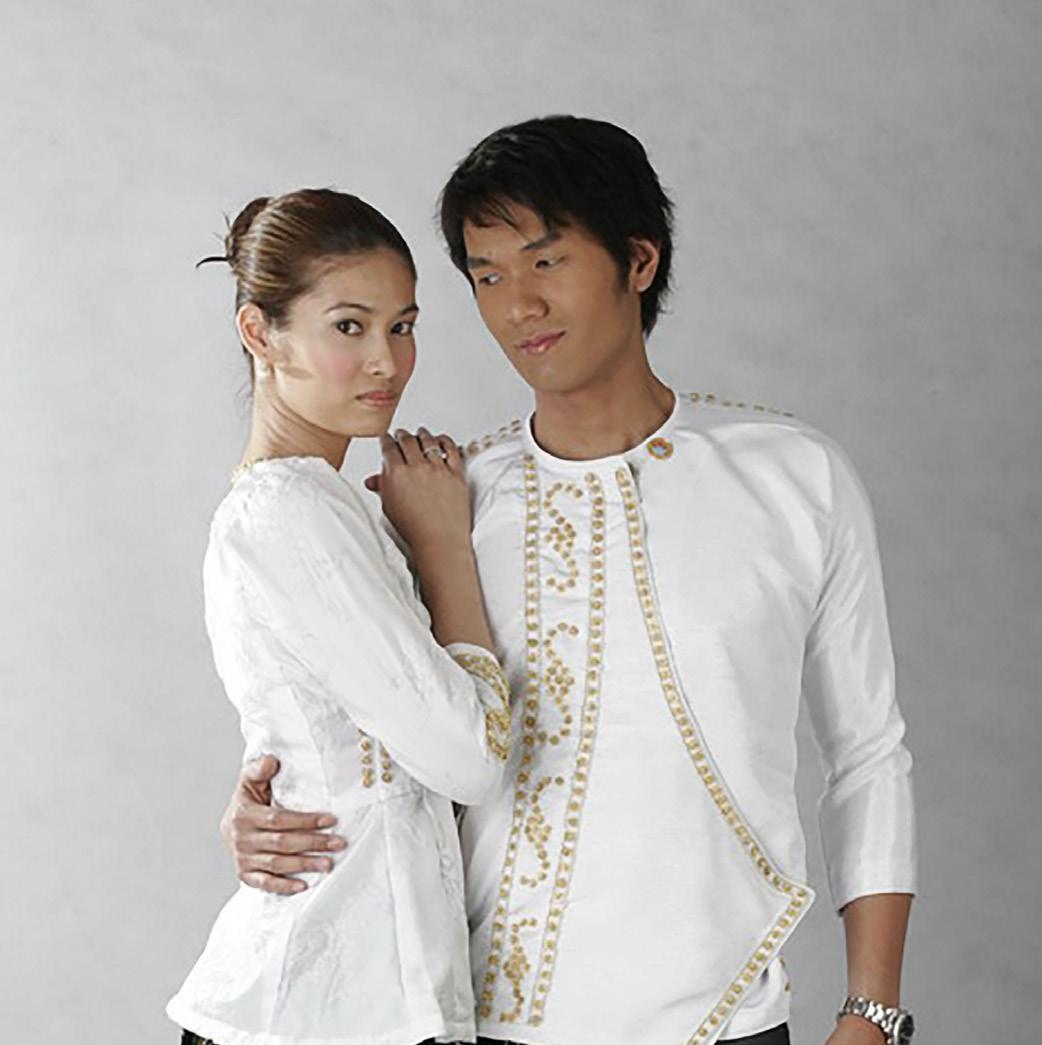
The result is a platform where truth trumps perfection, and real stories matter more than polished narratives.
Plot twist alert. A vacation to southern spain became a cultural awakening that would reshape their entire approach to community building. This isn’t just travel, this is transformation.
Lora’s eyes sparkle as she adds, “And professionally, since both of us are from healthcare backgrounds, we
Don’s voice carries the weight of discovery as he explains how their travels to spain changed how they approach cultural understanding. “Indeed, we both have cultural differences when brought up. Lora from Luzon (Tagalog) and Don from sulu (Tausug). But truly, it was eye-opening when we travelled to southern spain as the history unfolded in front of our
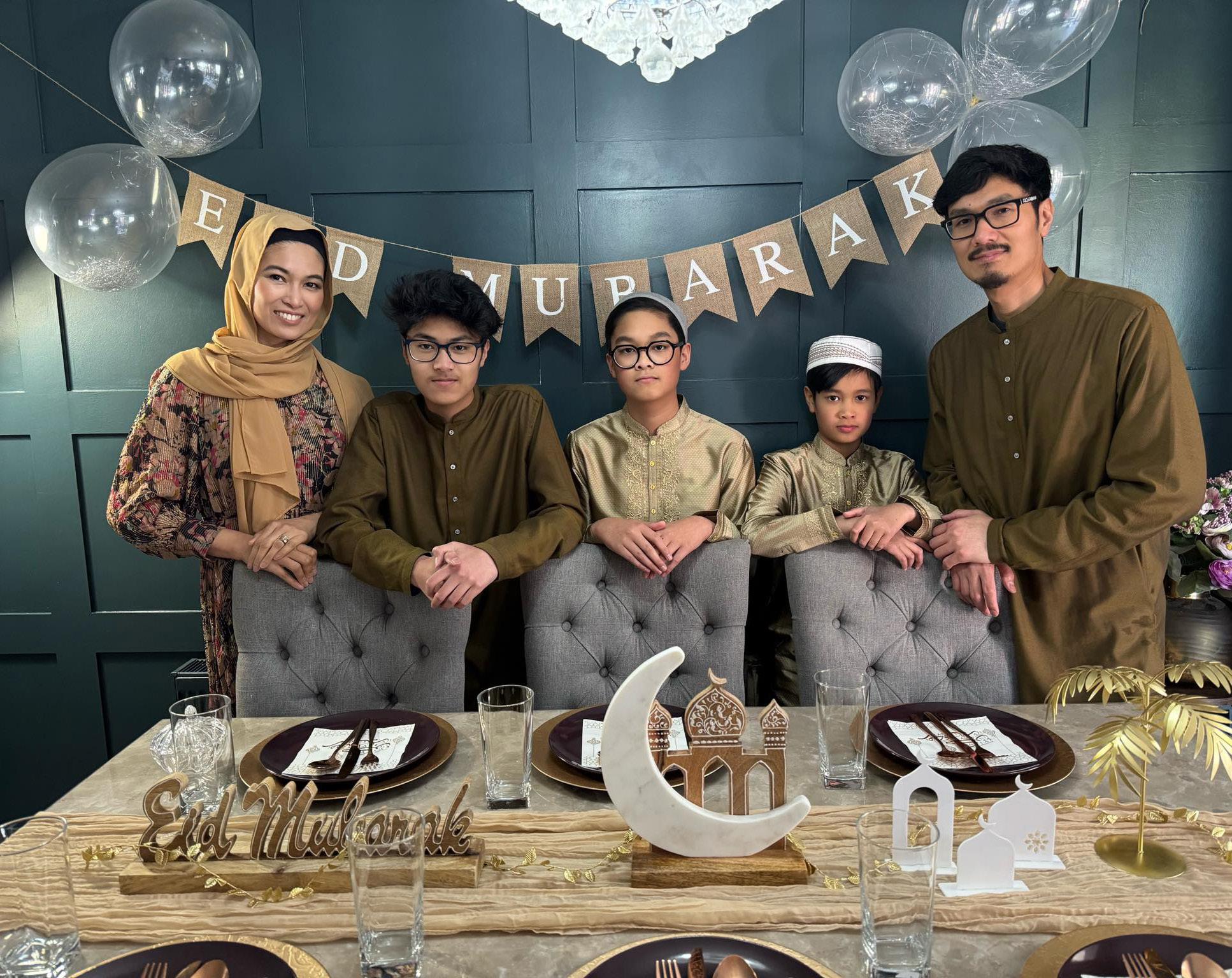
eyes. We discovered how spain and the pre-colonial Philippines have a resounding history.”
Lora practically glows as she continues, “spain, being known as the Iberian Peninsula, was ruled by Muslims (Moors) from 711-1492 before the Reconquista, and pre-colonial Philippines had mostly Muslim inhabitants (Moros) from 1380 until the arrival of Ferdinand Magellan in 1521. Muslims, Christians, and Jews were working together and flourished during the Islamic Golden Age in spain.”
Don drives the point home. “Filipinos should be aware of their history before 1521. They should be coherent enough to embrace this part of history, just like the spanish in southern spain these days, where they proudly say their ancestors were Muslim Moros and share that history as part of their tours.”
Then came the moment that proved their impact wasn’t just online, it was transforming real lives,
real communities, real futures. The couple covered Philippines' National Heroes Day live and were recognised for their work.
When asked about the experience, Lora’s response is pure joy. “It’s always fun to talk to our kabayans, and of course, we were delighted seeing the attendees enjoying themselves, appreciating and learning Filipino heroes’ history as narrated by our Ambassador Daniel R. Espiritu.”
Don beams with pride. “On top of that, having been recognised for the ‘TARA, LET’s TALK’ podcast, doing what we love and what seems like we’re just having fun talking with people, that’s wonderful!”
But wait, there’s more. Lora didn’t just conquer podcasting; she conquered fashion, too, including winning a prize at the Ladies Day Races.
“I have always loved fashion,” she shares, passion radiating from every word. “As a child, I would draw dolls and design dresses. I worked as a fashion consultant, which I enjoyed when I was in the
Philippines, and learned a lot about fashion before getting a job in nursing.”
Her voice fills with emotion as she continues, “Winning the Tramore Ladies Day was a proud moment for me as a Filipino and a fashion enthusiast. Being a Filipina wearing a Filipiniana dress and a Filipino-designed headpiece represents how proud I am to be Filipino. I felt a deep sense of pride in my heritage. It wasn’t just the victory itself; it was the moment to inspire others in the Filipino community and beyond.”
How do the Kirams balance demanding healthcare careers with family life and community engagement?
that has misconstrued the understanding of what Muslims really are in the Philippines. We’d like to educate our kabayans that we all have the same dayto-day goals in life as human beings.”
Lora’s wisdom shines through as she defines their vision for bridging communities in Ireland. ‘In theory, this might be simple. We begin by embracing our own family, our own people, our own cultures and traditions. By doing that, we will then respect others and will appreciate how they do it, either like us or the other way around.”
“ WE’D LIKE TO EDUCATE OUR KABAYANS THAT WE ALL HAVE THE SAME DAY-TODAY GOALS IN LIFE AS
Lora’s answer might surprise you.
“We are lucky that Ireland is such a familyoriented nation. In any given situation, family comes first; whether you’re Filipino or Irish, we all know what comes first. As healthcare professionals, our working hours are flexible. We resolve our work schedule with our boys’ needs and our spare time being involved in community occasions, and our podcasts.”
The secret isn’t time management, it’s priority alignment.
Here’s where it gets powerful. As one of Ireland’s most visible Filipino Muslim families, they’re not just representing, they’re educating, inspiring, and transforming perceptions.
When asked what might surprise people about his family’s cultural traditions, Don’s response is both gentle and firm. “When you say ‘home’, like sulu, women are well-respected and are not subjected to oppression when they cover the AURATs (i.e. wearing hijab, not exposing too much skin). They are so precious that they shouldn’t be exposing themselves (body) publicly.”
His conviction deepens. “As a minority Filipino Muslim family in Ireland, we’d like to bring positivity to our Filipino community regarding the stereotyping
Don adds the spiritual dimension. “Respect is probably the key, and even in the Islamic religion, the Quran says ‘La ikraaha fid deeni’ — meaning ‘There is no
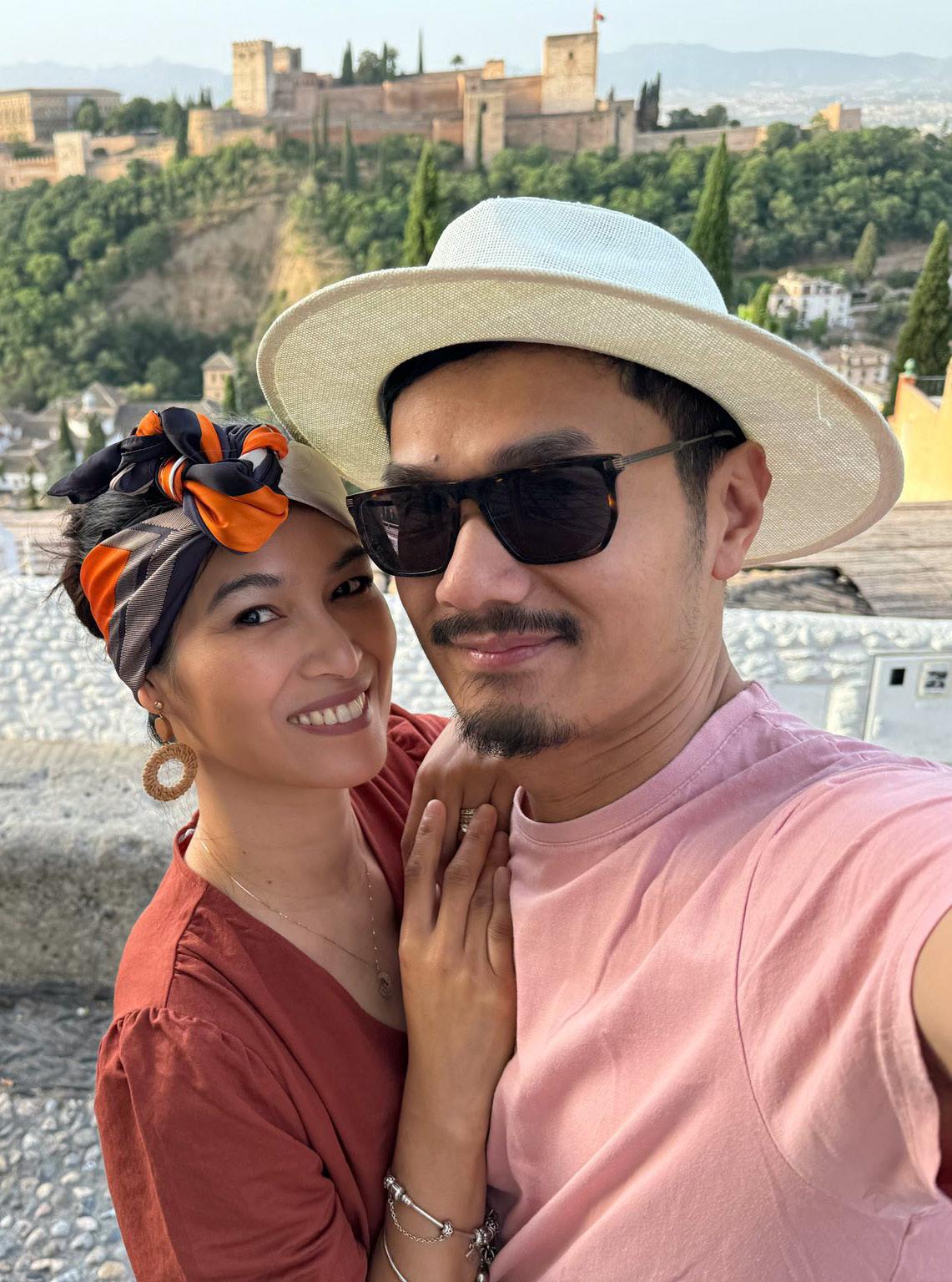
compulsion in religion.’ This connotes that there’s no forcing someone into believing or acting like yours.”
Lora concludes with their rallying cry. “Ireland is becoming so diverse now. Let us lead the way to make this a positive one by being in good relations with other nationalities. As people living in Ireland, we should integrate to propel a prosperous and vibrant community.”
When speaking about the podcast, Lora’s pride is unmistakable. “We’re gladly saying that we did podcasting when there were no Filipino podcasts yet in Ireland. Life is nothing but challenges and constant changes; we accept and embody that. We just hope that the next generation of Filipinos in Ireland will not
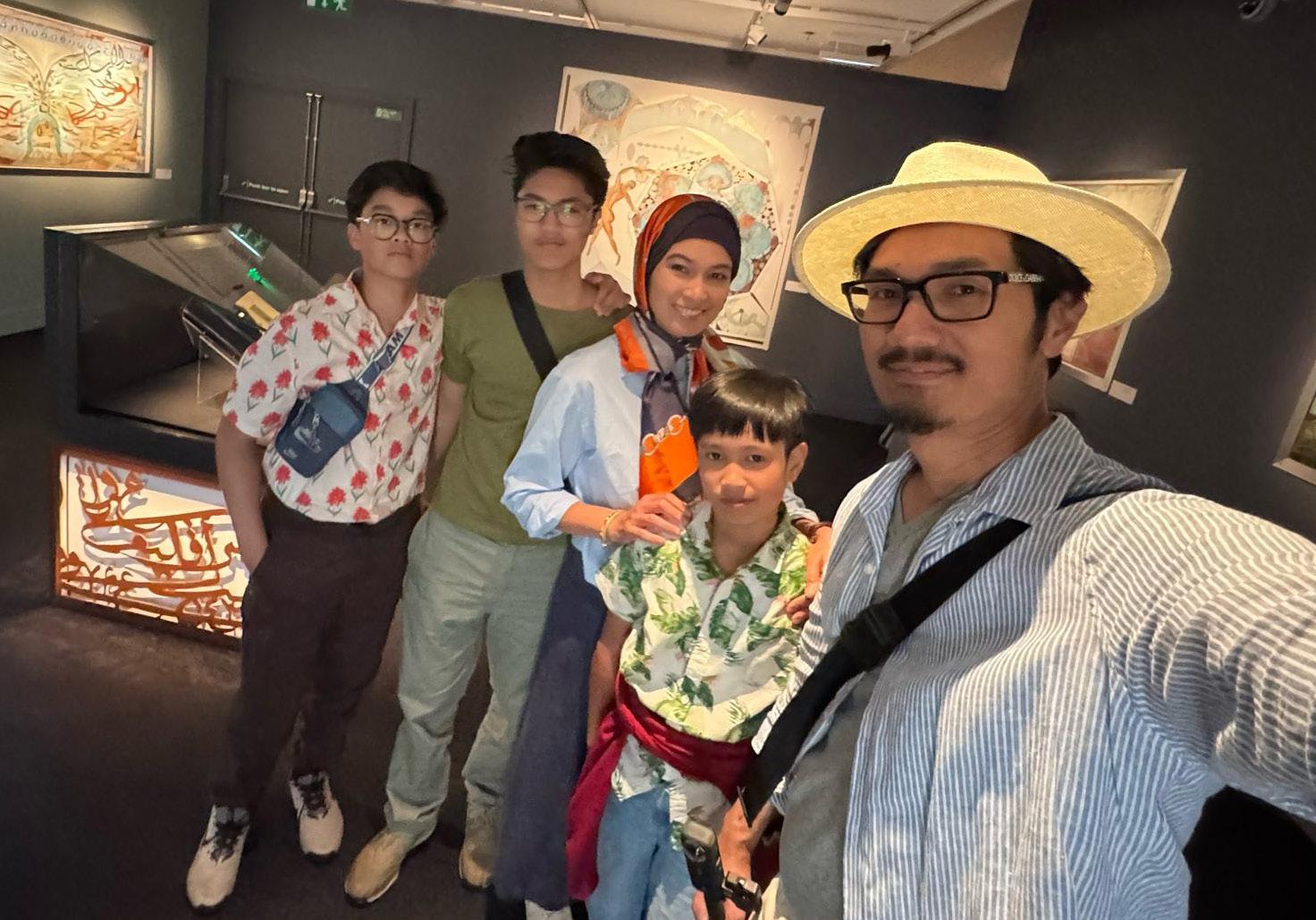
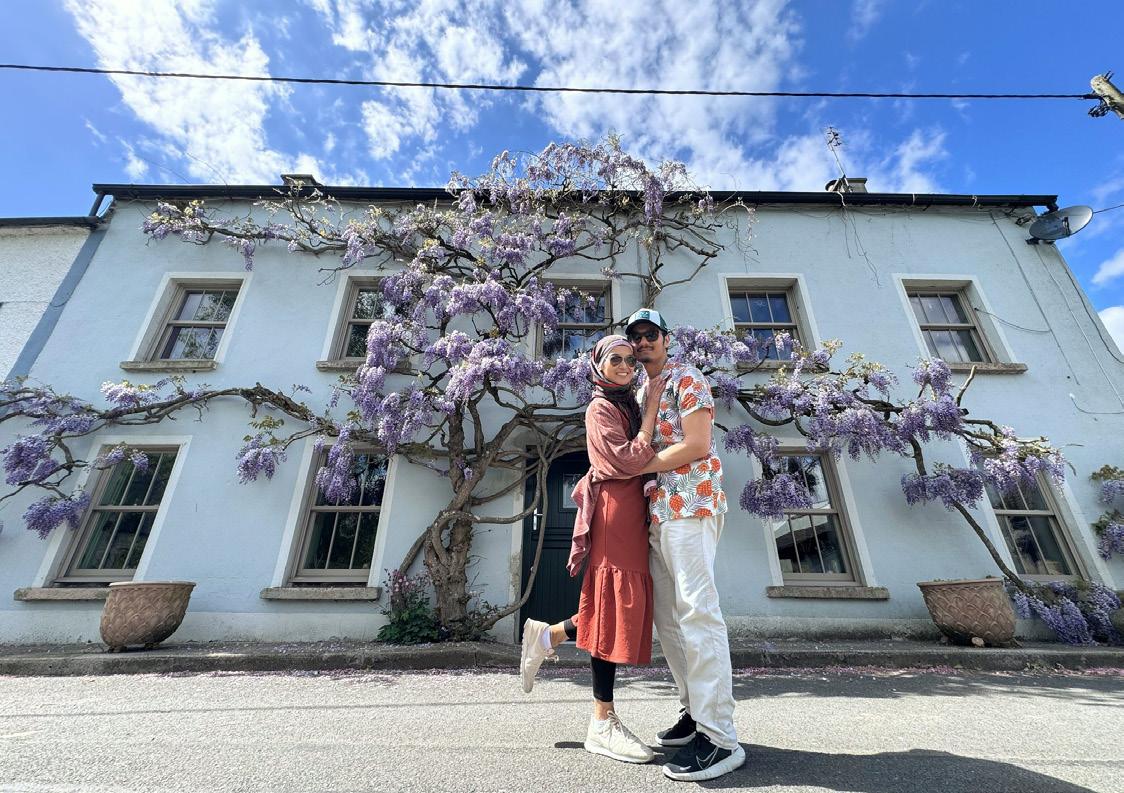
only reflect from us older generations but continue to raise the bar of excellence.”
Don delivered their ultimate vision. “We, the earlier Filipinos who arrived here, envisioned how we can all make a good impression, if not great marks, for other Filipinos to come and be given the opportunity to have better lives in Ireland. We expect, or at least hope, this remains the case.”
“TARA, LET’S TALK”
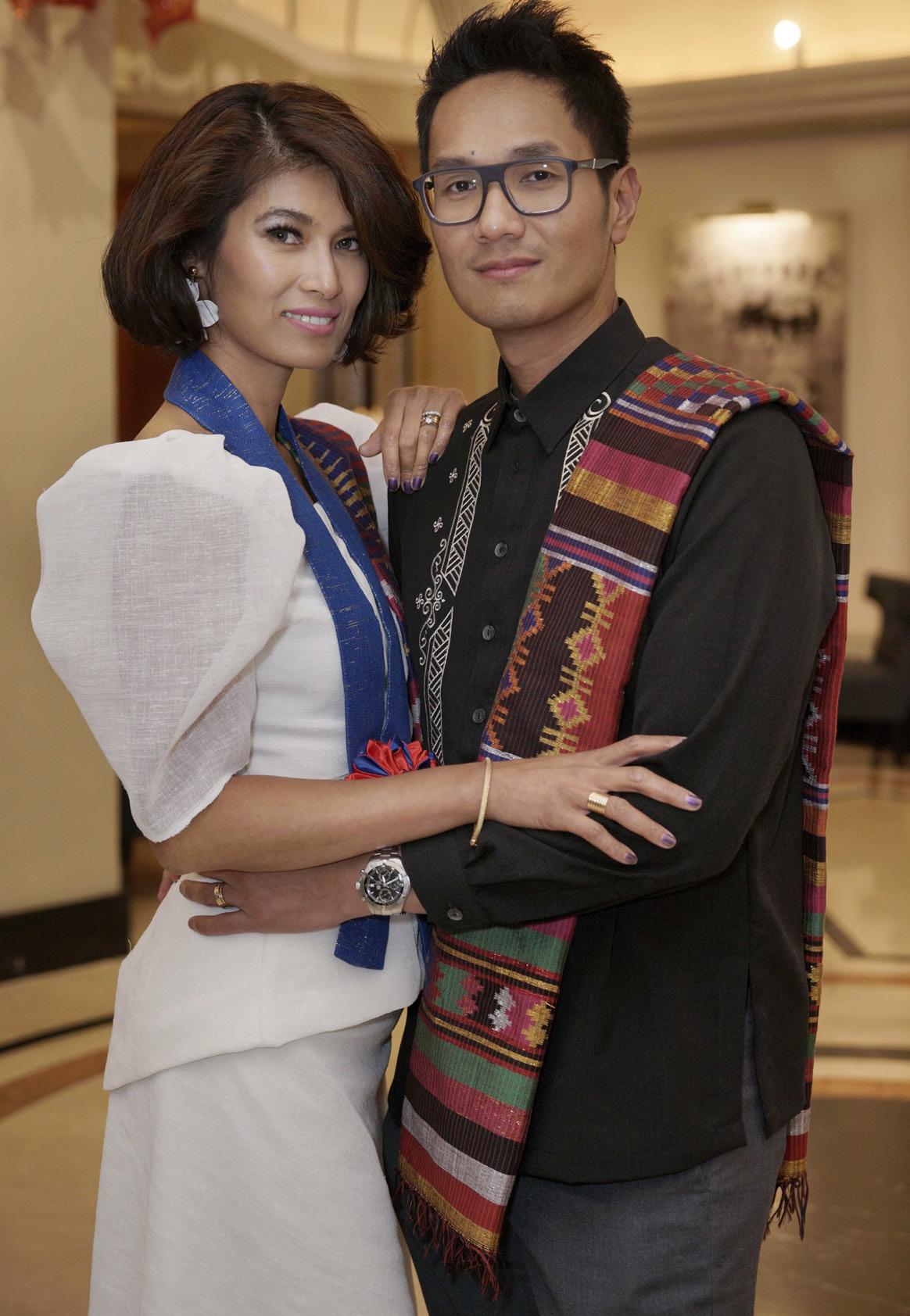
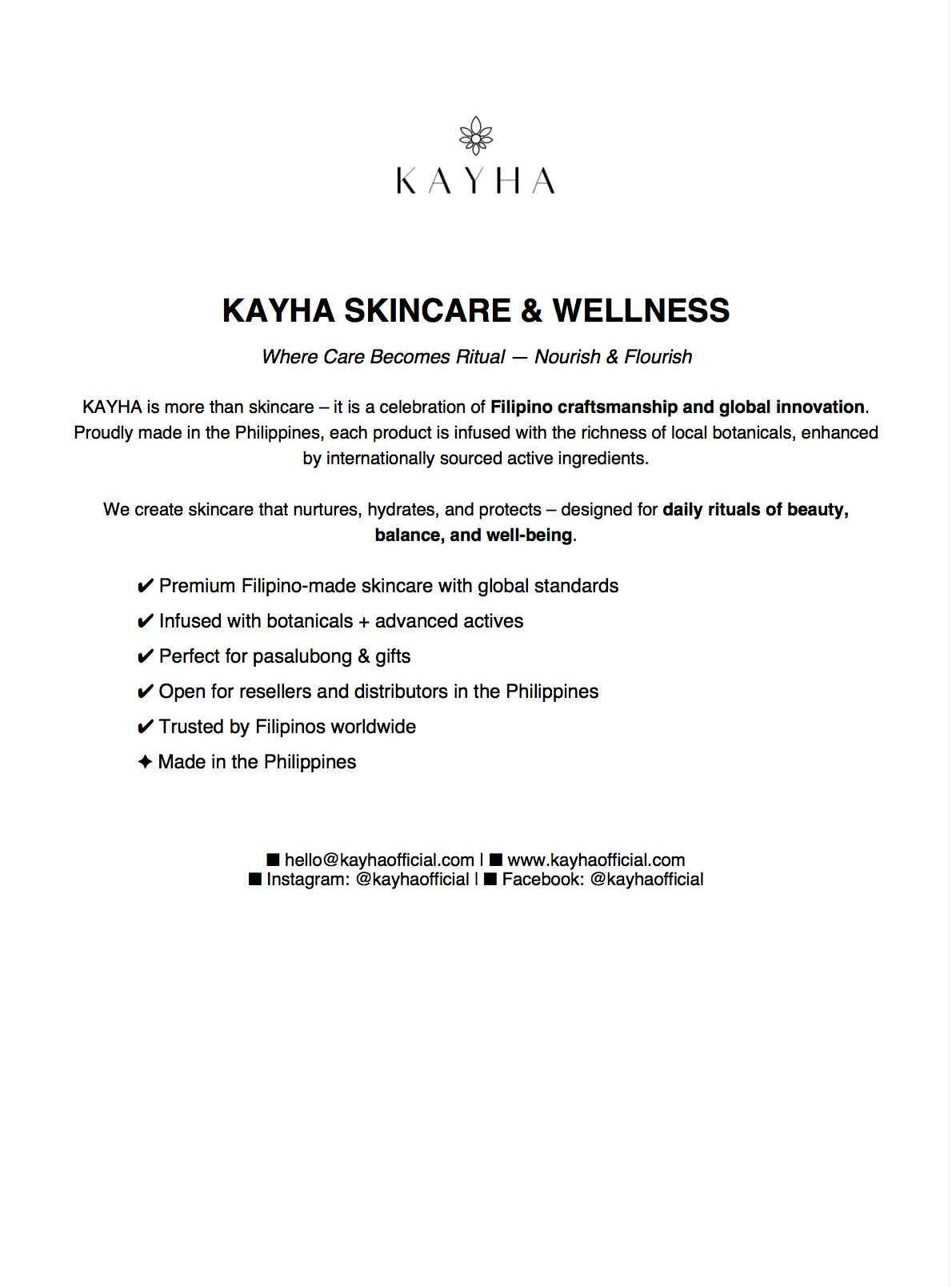
Empowering OFWs, uniting communities, and honoring our roots
By Denissa G. Venturanza

“some are called to serve; others are chosen. I believe I was chosen.”
That’s how Ariel Lachica begins his story — not with accolades or titles, but with humility shaped by a lifetime of grit, service, and deep devotion to the Filipino people, especially overseas workers like himself.
We sat down with Ariel in Rome, where he has lived for over three decades. What follows is not just a recounting of events, but a story of how a boy raised in hardship grew into a man dedicated to uplifting others.
"I was born and raised in the province, where life was hard, but full of values,” Ariel recalls. “Our parents taught us to love and fear God. Before we even stood up from bed, we had to make it first — that’s discipline.”
As a young boy, Ariel would rise at dawn to sell native rice cakes like puto and suman, just to earn enough for food. "I’d go to school afterward, and then on saturdays, I helped in the fields, preparing the land for cassava. By 6 PM sharp, we had to be home to pray the Angelus.”
worked as a teller at san Lazaro Jockey Club... anything to get by.”
Ariel originally planned to join the army after finishing his ROTC training at MCMTC, but life had another path for him.
“In 1989, I had the opportunity to go to Italy to help support my siblings. It wasn’t easy. I had to cross mountains through Yugoslavia to get there. But I made it.”
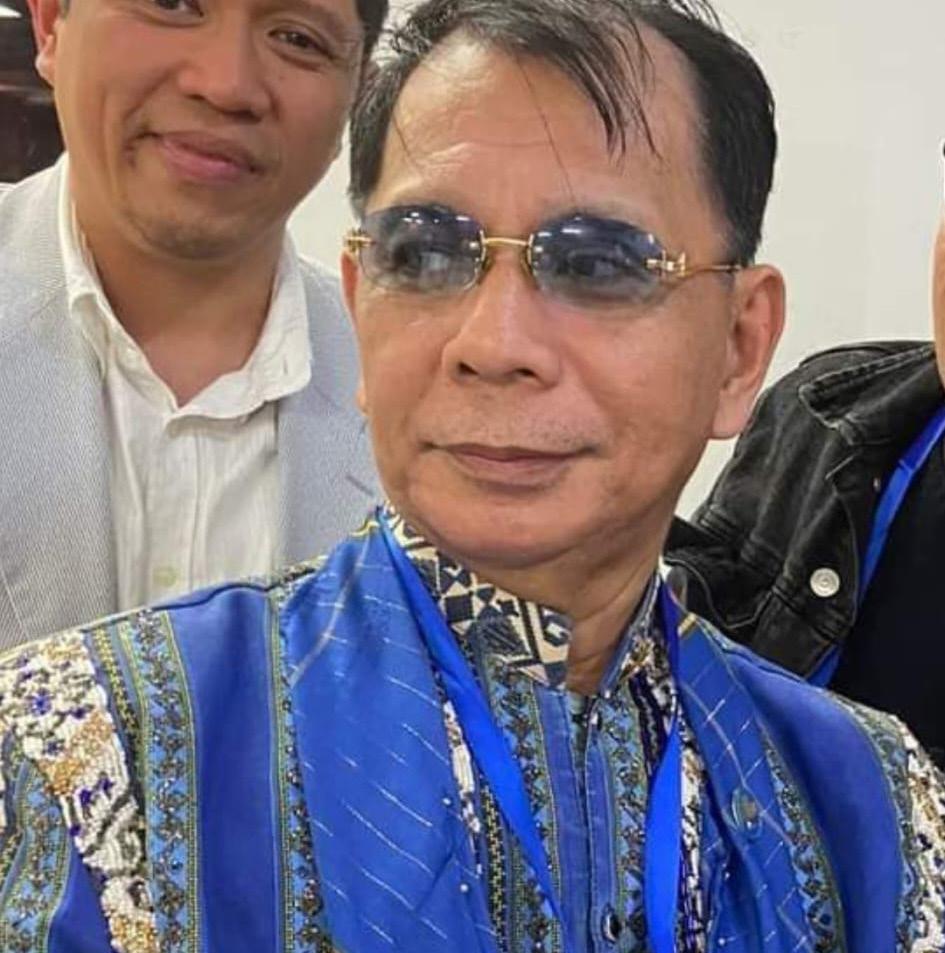
Despite financial struggles, Ariel remembers his childhood with fondness — the river swims, climbing fruit trees like santol and guava, the laughter shared with classmates.
“I graduated from elementary with honors,” he smiles, “but in high school, life got even tougher. I sold more rice cakes and worked as a laborer at the National Irrigation Administration before classes just to afford notebooks.”
Even then, Ariel was not just a survivor — he was a leader. He joined the choir, folk dancing, scouting, sports, and religious programs. At graduation, he was awarded the Gerry Roxas student Leadership Award.
His next move was Manila, where he earned a degree in BsBA Marketing from the Pamantasan ng Lungsod ng Maynila, while juggling multiple jobs: “I sold Tupperware, delivered lingerie for Triumph,
His early years in Italy were far from glamorous.
“I started as a house help and a caregiver, then juggled part-time jobs. I didn’t speak Italian then, so I did anything — washed dishes, cleaned hotel rooms, worked in warehouses.”
But Ariel didn’t let his circumstances define him. As he learned the language and culture, he found better opportunities — eventually becoming a doorman and earning the respect of his community.
More importantly, he began organizing.
“I saw how fragmented we were as Filipinos abroad — by region, by religion, by association. I knew we could do better if we came together.”
In 2011, after years of groundwork, Ariel cofounded FederFil-Italy — a non-political, non-profit federation uniting Filipino organizations across the country.
“Our focus was humanitarian aid, community coordination, and policy advocacy. When the Philippines was hit by calamities, we mobilized. When OFWs needed support, we were there.”
One of his proudest achievements was lobbying for the extension of Philippine passport validity from 5 to 10 years, through a Europe-wide signature campaign.
Ariel also led mock elections for national polls and launched the Outstanding Filipino Workers and
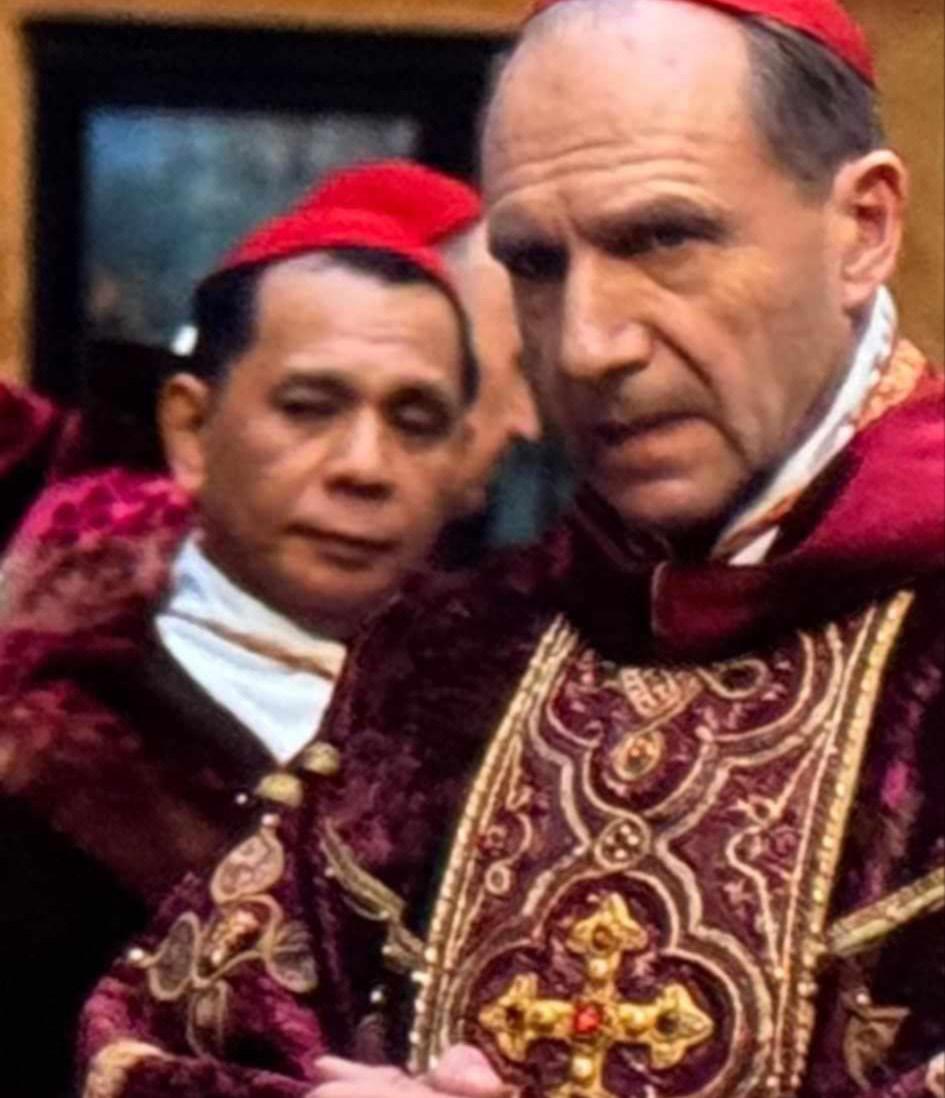
Migrants Awards, which has honored excellence in caregiving, government service, entrepreneurship, and more — now on its 6th edition.
The 7th edition is set for 2027, with clear criteria, including 5+ years of residency abroad and endorsement letters, especially for domestic workers and caregivers.
A man of deep faith, Ariel helped establish the Cofradia sr. sto. Niño de Cebu International at the

Church of saint Anne in Vatican Rome in 2022 — in collaboration with the European sinulog Festival founders.
“We carry our faith wherever we go,” he says. “Even in a foreign land, sr. sto. Niño keeps us grounded.”
Despite facing his own health struggles, Ariel remains active. “I owe it to our mentors — Ate Marie, Tito stefano, Ate Marlyn, Bro. Jerry. Their legacy is now in our hands.”
Interestingly, Ariel has also found his way onto the screen — appearing in:
• The New Pope (2018, sky Cinema series with John Malkovich, Jude Law)
• Baby Gang (Italian Netflix series)
• Conclave (Hollywood feature film directed by Edward Berger, with Ralph Fiennes, stanley Tucci, and others)
“It was surreal,” he laughs. “But I’m still just Ariel from the barrio — who happened to serve, to lead, and, yes, to act a little.”
“To all Filipino leaders and OFWs — don’t forget where you came from,” he says, his voice steady. “We were taught that many are called, but few are chosen. I hope you are among those chosen — to serve, to unite, and to uplift others.”
In Ariel Lachica, we see a reflection of the Filipino spirit — resilient, compassionate, and always ready to answer the call to serve.
From boardrooms to gardens, Denissa Venturanza’s career blends trade, heritage, and cultural storytelling. A pioneer of the Philippines’ Countertrade Program, she spent 18 years with the Philippine International Trading Corporation (PITC) before becoming Executive Director of the Chamber of Commerce of the Philippine Islands (CCPI), where she revived the historic Commerce Magazine. A well-travelled individual, she has met inspiring Filipinos who have thrived in countries they now call home. She is currently co-authoring The Tapestry of Philippine Gardens, a coffee table book for the Fern and Nature Society of the Philippines (FNSP).
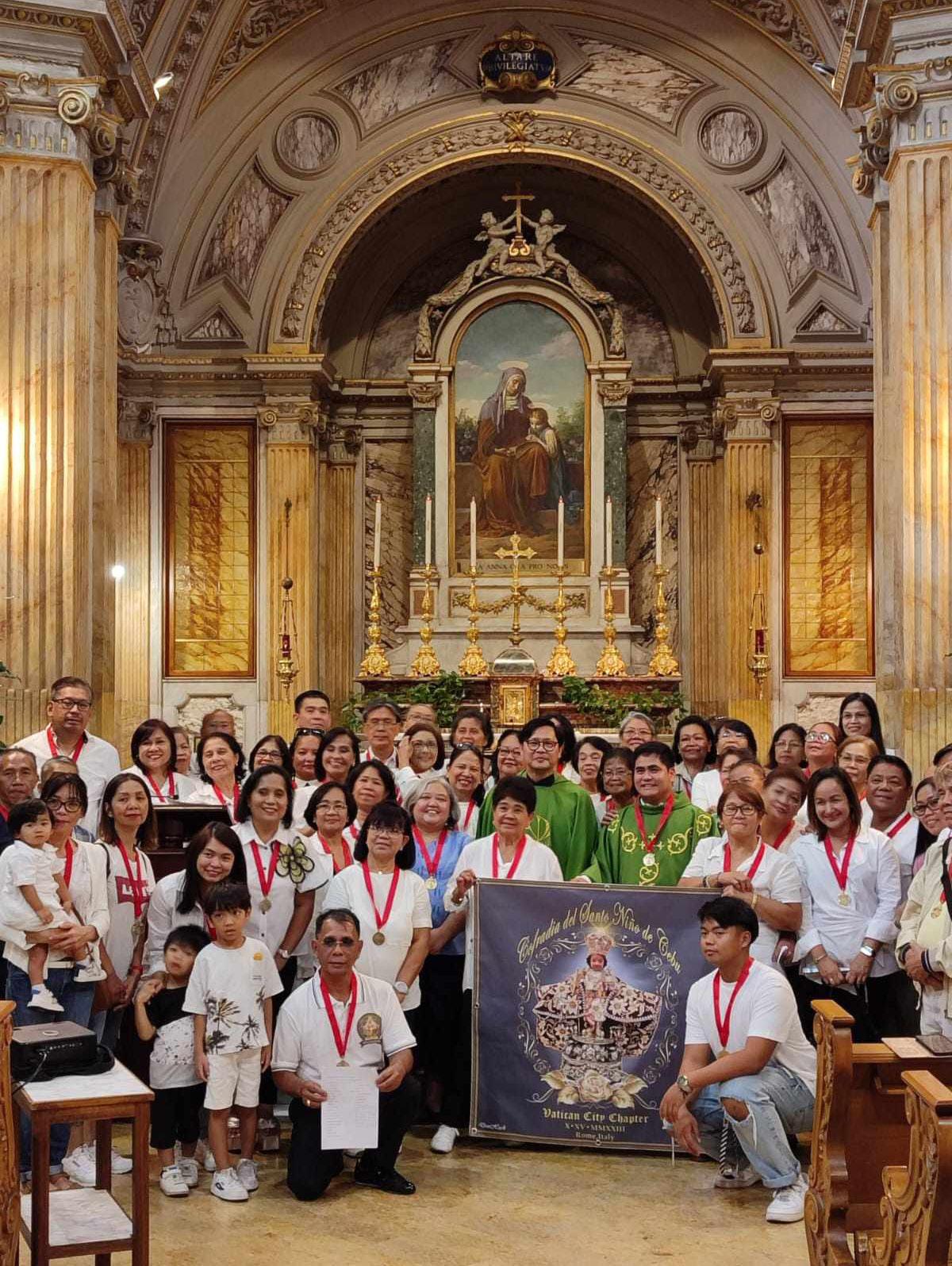
By Ariel Lachica, Rome, Italy
FEDERFIL is a federation of Filipino Communities and Associations in Italy and in Europe. Founded in Rome in the year 2011, its Honorary Founding President in Europe is PH Ambassador Philippine J. Lhuillier, and its Founding Chairman Emeritus is Ariel Asis Lachica.
FEDERFIL’s objective is to lead, encourage, collaborate and partner with Filipino communities and associations to promote Filipino migrants’ interests and develop volunteerism in various civic, political, labor, socio-cultural and humanitarian concerns as a nonprofit organization.
The group is represented by their respective leaders and members uniting themselves in each city and province in Italy and in Europe to develop awareness and promote socio-cultural benefits and interest for the Filipino migrants.
The setting is fitting, Italy being the European country with the
highest number of OFW migrant workers in Europe, estimated to be more than 200,000 Filipinos.
FEDERFIL has regional presidents and community leaders in almost all regions around Italy. A General Assembly is planned for this coming autumn to review objectives and select new officers. The selection of FEDERFIL officers is by appointment based on performance.
FEDERFIL’S OUTSTANDING ACTIVITIES AND ACCOMPLISHMENTS:
• Educational formation seminars like leadership, entrepreneurship, management training, research and surveys, labor assistance
• Sports league, ball games, self defense seminars and all types of sports
• Welfare assistance: petitions, distress cases and recommendation for employment position (caregiver, domestic helper and many more)
• Legal assistance: Migrant assistance for who are in difficulty in their mother language through PROBONG; lawyer consultants of the host country in legal and civic cases
• Community exposures: Invited by the Filipino Community as guest speakers in relation to FEDERFIL Italy Outreach Program
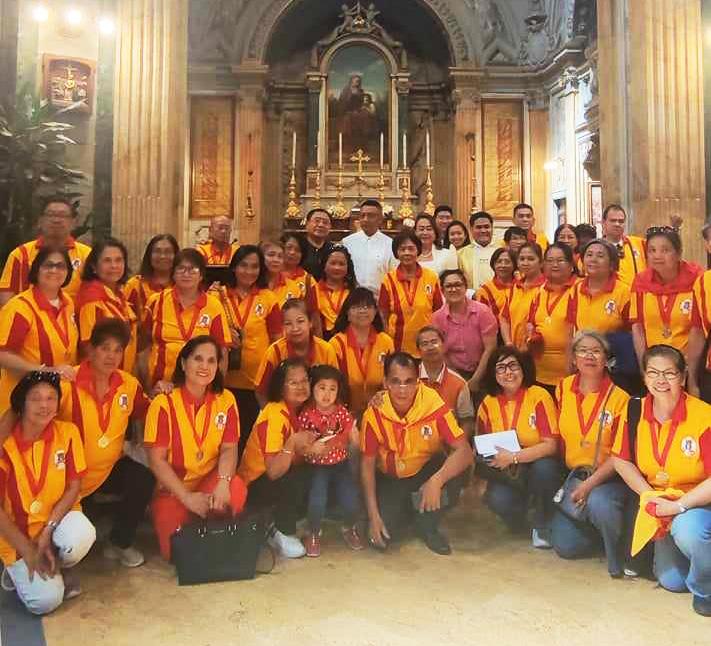
• Recruitment for FEDERFIL-ItalyEurope membership
• OFWm awards accomplishments in Italy, Europe and internationally
• Spiritual formation
• MAD Awards: Migrants Artist Day Recognition
• Formation of Migrants Council Europe for migration concern and issues
• Mock elections
• Medical missions
• Organising humanitarian aid to victims of calamities in the home country
• The establishment of the Confradia del Santo Nino de Cebu Vatican City Chapter
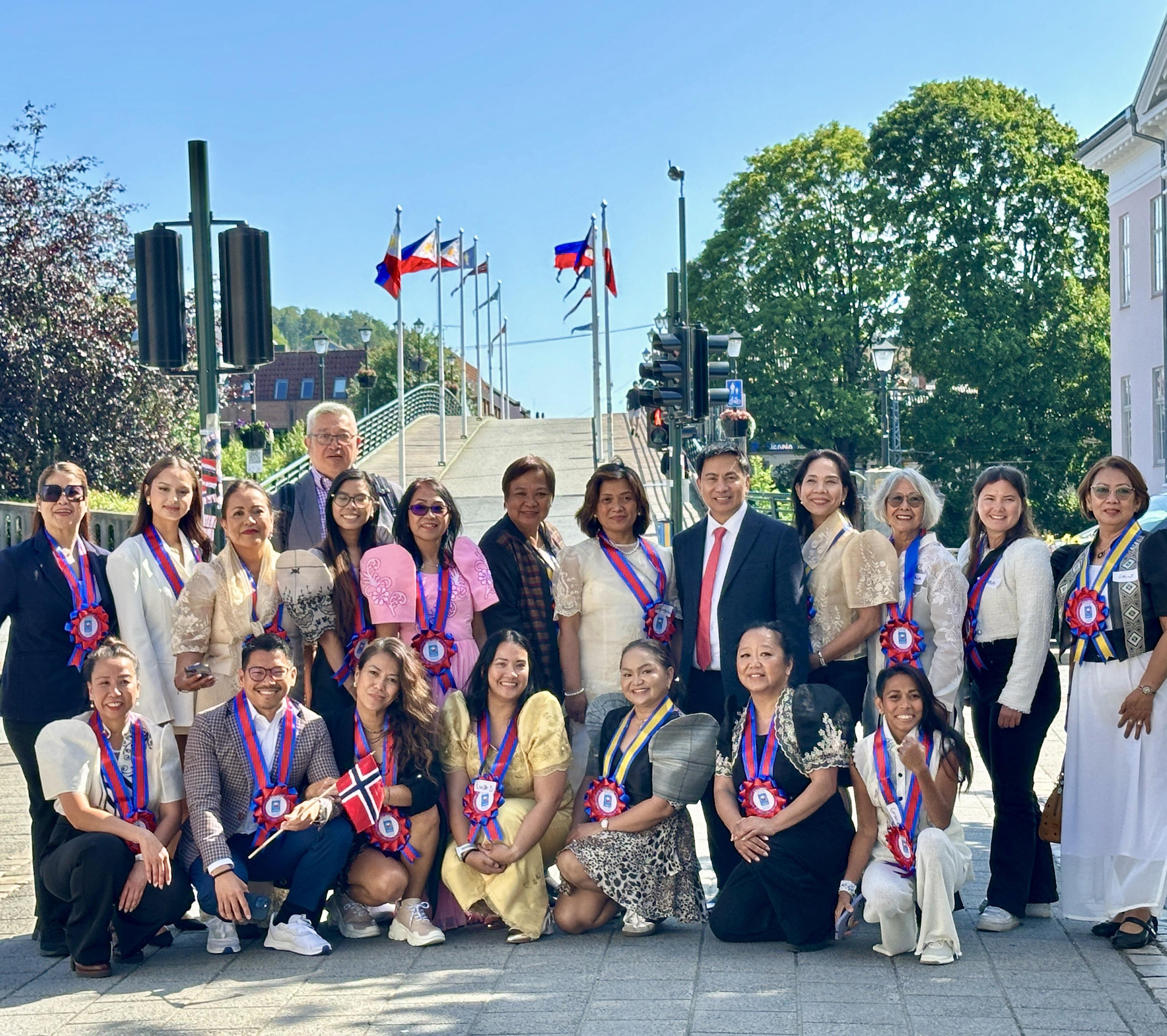
Empowering the Filipino diaspora through dialogue and celebration
By Aieshah Balmori, Halden, Norway
The European Network of Filipino Diaspora (ENFiD) Norge brought together voices from across Norway and Europe on June 27, 2025, for Diaspora to Dialogue: Empowering stories & Ideas Education, Migration, Culture & Arts at Halden City Hall. The event sparked meaningful conversations, amplifying stories of resilience and celebrating the richness of Filipino heritage.
The conference opened with a warm welcome from Kalayaan Norge Østfold Chairperson Roselyn Jensen, who greeted the delegates with thoughtful, handmade ENFiD-Norge garlands symbolising a gesture of hospitality that set the tone for the day.
ENFiD-Norge Chairperson Gina Hardy followed with words that framed the event’s deeper purpose. “Unity in Diversity is a theme, a reminder that strength doesn’t come from being the same, it comes from the unique contributions each of us make,” she said, reminding everyone of the day’s guiding principle and the importance of inclusion within the diaspora.
Halden Mayor Frederic Holm honoured the community with his presence, highlighting, “The Filipino community is one of the largest and most successful international communities we have in Norway,” a testament to the significant contributions of Filipinos to Norwegian society.
Presentations from ENFiD leaders offered inspiring insights. ENFiD Chairperson Marison Rodriguez introduced ENFiD’s mission and accomplishments, shared highlights from past initiatives, and invited everyone to partner in future projects, especially through the Center for Excellence, which aims to uplift Filipino communities across Europe. she emphasised that the Diaspora to Dialogue event “opens the space
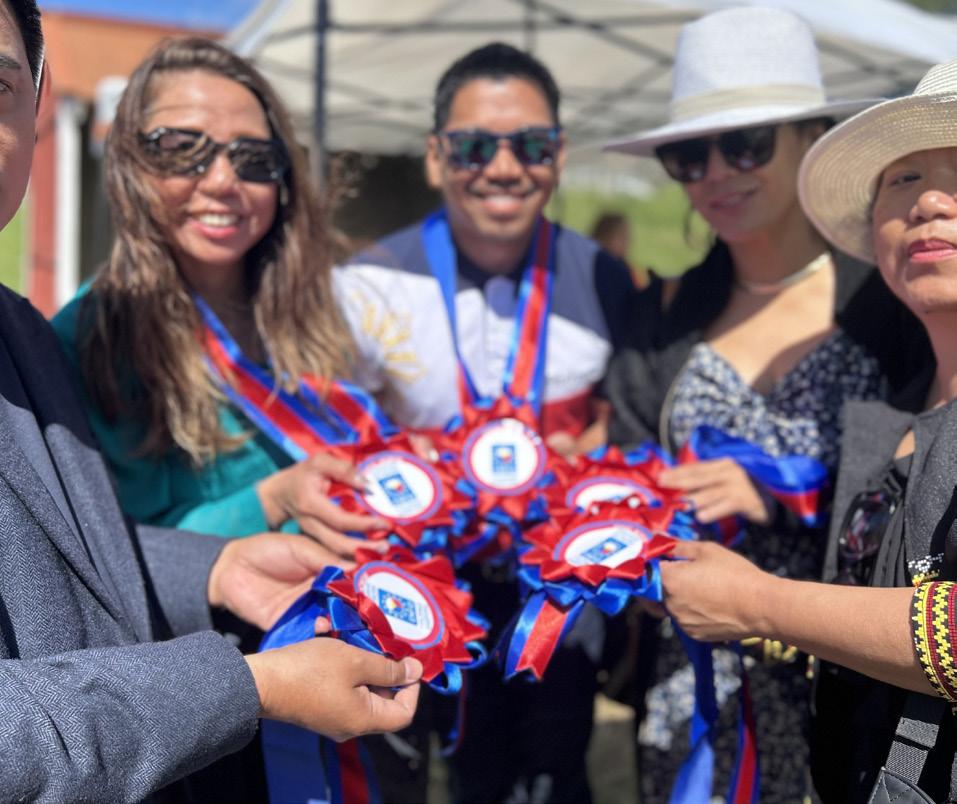
for honest conversations, shared experiences, and collective aspirations,” setting the stage for deeper, more meaningful engagement within the Filipino diaspora in Norway.
ENFiD Vice Chair Jeffrey Morales reflected on the importance of the Diaspora to Dialogue series, noting that D2D Norway marked the 12th gathering of its kind. He emphasised that dialogue is a powerful way to connect with local communities, understand their challenges, celebrate their achievements, and strengthen diaspora diplomacy as a bridge to host countries.
Meanwhile, Marizel Rojas, Director of ENFiD Austria, shared how ENFiD Austria’s dynamic cultural events foster community spirit, preserve Filipino traditions, and build meaningful bonds across generations. she encouraged collaboration with a heartfelt call: “Partner with us, and let’s make it happen.”
A lively panel discussion, moderated by Gina Hardy, featured heartfelt stories of perseverance and success from Filipino immigrants in Norway, including Marlene strand, Jon Ivar strand, sampaguita Indrebø, Thea Indrebø, Lucille Ellefsen, and suyin serigstad. Their journeys of integration and triumph offered valuable perspectives on life as Filipinos in Norway, inspiring many in the audience. The conversation also touched on the experiences of second-generation Filipinos navigating identity and belonging in a multicultural society.
A musical performance with the song “Heal the world” by Ludivina Hansen set a joyful tone before attendees shared a light lunch. The break became a space for networking, where participants exchanged stories, built new friendships, and deepened
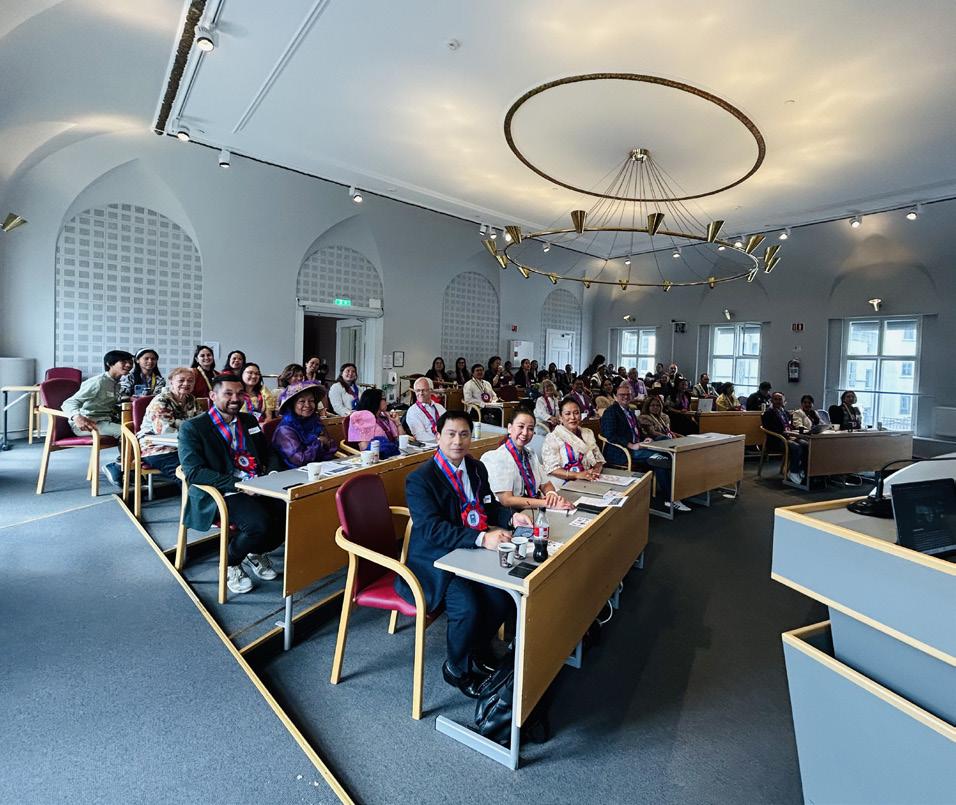
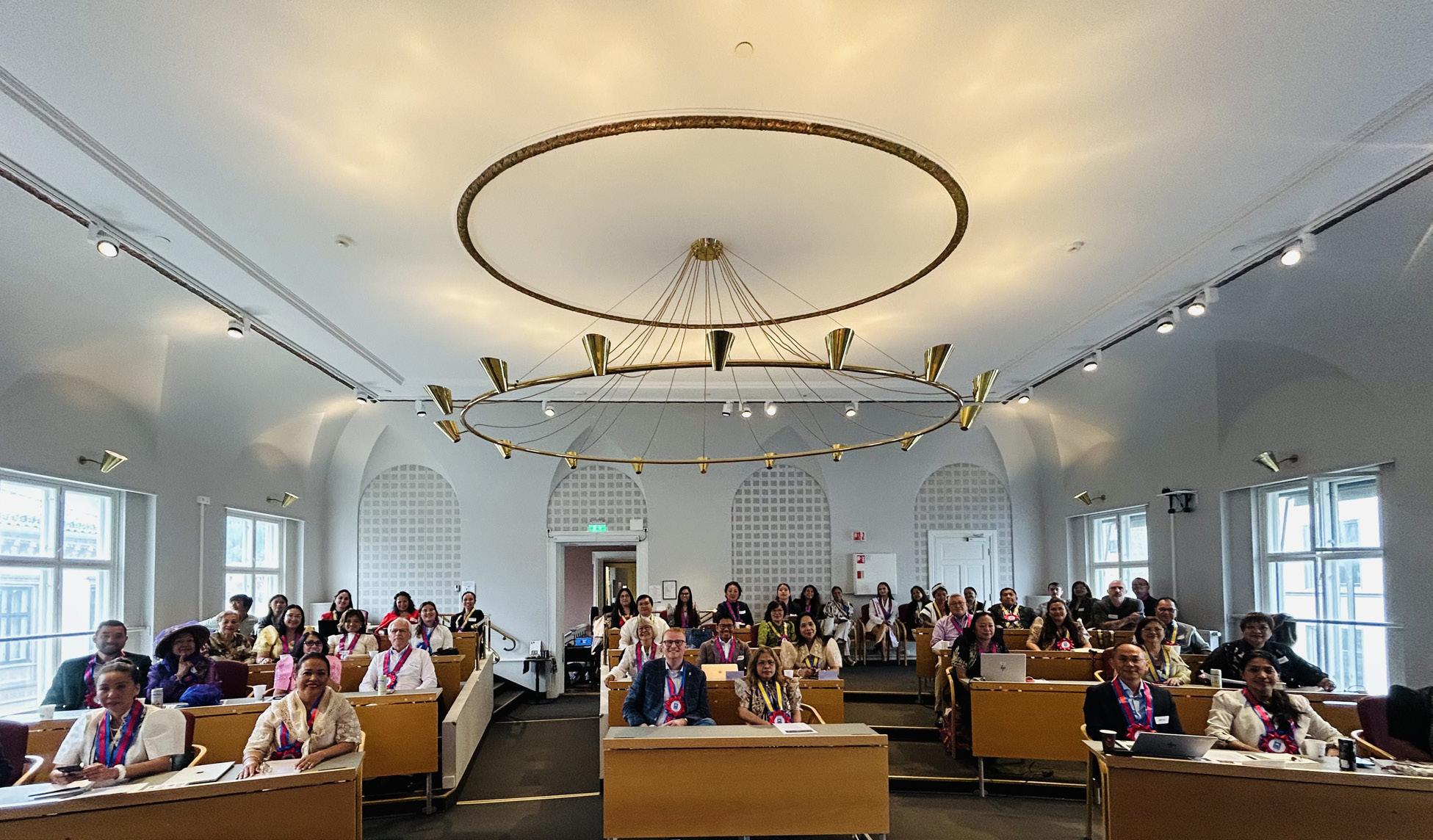
connections between ENFiD and the Filipino community in Norway.
The afternoon program featured messages from distinguished guests. Gene Alcantara, ENFiD UK Founder, recounted the organisation’s founding and its crucial role in empowering and uniting Filipinos across Europe. He emphasised the importance of genuinely listening to the community, stating, “They express it, we absorb it,” underscoring the need for open dialogue and mutual understanding within the diaspora.
Christian Estrada, ENFiD Former Chairperson and Honorary Advisor, encouraged pride in Filipino accomplishments, declaring, “It’s time to celebrate the successes of Filipinos.” He also highlighted the European Diaspora Impact Awards, congratulating Minnie Cruz Langer—present at the event—as the first recipient for her outstanding contributions to cultural diplomacy across Europe.
Norwegian-based Filipina Artist Grace OrbonEmmelot, founder of Common Ground Kolektiv, showcased her collective’s artworks and discussed the power of creativity to bring people together. she posed the thought-provoking question, “How can art connect us all?” as she introduced her collective’s mission of uniting artists in shared cultural expression.
The Consul General of the Philippines to Norway, Johann Veronica Andal, spoke passionately
about unity and the importance of mobilising the community from the grassroots. she called for collective action, stating, “We hope that the diaspora, realising the power that they have, can now mobilise the grassroots to move as a community,” underscoring each individual’s role in strengthening the Filipino presence and influence in Norway and beyond.
Youth Changemakers Forum co-organiser Aieshah Balmori underscored the power of intergenerational collaboration, declaring, “Intergenerational dialogue isn’t just an avenue for conversation, but a bridge that connects us to create meaningful and lasting change.” she highlighted how the initiative empowers everyone to exchange ideas, develop leadership skills, and advocate for social change within the diaspora and in the international setting.
The day concluded with an oath-taking ceremony led by the Consul General, officially welcoming new ENFiD-Norge members and reaffirming the community’s commitment to building a stronger, more connected Filipino diaspora.
As a show of support for their partner organisation, ENFiD members attended Kalayaan Norge Østfold’s Concert for a Cause on June 29, 2025. The evening featured electrifying performances from stage Crayons, Dynamic Duo, sOs It’s ABBA Time, Team Bisaya from Germany and the UK, Tawag ng Tanghalan Duets Grand Champions JM dela Cerna
and Marielle Montellano, and special guest star Ian Veneracion, creating a joyful evening filled with music, dancing, and celebration.
ENFiD members also attended Kalayaan Norge’s Culture and Family Day on June 30, 2025, participating in the colorful parade, exploring the lively food bazaars, attending the mass, and engaging with Philippine Embassy representatives Eleonor Tolentino, Glenn Obach and H.E. Ambassador Enrico Fos.
A memorable highlight of the day was when an ENFiD-Norge representative received a traditional sun tattoo from renowned Benguet tattoo artist Ate Wamz, symbolizing life, hope, and energy, while honoring a powerful connection to Filipino heritage and Indigenous identity.
ENFiD-Norge extends heartfelt gratitude to all participants, partners, and supporters who made Diaspora to Dialogue a success and expresses deep appreciation to Kalayaan Norge Østfold for organising events that celebrate Filipino culture and strengthen community bonds. Deepest thanks and appreciation also go to the ever-generous hosts and sponsors — Jan Ole Kristiansen and Letty Kristiansen, Maria Nave, and Maria Rossbach — for opening their homes and hearts to the delegates. Through these events, the organisations honoured the stories, creativity, unity and friendships of the Filipino diaspora in Norway and Europe.
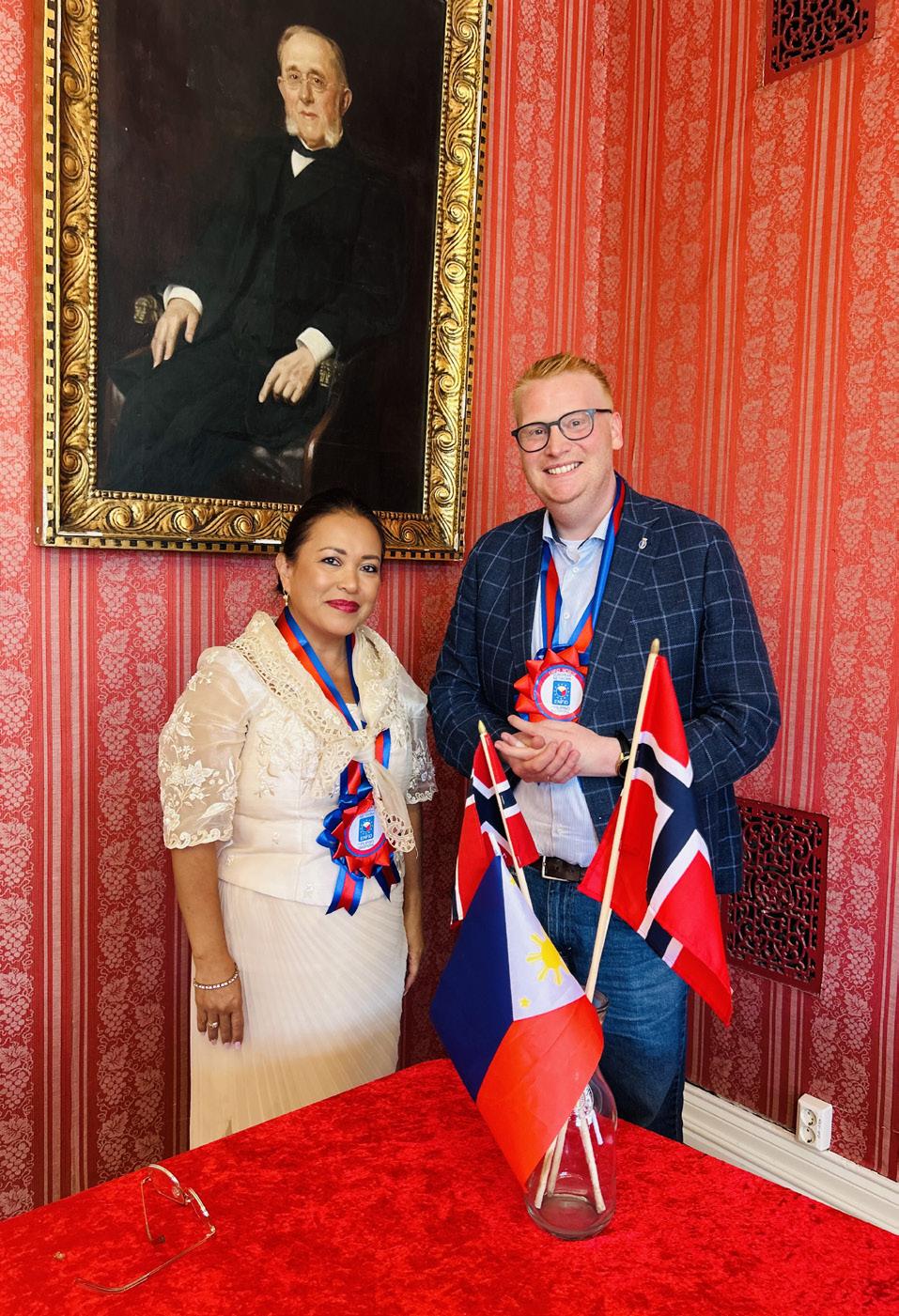
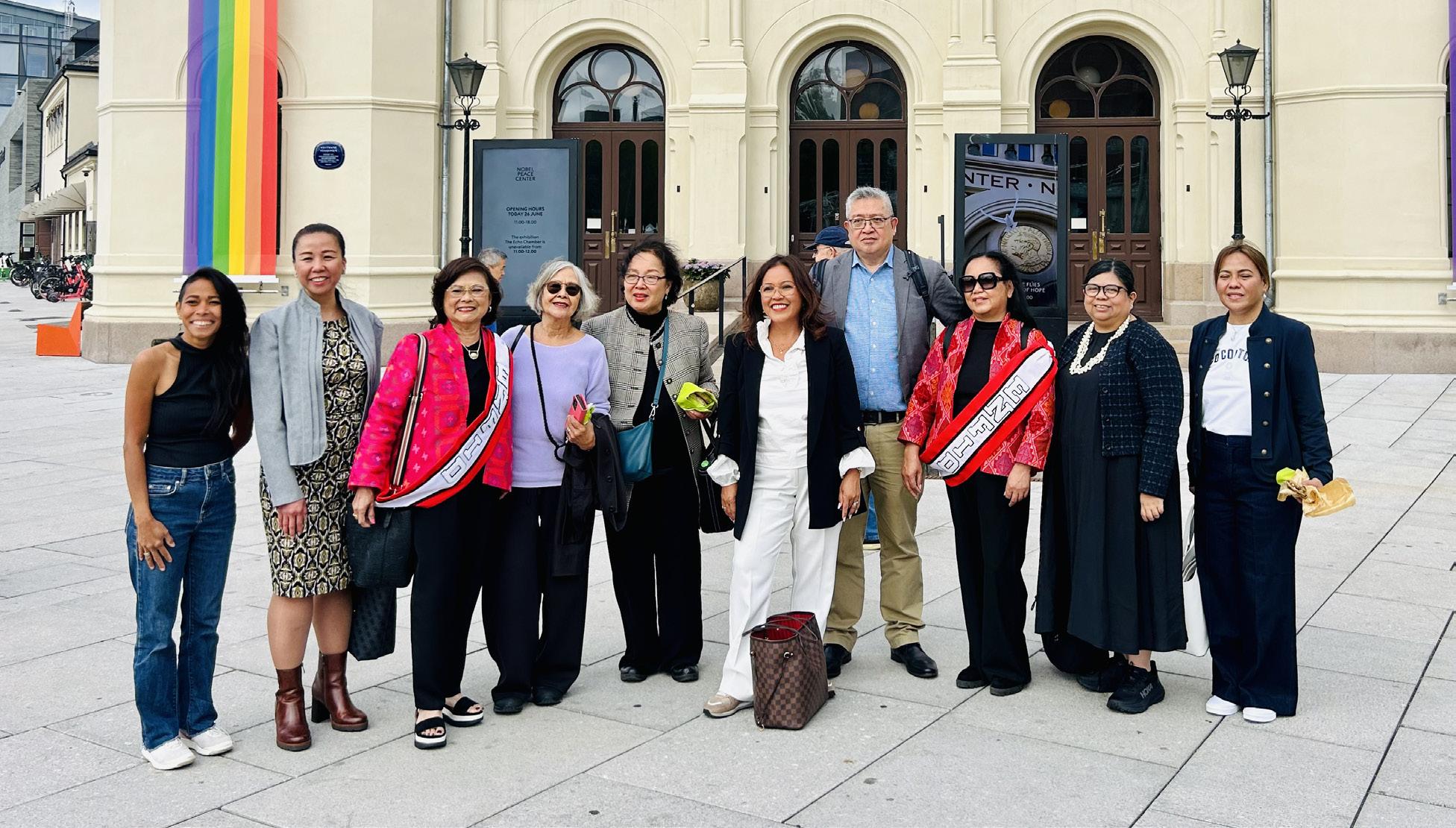
By Myla Arceno, Country Editor, UK; Member RaWMags Advisory Council
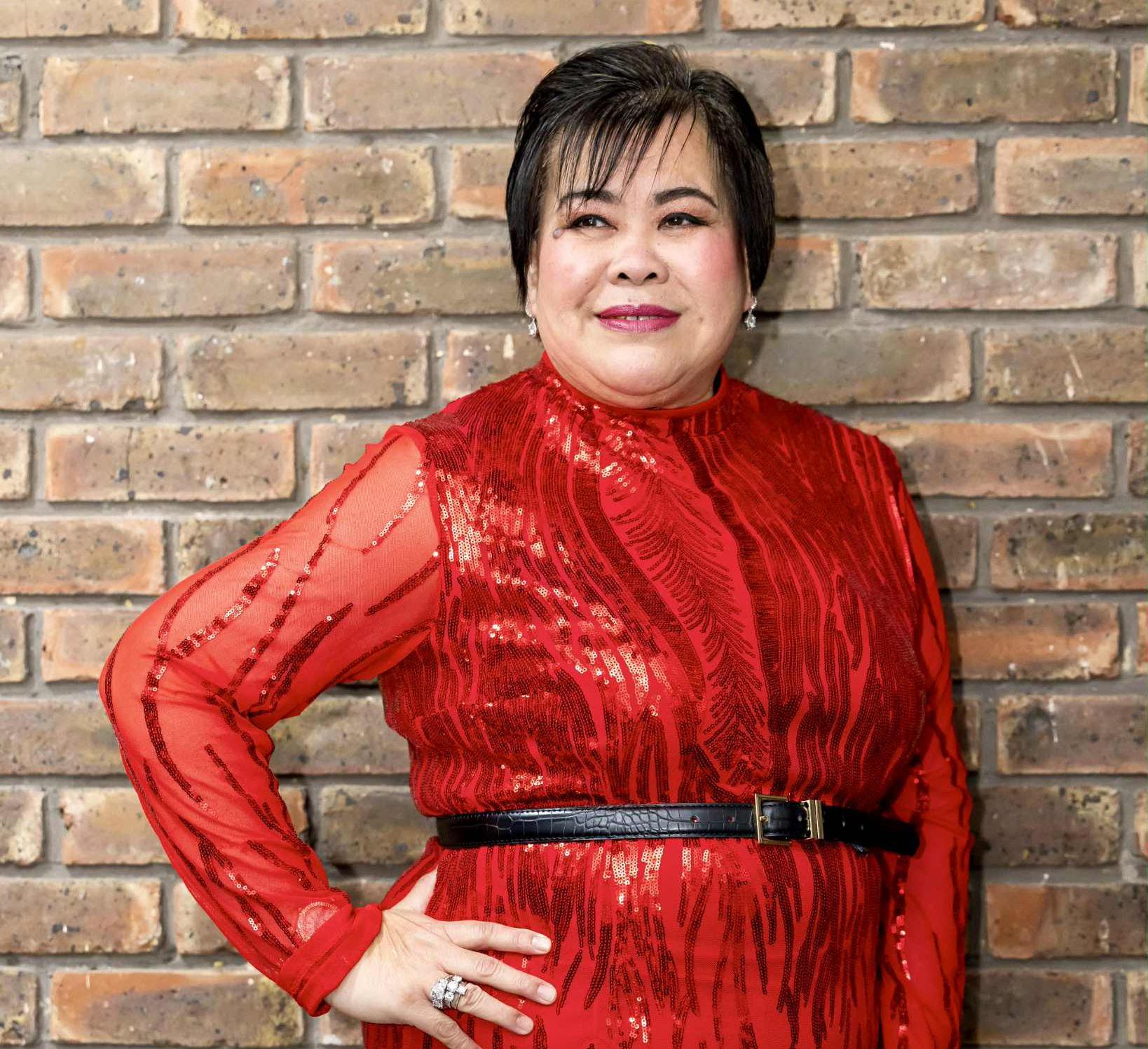
When you meet Mervic Vicky Monocillo, you are immediately struck by her gentle warmth—the kind of calm presence that could only be honed by years of nursing. But as she begins to talk about her other
love with music—her eyes light up, and it becomes abundantly clear: this London-based Filipina is just as much at home onstage as she is on the hospital floor or community nursing.
Born and raised in the scenic coastal town of Miagao, Iloilo,
Mervic grew up with an unshakable sense of determination. Like many Filipinos, she carried dreams far bigger than her hometown. Those dreams carried her to London, where she now works as a Nurse Assessor for Continuing Care North West London—a role that
embodies service, sacrifice, and compassion. Yet beneath the National Health service uniform lies a voice and spirit powerful enough to conquer stages across the world.
Music has always been part of Mervic’s life. But it was the World Championships of Performing Arts (WCOPA) that cemented her as a force to be reckoned with. Often called the “Olympics of the Performing Arts,” WCOPA brought together talents from more than 60 countries, and Mervic stood out— her voice soaring, her presence undeniable. she became champion at the 2018 event held in Los Angeles, California. Winning in that arena was not just a personal triumph but a proud victory for the Philippines and the UK. Her performance journey complements her nursing career.
school in UP Visayas and Nursing in Medical Centre.
Awards and titles have naturally followed her talent and hard work. Recognized as an Outstanding Filipino, Mervic has become a symbol of the modern-day Filipina achiever abroad: resilient, multifaceted, and unafraid to
her own words, her family is both her “anchor and her wings”— the reason she stays focused, and the strength that carries her through long shifts and late-night rehearsals. she has a talented family.
Her story resonates especially with Filipino mothers, many of whom know the feeling of carrying both duty and dream on their shoulders. she proves that it is possible to nurture a home while also nurturing one’s own aspirations.
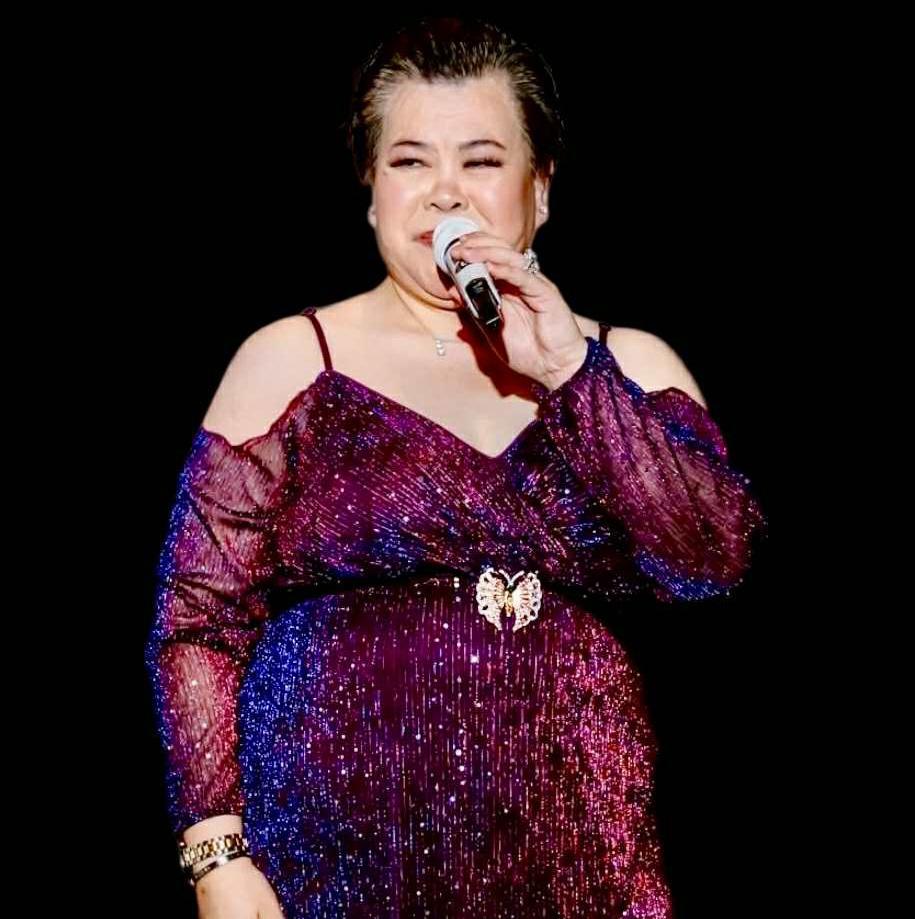
“Being a nurse teaches you empathy and discipline. As a performer, those same values help me connect with people onstage,” she reflects. Indeed, whether caring for patients or singing before a crowd, she brings the same authenticity: a commitment to touch lives.
Mervic was awarded as one of the 10 Most Outstanding Filipinos in Performing Arts in the Philippines and Most Outstanding Youth in the Philippines by former first lady Imelda Marcos, having won many championships for performing arts, Kundiman and declamation from Elementary in Miagao, High
chase every dream. she embodies the pride of overseas Filipinos who continuously raise the flag high in their adopted homelands.
she was a former National Director of World Championship of Performing Arts Team UK 2022 and a production director of various concerts and events such as Barrio Fiesta sa Hounslow and Miss Philippines Great Britain.
What sets Mervic apart isn’t only her resume or her titles—it’s her groundedness. she is a proud wife and mother, balancing the demands of family, healthcare, and performance with grace. In
Her journey continues with her latest milestone: she is set to perform in the Halimaw Concert, alongside none other than Dulce, the Philippines’ beloved “Asia’s timeless Diva” in The Arena Cumberland Hotel Marble Arch in London on 26th of October 2025. For Mervic, sharing the stage with a powerhouse like Dulce is more than an honour— it is a testament to how far faith, hard work, and resilience can take a young woman from Iloilo.
The upcoming show promises to be a showcase of vocal might, emotional storytelling, and the unstoppable spirit of Filipino artistry. For Mervic, it’s the continuation of a lifelong journey: healing through both medicine and music.
Inday Mervic is a friend who I admire. she was there at my charity fundraising concert during my mayoral year and made my 50th birthday very special. Imagine having a World Champion on your birthday—it was a blast.
Thank you, Inday Mervic, for sharing your gift in music.
By Grace O. Emmelot, Oslo, Norway
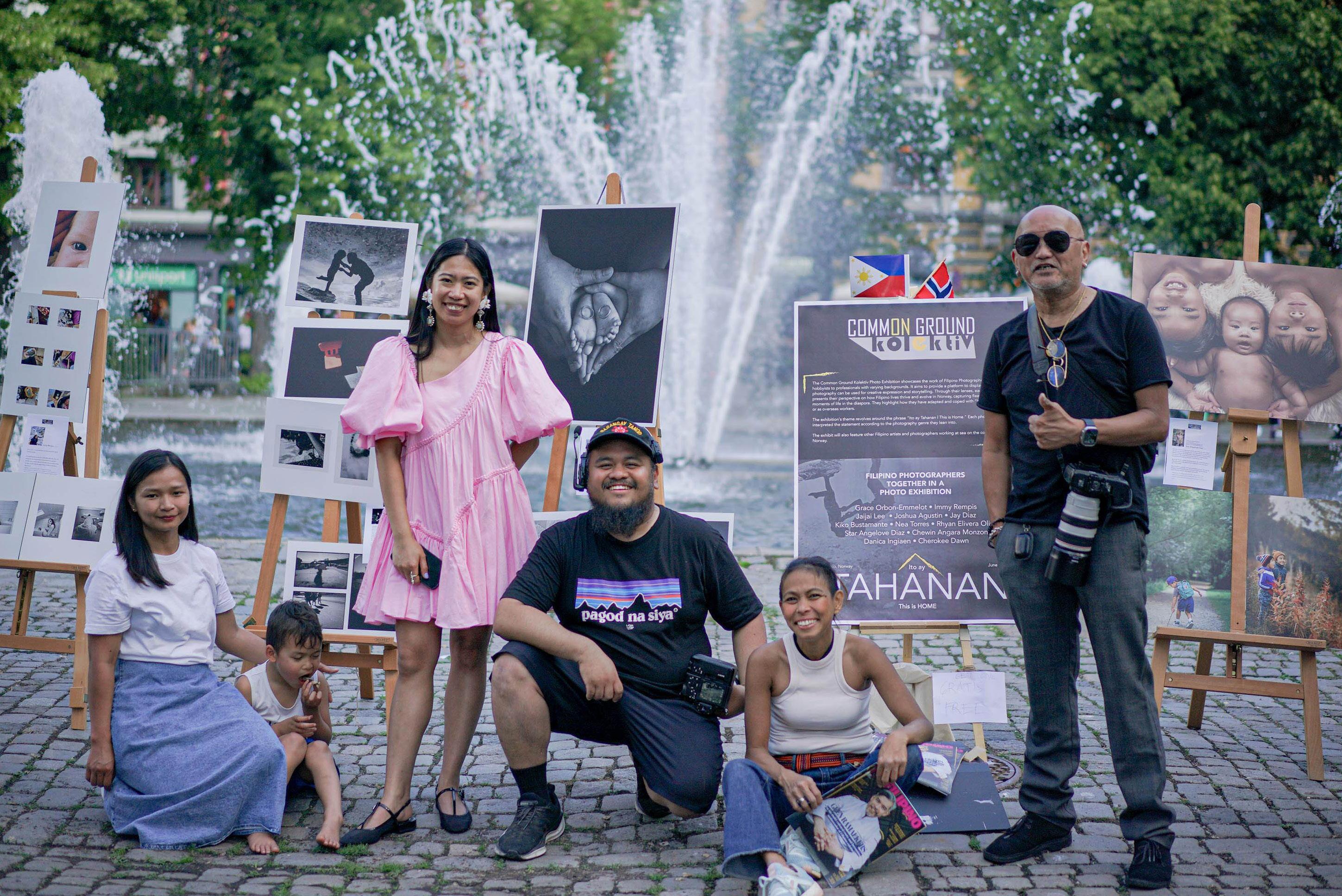
In a world where stories shape identity and creativity fuels connection, Common Ground Kolektiv (CGK) emerges as a vibrant initiative led by Filipino artists and creatives in the diaspora. This collective is more than a group—it’s a movement that transforms ideas into powerful expressions of cultural preservation and collective empowerment. At its core, CGK is a space where diverse voices
converge, stories unfold, and communities grow stronger through shared artistic endeavours.
CGK is built on the belief that creativity is a universal language, capable of bridging gaps and weaving connections. Whether through photography, storytelling, or collaborative projects, the collective
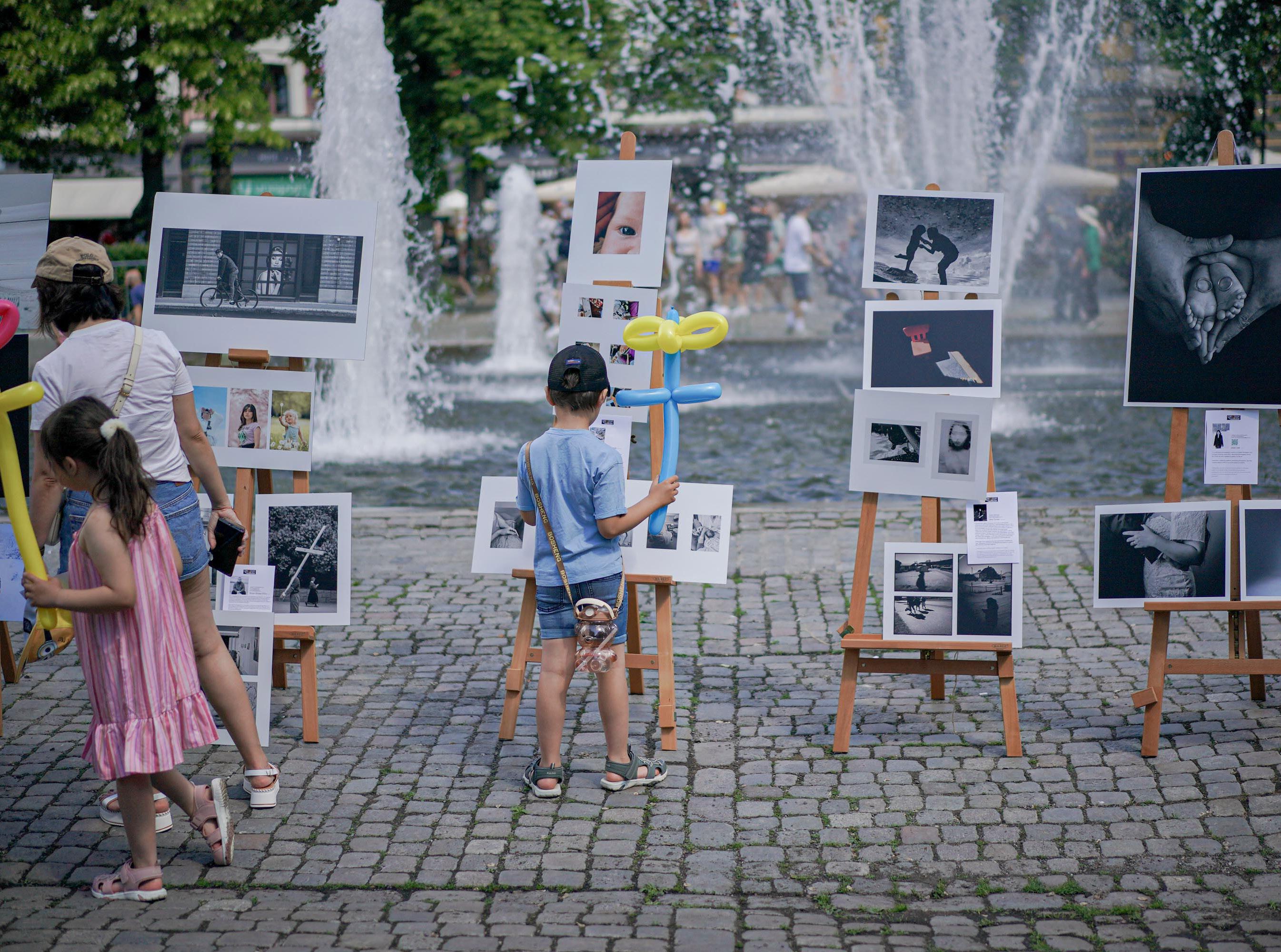
invites everyone—photographers, videographers, and even those without a creative background—to participate in its mission. Their events, such as the photo collaboration held at Deichman Library in Oslo on February 9-10, 2024, welcomed anyone with a camera, a smartphone, or simply a willingness to participate. No experience? No problem. Volunteers could step in as subjects, sharing their stories, or participate in activities designed to spark creativity and connection. This open-door approach reflects CGK’s commitment to making art accessible and collaborative, ensuring that everyone has a role in the creative process.
On June 1, 2024, CGK marked a milestone with its first all-Filipino photo exhibition, “Ito ay Tahanan | This is Home,” held in Oslo’s city centre at spikersuppa. Featuring 11 Filipino photographers and one artist— from hobbyists to professionals, including Grace
Orbon-Emmelot, Immy Rempis, Jaijai Lee, Jay Diaz, Joshua Mearks Agustin, Kiko Bustamante, Nea Torres, Rhyan Elivera Olivo, star Angelove Diaz, Chewin Angara Monzon, Danica Ingiaen, and painter Cherokee Dawn—the exhibition was a vibrant celebration of Filipino creativity in the diaspora. The event, coinciding with Philippine Independence Day, was organised by Kalayaan Norge and showcased diverse interpretations of the theme “This is Home,” capturing the resilience and evolving identities of Filipinos in Norway.
Despite challenges like balancing full-time jobs and family commitments, the CGK team self-funded the exhibition, covering costs from printing to logistics. Their dedication paid off, as the event drew overwhelming positive feedback from Filipinos, Norwegians, and curious visitors alike, creating a warm, inclusive atmosphere. This triumph highlighted CGK’s ability to unite a community through art, offering a platform for photographers to share stories of adaptation and
belonging in a new land. As Grace Orbon-Emmelot, a key organiser, shared, the exhibition was a dream realised—a chance to connect creatives and inspire future collaborations.
As an initiative by Filipino artists in the diaspora, CGK carries a deep sense of cultural pride. It’s a platform where heritage is celebrated, and diverse narratives are amplified through art. By creating spaces for dialogue and collaboration, CGK empowers its community to preserve their stories while forging new connections across borders. The collective’s work, exemplified by the success of “Ito ay Tahanan,” is a testament to the strength of
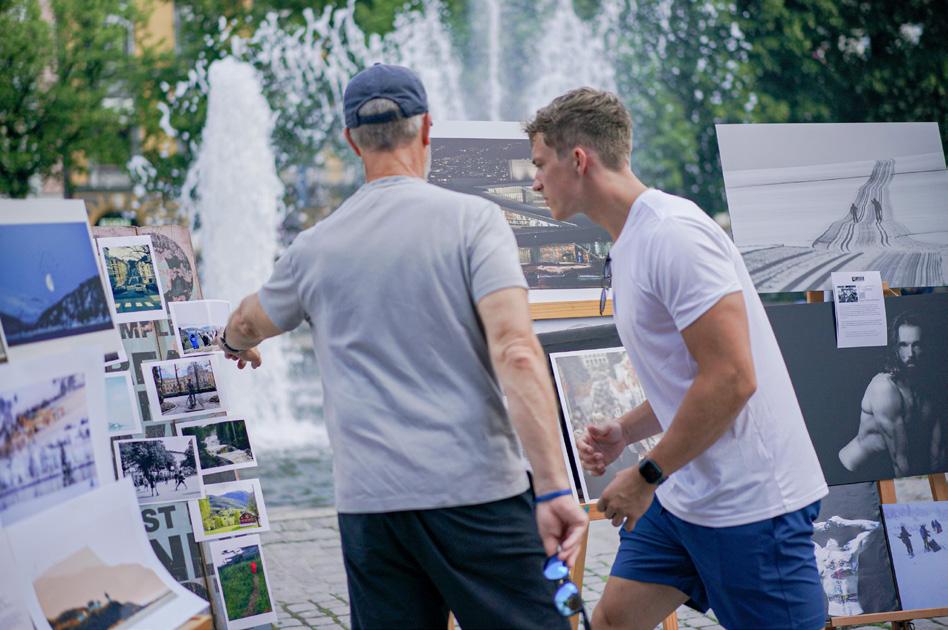
collective art—where individual creativity becomes a force for shared cultural impact.
CGK invites you to be part of this dynamic community. Whether you’re an artist, a storyteller, or someone curious about exploring creativity, there’s a place for you. Join their Facebook group, Common Ground, to stay updated on upcoming events and opportunities. From photo exhibitions to collaborative workshops, CGK offers a chance to discover the power of art in building community and preserving culture.
Welcome to Common Ground Kolektiv—a movement where creativity knows no bounds, and every story matters.
WWW.COMMONGROUNDKOLEKTIV.ORG
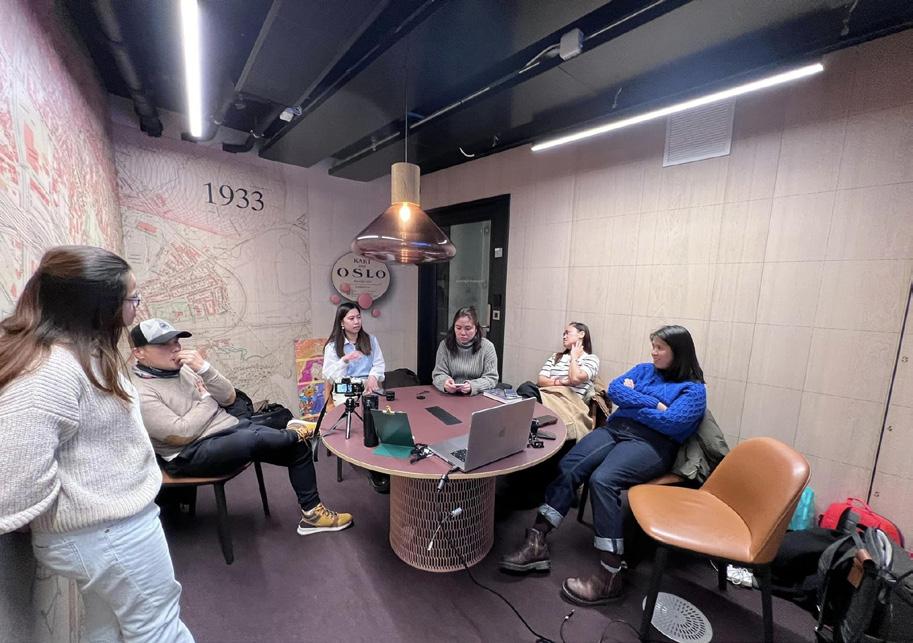
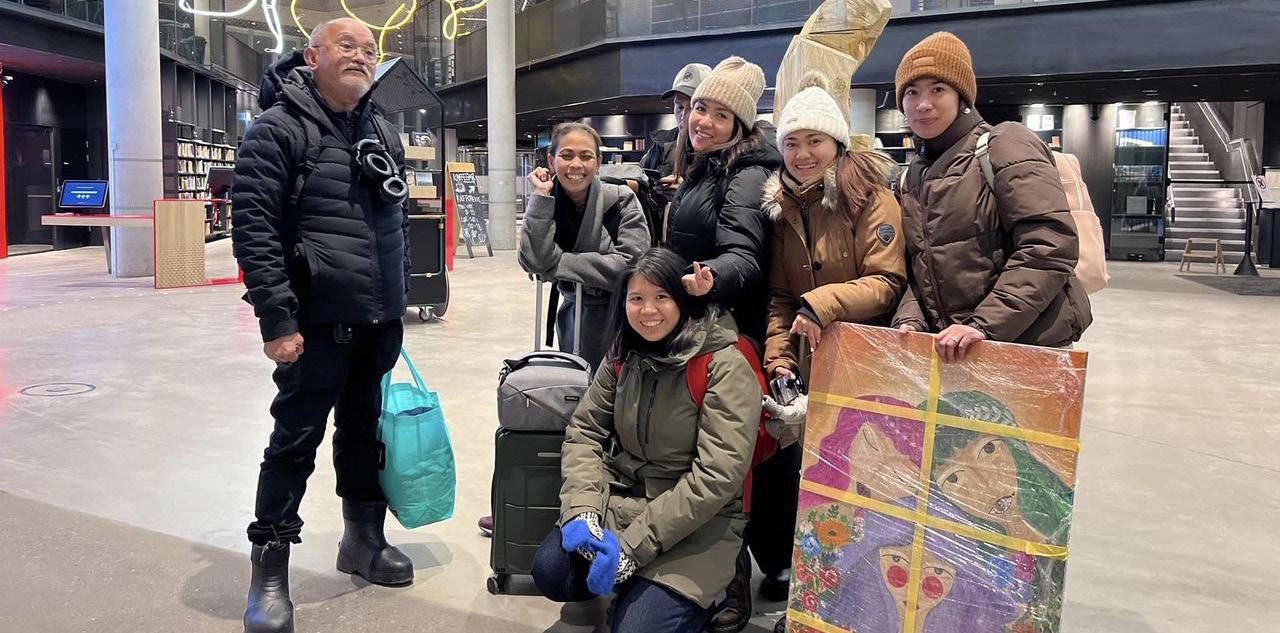
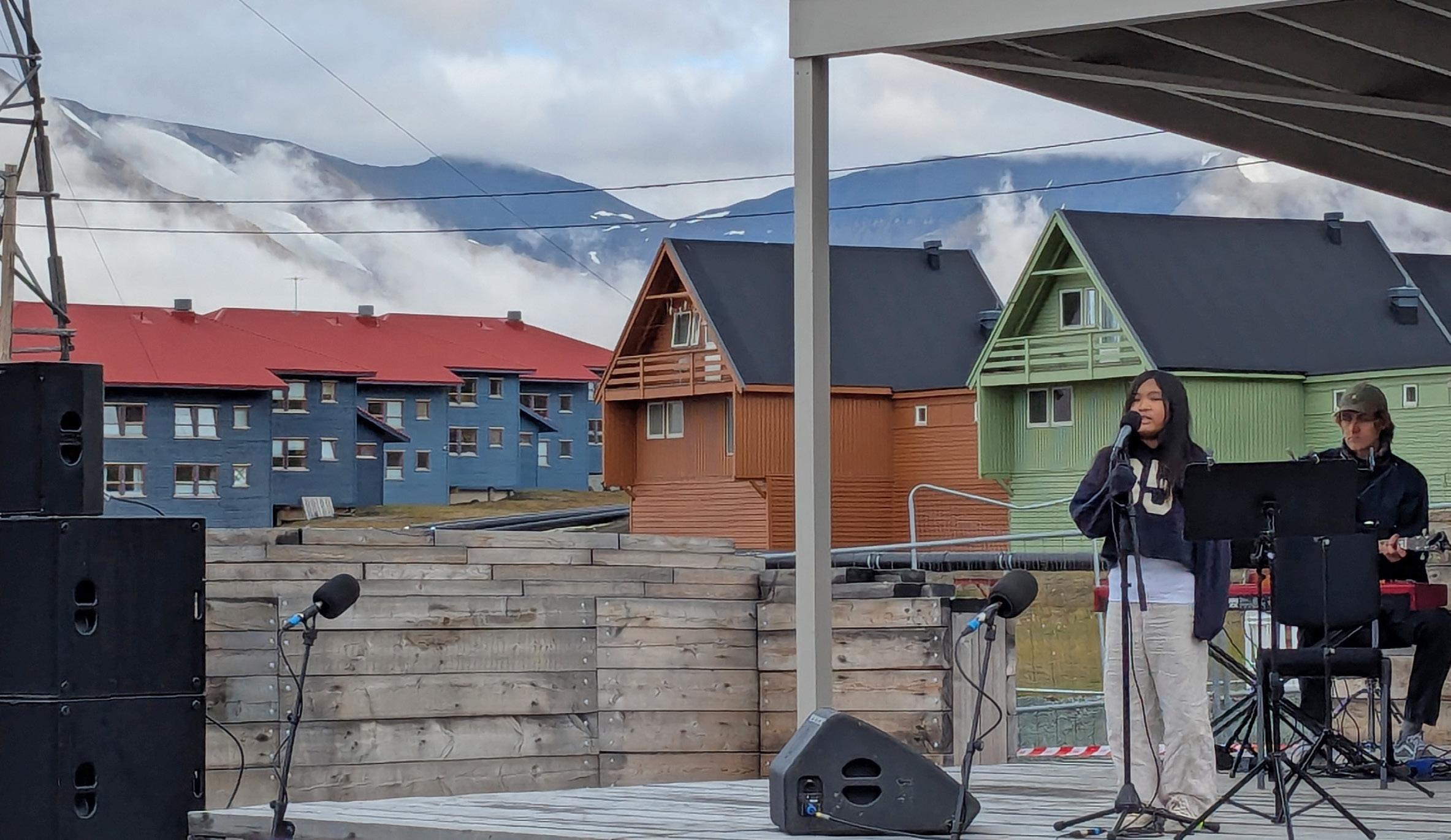
By Jennifer Fergesen, Associate Editor, Svalbard
On a cool day in August, Crown Prince Haakon of Norway took a seat in the central square of Longyearbyen, svalbard, to be treated to performances by the best talent the world’s northernmost town could muster. One of these local lights was a 9-year-old girl named Fiona Lucille Carubanga, a daughter of Filipino immigrants who has spent most of her life under the midnight suns and polar nights of the high Arctic.
Prince Haakon and the other guests, including Norwegian Prime Minister Jonas Gahr støre, were visiting to celebrate the 100th anniversary of the
svalbard Treaty, the international agreement that gave Norway sovereignty over this archipelago deep in the Arctic Circle. They listened attentively to musical performances by local groups, including a folk dance club and the store Norske men’s choir, originally a miner’s choir and still outfitted in coveralls and sealskin seat warmers.
Fiona was one of two young locals who were given the opportunity to sing solo for the dignitaries; the other was 19-year-old Mia Ekeblad Eggenfellner, a former contestant on Norway’s version of “The Voice” who is preparing to leave svalbard to begin a musical
career. After Mia’s polished performance, Fiona stood on the outdoor stage and belted out her rendition of Avril Lavigne’s 2002 hit “Complicated.”
“Why'd you have to go and make things so complicated?” Fiona sang with a conviction that belied her years. The prince appeared to nod to the beat — and perhaps to acknowledge that the treaty he was there to commemorate was, indeed, complicated.
While the svalbard Treaty gives Norway sovereignty over what was once a legal no-man’s land, it is ambiguous on many subjects, such as what rights other signatories have to exploit it. Norway’s interpretation of its language has led to svalbard becoming a visa-free zone, part of the reason it is now home to residents with over 50 nationalities, including about 125 Filipinos — the largest nonNorwegian population in Longyearbyen.
Norwegian citizens are still the majority, but their share of the population has decreased from about 85% in 2009 to just over 60% today, which has led to some concern in the national government as global powers jockey for pieces of the Arctic. Prime Minister støre hinted at that concern in a speech immediately after Fiona’s performance, in which he said that the government’s priority is to make svalbard a more attractive place to live for “Norwegian families.”
In reality, there was no hidden meaning behind the choice of song, says Fiona’s mother, Movelyn Martinez. Her husband Philip Carubanga, who plays guitar, is a fan of the Avril Lavigne track and encouraged their daughter to choose it when she was invited to sing for the prince’s reception. “she likes old songs,” Movelyn says — slightly stinging this millennial reporter.
Fiona had full creative freedom and was not asked to practice with the rest of the performers until the final dress rehearsal the day before the visit. Movelyn
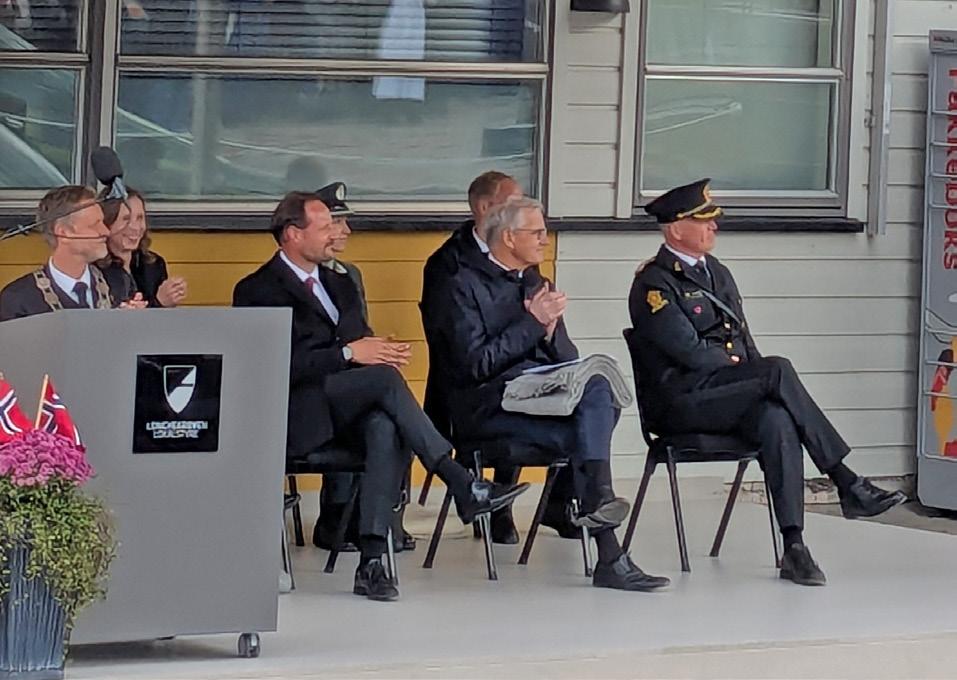
says she learned the lyrics and practiced on her own without anyone prompting her. “I think it’s built into her to memorize music,” she says.
Fiona’s confidence — and Longyearbyen’s confidence in her — should be no surprise; the svalbard Treaty jubilee was her second time performing for royalty. The first was for King Harald V and Queen sonja in June, while they were in town to commemorate the closing of the last coal mine on svalbard.
The royal couple’s multi-day trip was rather more pomp-and-circumstance than their son’s toned-down follow. After a stately parade to the town square, king and queen sat on a purpose-built dais while dozens of children performed for them, including a kindergarten choir and the elementary-school acrobatics club “sirkus svalnardo.” To close out the festivities, Fiona sang the Adele song “set Fire to the Rain,” which she had previously performed at the Longyearbyen culture school’s annual concert. Her professional bearing clinched her invitation for the prince’s visit two months later.
Two royal performances before the age of 10 might be an auspicious beginning for a career in music. “If she wants to make music a career, of course we’ll support her,” Movelyn says. “But she varies in what she wants to be, from doctor to cleaner to cook.”
Fiona is sure about one thing — she loves her Arctic hometown. On a recent family visit to the Philippines, she missed Longyearbyen so much that “the twomonth vacation felt like a year to her,” Movelyn says. she and Philip plan to move back to the Philippines at some point, but they have decided to wait until Fiona is old enough to make the decision for herself. “she loves it here, and we do not want to take that away from her,” she says.
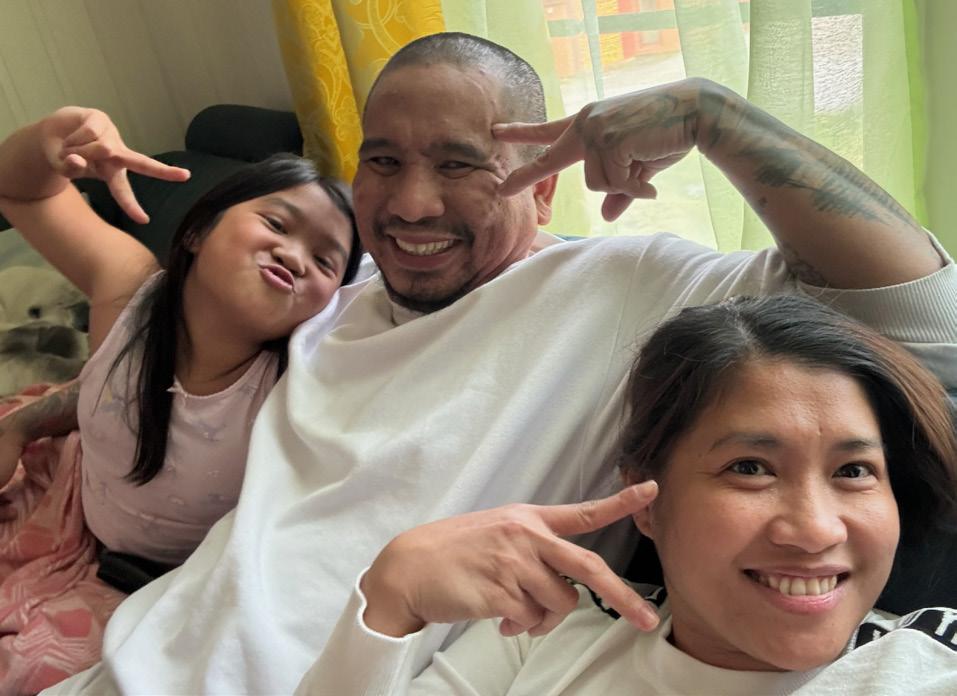
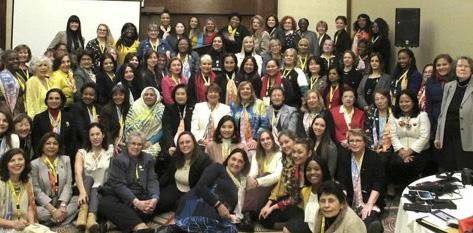
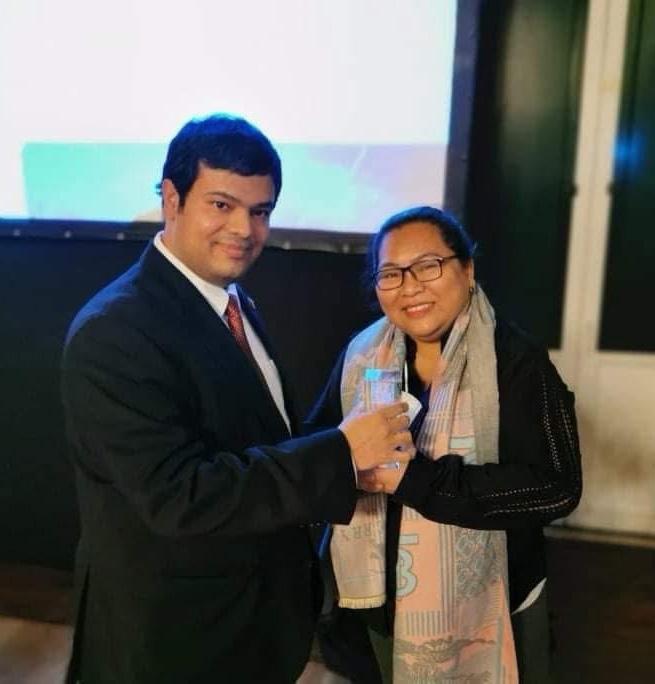
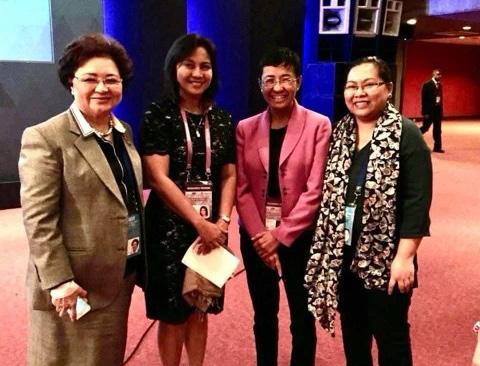
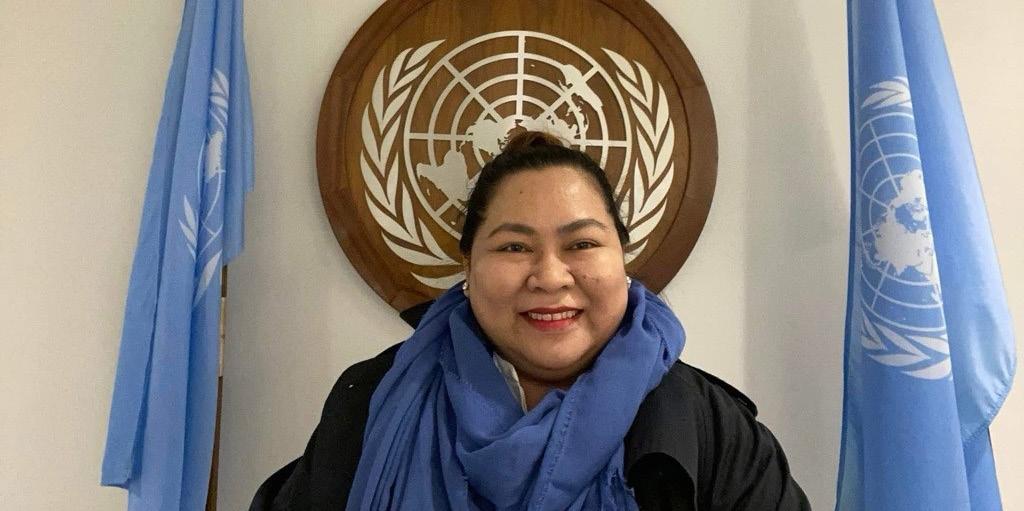
By Dr. Jenny Lind Elmaco, Austria
Dr. Jenny Lind Elmaco is a Fellow of the Royal society of Arts and an alumna of the Marie skłodowska-Curie Actions and Erasmus Mundus. Her work has been recognised with the Global Exemplary Education Double Gold Award, the Global Exemplary Innovative Leadership Diamond Award from GlobalWIN (UK), and the Marie Curie social Impact Award. she is a proud Mom to Gabrielle sofia, now 13, who can proudly speak Visayan and understand Tagalog and eager to
contribute to changemaking in her own way. We asked Dr. Elmaco to share some reflections on how she reached this admirable point in her career.
I was born in Dumaguete City, where I learned early that leadership is service. At silliman University I was student Council President, graduated magna cum laude, and was deeply honored to receive three of the Philippines’ top student distinctions: Ten Outstanding students of the Philippines, Ayala
Young Leaders, and the Jose Rizal Model student of the Philippines. The honors carried a responsibility and a promise — to learn from the world and to give back to it, to step beyond national borders and join the work of addressing our shared challenges.
While on an exchange year at International Christian University in Tokyo, I interned at the United Nations Information Centre— my first real taste of multilateral work. Back home, my first job
was as Project Director for Youth Affairs and Presidential staff VI at the Office of the President of the Philippines. It was baptism by fire: policy, decision making, governance and a front-row seat to the power of institutions when they remember the people they serve. I have been blessed to have met incredible Filipinos working in public service and I have learned a lot from them.
Austria gave me my first European experience and sharpened my skills in diplomacy and international development. I worked with Women Without Borders and the Austrian Foundation for World Population and International Development, and I spent an Erasmus year in Vienna as part of a Masters degree in Global studies funded by the European Commission. Vienna is a city I adore and continue to still frequent today, now as the main NGO Representative to UN Vienna of the International Federation of Business and Professional Women. In Vienna I learned the rhythm of change—ideas moving from corridors to conference rooms to communities—and the discipline of intersectional action, where culture, politics, and human rights are inseparable.
When I returned to Manila for some years, I served as senior Officer at the Austrian Embassy, working across human rights, politics, and cultural cooperation. My deep thanks to the Austrian Ministry of Foreign Affairs for the trust placed in the work that we did. I was honored to learn from Austria’s principled diplomacy and cultureled dialogue and to help translate those values into cooperation that
strengthened Philippines–Austria ties. I was especially pleased with the Embassy’s Leadership Excellence Award for Girls, a meaningful nod to cultivating the next generation of women leaders.
Across these chapters, I’ve tried to use whatever leverage I held—policy design, convening and lobbying power, teaching and mentoring skills, strategic communication and coalitionbuilding—to create practical pathways for people who might otherwise be left out. The through-line is intentional: use my strengths where they matter most, and keep learning so I can contribute more.
As I write this, I serve as Key Expert on the European Commission–funded Centralised support for Erasmus+ National Focal Points—delivered by PRACsIs as the contracted service provider—translating the EU’s flagship education and training programme into accessible opportunities for sub saharan Africa, Asia, Caribbean, Latin America, the Middle East and the Pacific. I also sit on the Advisory Board of the MsCA GLOPOL project, an EU initiative under the Marie skłodowska-Curie Actions, where PRACsIs likewise serves as service provider, strengthening global research ecosystems, and I am also as National Contact Point for MsCA, the European Research Council, and Research Infrastructures for the Philippines.
My work sits at the intersection of peace and security, global governance, and evidence-based programme design. I bring a
research-driven lens to realworld delivery—from building policy architectures and M&E frameworks to leading multisector teams and teaching. This bridge between theory and practice is where I have devoted my career: government, international development, future proofing education, AI and Big Data, working with UN agencies, embassies, and civil society— designing, implementing, and evaluating initiatives across Europe and many parts of the world.
“
Each step, from Dumaguete’s shores to Vienna’s halls, reminds me to serve by shaping a world where my daughter can belong, learn, and lead. Policies into possibilities, principles into practice—the next generation’s future. The work ahead—on mobility, equity, peace, and sustainability—demands humility, stamina, and collaboration across borders. My aim remains simple: to strategically use the strengths I have to help build a world that is more peaceful, more just, and more open to everyone.
LINKEDIN JENNY LIND ELMACO PHD
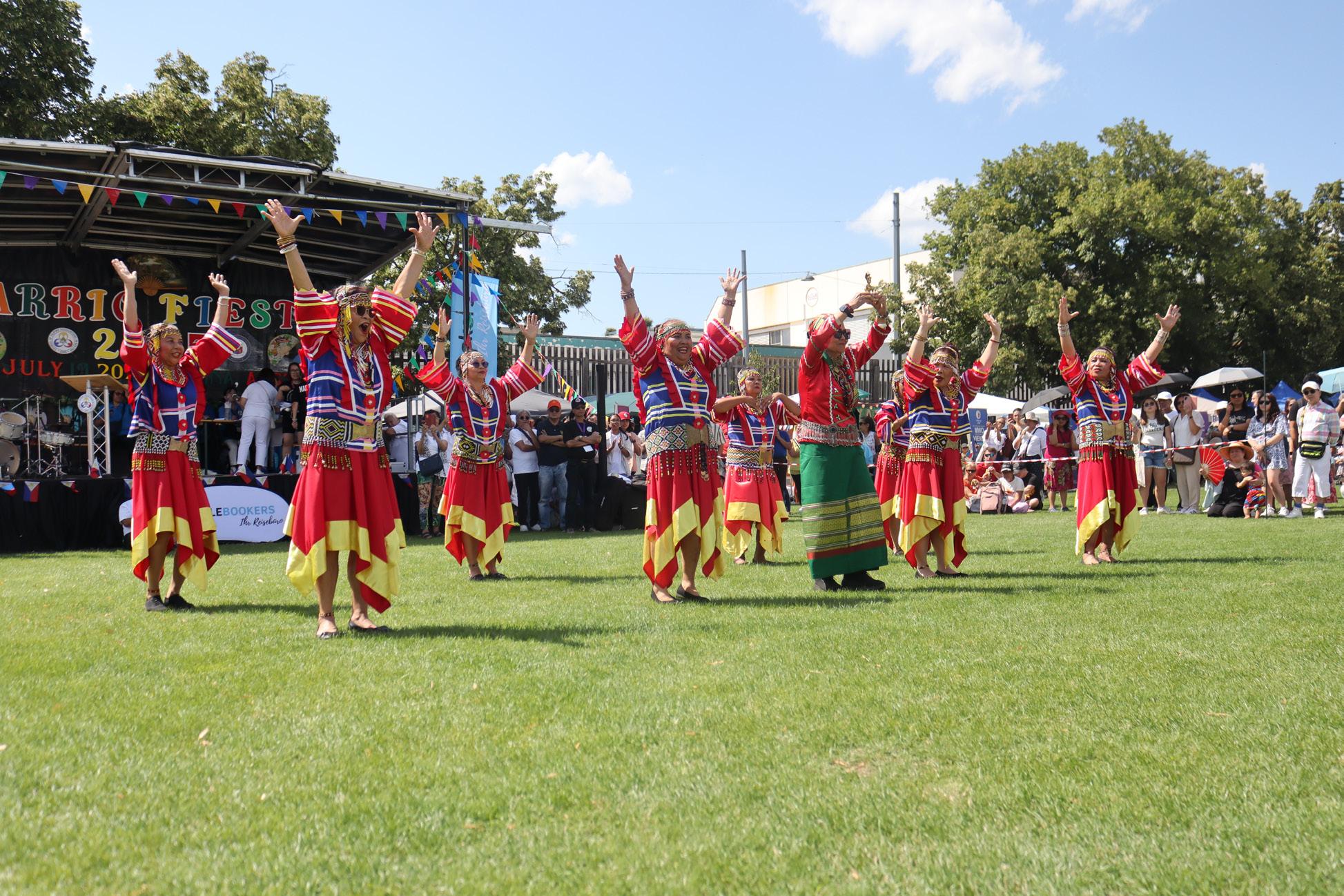
By Harold & Marie Khan
The Filipino community in Vienna was somewhat overlooked until a little more than 20 years ago, when their gatherings were often limited to karaoke nights, intimate family get-togethers, and quiet church services. These moments were warm, familiar, and comforting—a way of holding on to traditions and staying connected to home. Yet beneath the joy of shared meals and sunday hymns, something remained unspoken: the yearning for a stronger, more visible presence. What was missing was not community spirit, but a shared
identity that reached beyond nostalgia—an identity that could unify Filipinos across generations, give them recognition in Austrian society, and create a cultural footprint that was proudly their own.
Looking back, Filipino identity has experienced a powerful resurgence on the global stage. For many, it began with Efren "Bata" Reyes, the legendary “Magician” of billiards and widely hailed as the sport’s greatest of all time. It continued with Manny
Pacquiao, whose every match brought streets to a standstill, uniting Filipinos around the world. Beyond sports, Filipino culture found new visibility in the international spotlight, from the widespread embrace of adobo and the viral success of ube desserts, to pop culture representation through actors like Jacob Batalon and NBA stars Jordan Clarkson and Jalen Green. Here in Austria, the Filipino community proudly rides this cultural wave, finding both recognition and renewed confidence in their heritage.
David Alaba, Austria’s football icon with FilipinoNigerian roots, has become a source of immense pride for both Austrians and Filipinos. While basketball has long been the sport closest to Filipino hearts, it is David’s matches that bring families together in living rooms across Vienna. More than just an athlete, he stands as a cultural bridge, proof that identity can thrive across borders. His sister, Rose Alaba, is likewise making her mark as a rising pop singer and entrepreneur, running her own restaurant, DaRose. Together, the Alaba siblings embody the Filipino spirit of talent, perseverance, and the courage to stand tall in a foreign land.
A new generation of Filipino entertainers is finding inspiration in trailblazers like Cindy Kurleto, Mark
Agpas, and Vincent Bueno, who have each carved a place for themselves in Austria’s cultural landscape. Their visibility has opened doors and shown young Filipino-Austrians that pursuing careers in music, television, or film is not just possible but worth striving for. These role models represent more than talent; they symbolize resilience, adaptability, and pride in heritage. Today, aspiring singers, dancers, and actors are stepping into the spotlight with greater confidence, bringing with them fresh perspectives that blend Filipino creativity with European influences. In doing so, they are not only honoring those who came before them but also shaping a future where Filipino artistry is firmly recognized and celebrated on Austria’s stages.
This renaissance isn’t limited to the spotlight— it extends far beyond the stage and screen. The narrative of what it means to be Filipino in Austria is being rewritten every day by Filipinos and FilipinoAustrians who are redefining community, creativity, and entrepreneurship. One shining example is Marikit Mart, a pioneering pop-up shop concept that provides a platform for small business owners such as Ligaya
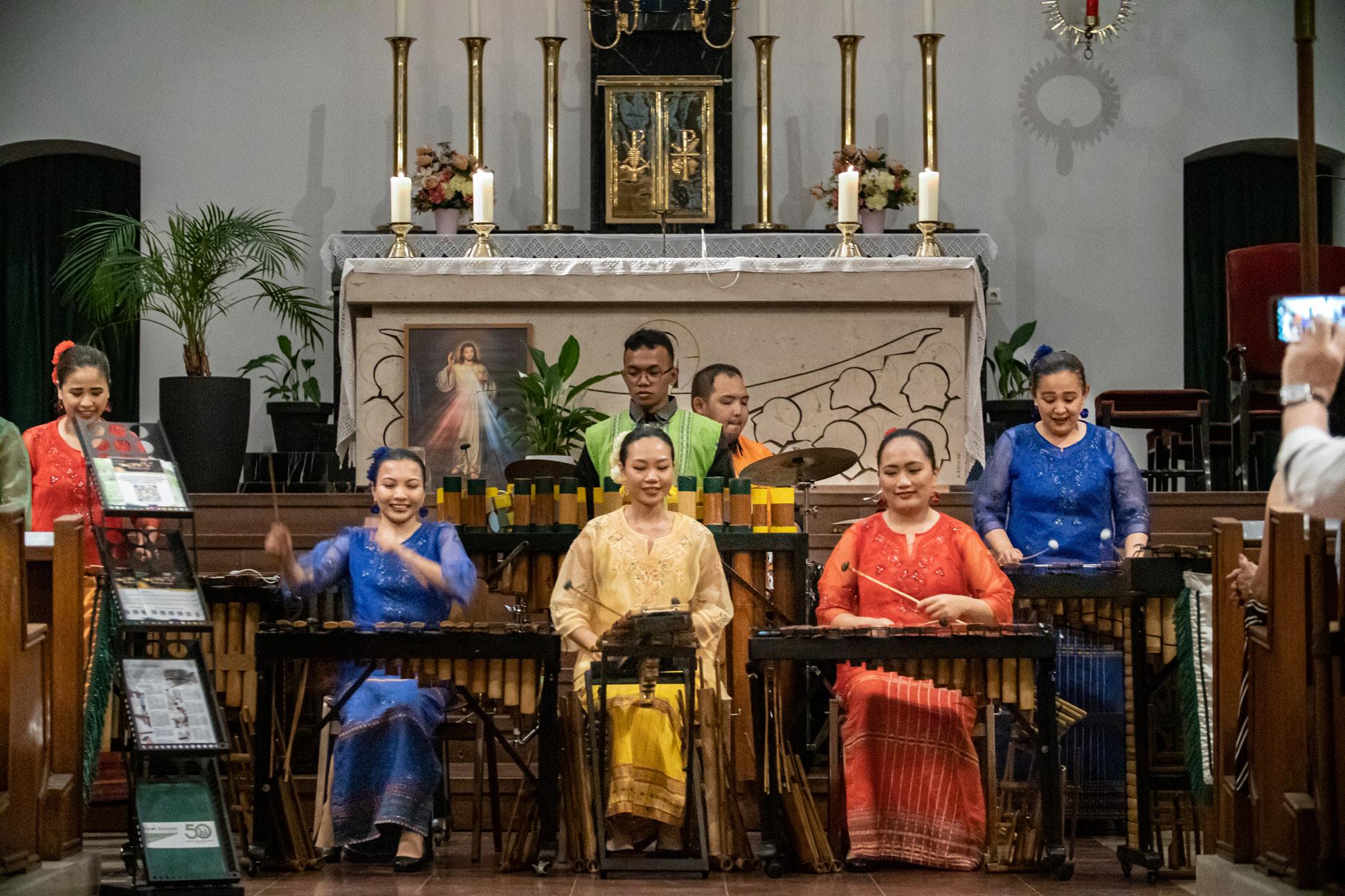
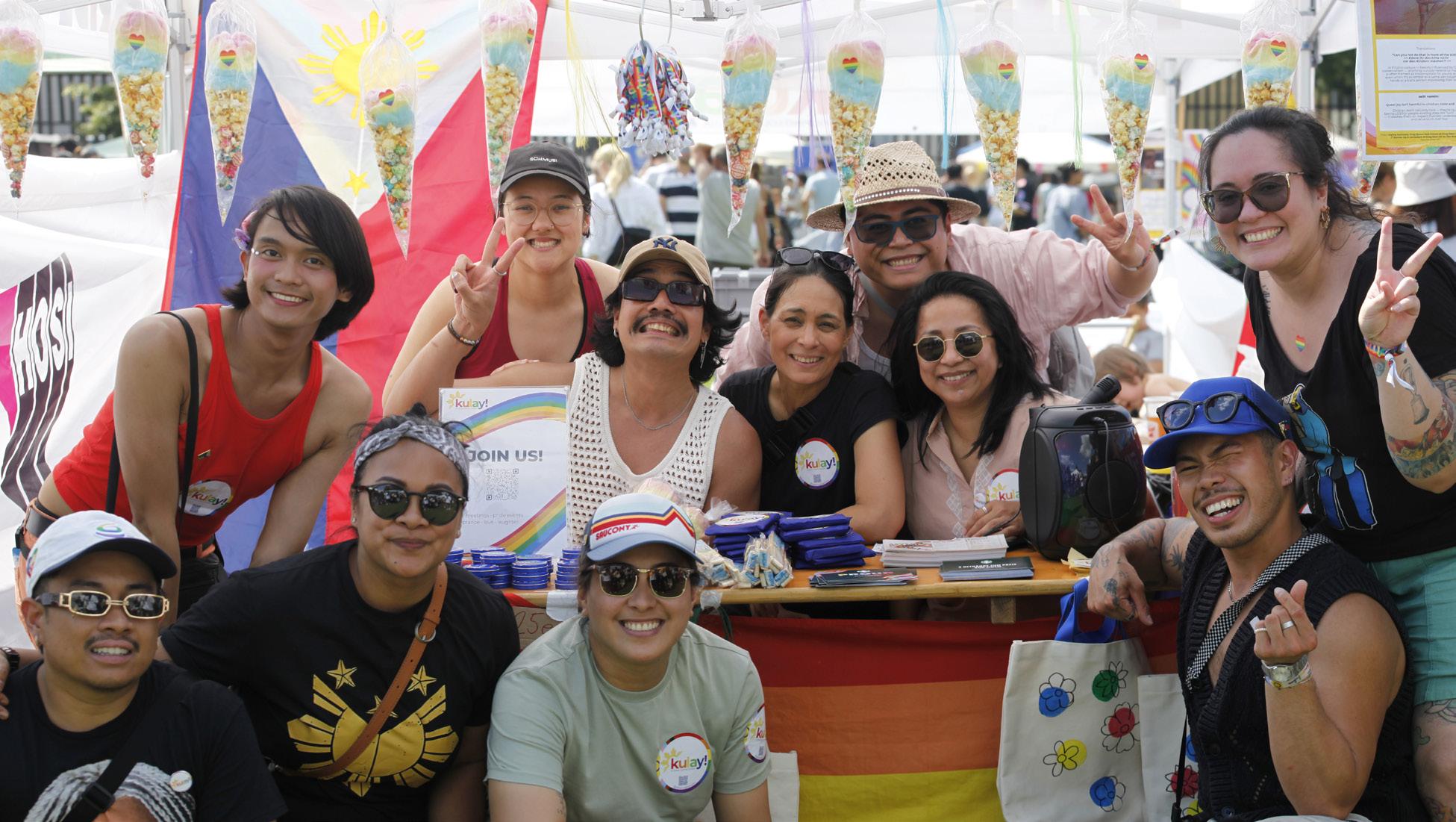
Apparel, Angelato, and Hiyas ng Pinas to showcase their work. More than just a marketplace, Marikit Mart has become a cultural hub, often collaborating with local Filipino cafés like Lorelei’s Pan to transform ordinary spaces into lively communal areas filled with art, food, and shared stories. These initiatives go beyond commerce—they foster connection. Each handcrafted item, each shared meal, and each neighborhood-focused event becomes an expression of “pagkakaisa”, the Filipino value of unity. Through these efforts, small businesses are not only thriving but also cultivating pride, visibility, and a sense of belonging for the diaspora. In these gatherings, the community finds both economic empowerment and cultural affirmation, reminding everyone that Filipino creativity and solidarity can flourish even far from home.
In addition to individual initiatives, cultural organizations have begun to firmly establish themselves and are now thriving as pillars of the Filipino-Austrian community. Groups such as sige!, Kulay and Rambak Austria are at the forefront of a creative movement that is reshaping how Filipino identity is expressed in Vienna. Through workshops, exhibitions, performances, and collaborative events, they provide platforms where young people— especially those navigating questions of identity—can
explore their heritage in a supportive and empowering environment.
Vienna’s Filipino LGBTIQ community welcomed the emergence of a new organization this year with the launch of Kulay, a group dedicated to creating inclusive spaces and amplifying queer voices across the city. Founded by a circle of young activists and creatives, Kulay takes its name from the word for “color,” reflecting the diversity and vibrancy of the community it seeks to represent. Its founders say the group was inspired by the momentum of other youth-driven initiatives, particularly sige!, whose visibility and grassroots organizing encouraged them to step forward.
Organizations such as sentro and ENFiD Austria serve as vital links to the homeland. By inviting artists, musicians, and chefs from the Philippines such as Ate Wamz to share their craft, they provide first-generation Filipinos with a direct connection to the culture they left behind, while offering the younger generation a living bridge to their roots. These gatherings are more than cultural showcases— they are gifts passed down, nurturing pride, love of heritage, and a deeper appreciation of ancestry.
Binding these diverse initiatives together is the Council for Filipino-Austrian Associations (CFAA), often described as the “glue” of the community.
Through its flagship event, the Barrio Fiesta, CFAA brings thousands together each year in a grand celebration of Filipino culture. What began as a simple gathering has grown into one of the most anticipated cultural events in Vienna, marked by food, music, dance, and an unmistakable spirit of belonging. supporting and amplifying these efforts is the Philippine Embassy in Vienna, under the leadership of H.E. Evangelina Lourdes A. Bernas-Arroyo. The Embassy has elevated cultural diplomacy by presenting acclaimed chef and visual artist Claude Tayag, hosting the world-renowned Madrigal singers at the Musikverein, showcasing the dynamic performances of Banda Kawayan, and organizing insightful lectures including those by Jeremy Barns of the National Museum of the Philippines and historian Ambeth Ocampo, who delivered memorable talks on José Rizal and Philippine maps.
“KUMAIN
When the doors of the Wien Museum opened to the exhibit Kumain kana? by Filipino-Austrian artists Chelsea Amada and Ryan Noel, no one could have predicted how profoundly it would reshape the perception on Vienna’s Filipino community. What began as an art show transformed into one of the museum’s most successful community exhibits, an unexpected triumph born from both struggle and resilience.
not just of Filipinos, but Austrians, expats, and art enthusiasts from across the country. The galleries overflowed with laughter, Filipino chatter, and curious German voices. The exhibit became less about combating perception and more about reclaiming presence. For the first time in the Wien Museum’s walls, Filipino narratives stood on their own terms, bold, unapologetic, and celebrated.
“ IT REMINDED THE MUSEUM, AND THE CITY, THAT FILIPINO CULTURE IS NOT JUST TO BE TOLERATED, BUT TO BE EMBRACED, CELEBRATED, AND LEARNED FROM.
What made the exhibit truly historic was not merely its attendance or acclaim, but the way it brought Vienna’s Filipino community together. Those who had previously kept their distance from cultural institutions found themselves walking proudly into the museum. Youth organizations, entrepreneurs, and firstgeneration migrants alike gathered around the artworks, discovering reflections of their own experiences, identities, and stories in ways they had never encountered before. For the organizers, success was not measured only in attendance, but in impact. “I define the success of the exhibition by the fact that it touched so many people in our community, as well as those with a migration background,” Amada reflected. The atmosphere during the opening was especially moving: “What stood out to me the most was the audience cheering during our speech. That gave me such a strong feeling of support,” she added.
From the title itself, Kumain kana? (“Have you eaten?”), is a simple phrase, but for Filipinos it carries the weight of care, kinship, and love. It is an invitation not just to share food, but to share space, culture, and humanity. Amada and Noel leaned into this cultural touchstone, creating an exhibition that blended installations, photography, and textures of Filipino everyday life.
Yet the road to this success was far from smooth. There was scepticism and for many in the diaspora, it was a familiar story: being invited in, only to be underestimated. But the community turned those doubts on their head. Kumain kana? drew in crowds
In the end, Kumain kana? did what perceptions never expected: it succeeded. It became proof that the Filipino voice in Vienna is not peripheral, but essential. It reminded the museum, and the city, that Filipino culture is not just to be tolerated, but to be embraced, celebrated, and learned from.
This community is no longer waiting for validation. It is building, growing, and thriving, one artist, one event, one small business at a time. And for the first time in a long time, the future doesn’t just look bright, it feels proudly Filipino. I can finally say this as an expat living in Austria.
We are committed to harmonizing nature, science, passion, and elegance in everything we create. Our mission is to deliver sustainable innovation with integrity, crafting refined experiences that uplift both people and the planet.
With every purchase, a portion of the proceeds goes directly to a dedicated charity in the Philippines that supports underprivileged communities. Together, we can nurture not only healthier individuals but also help build stronger, more progressive communities.
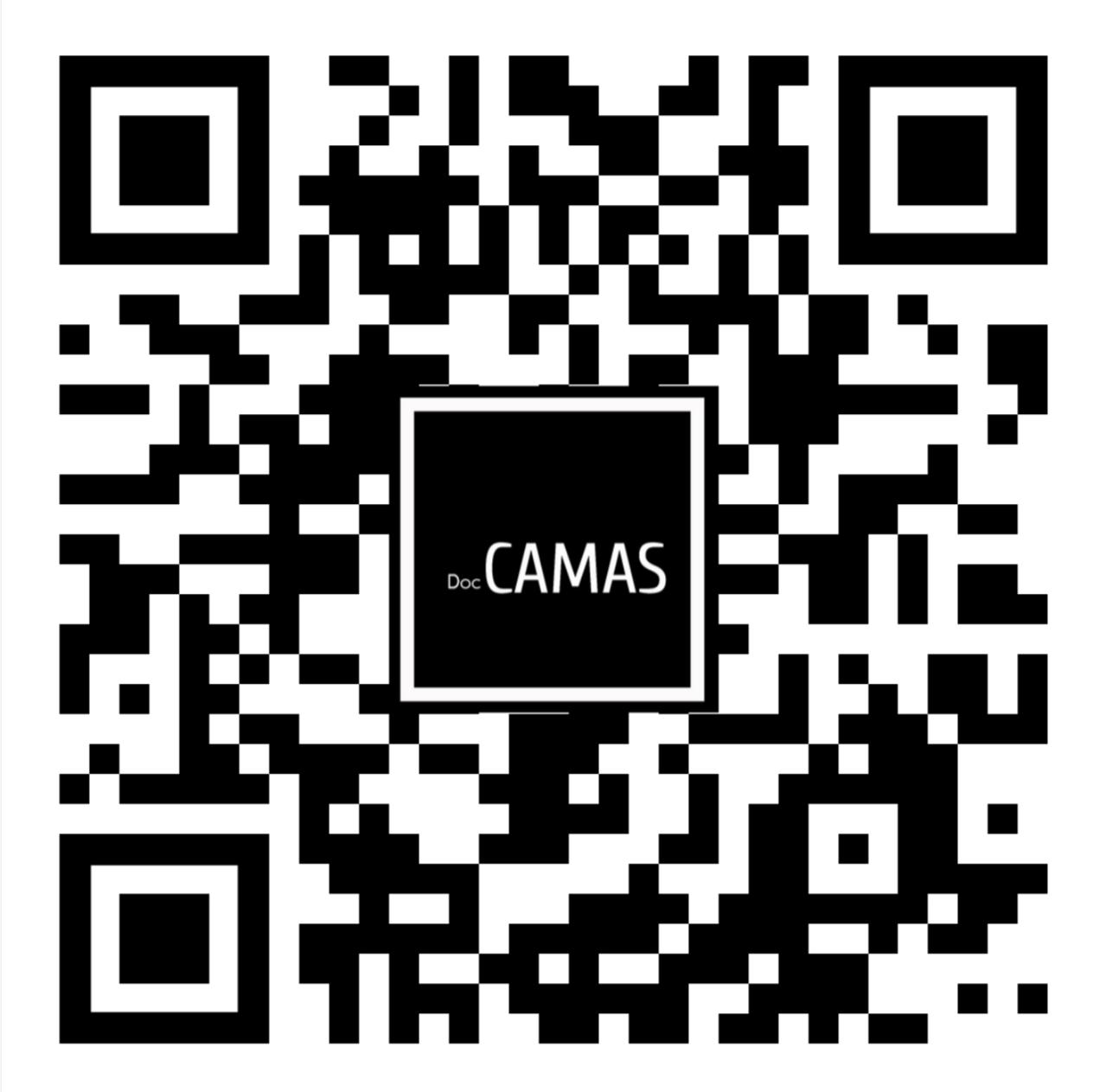
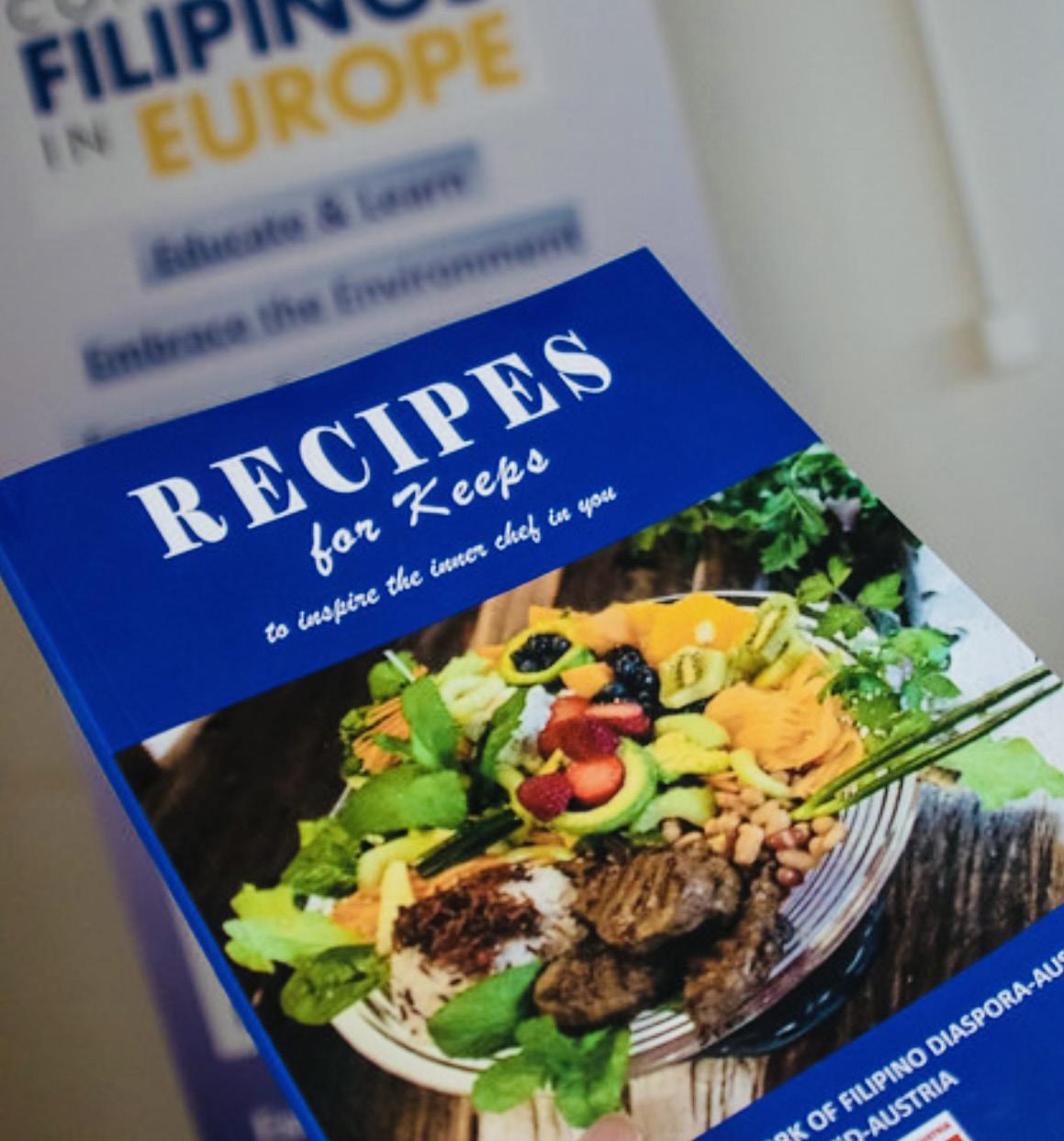
By Sonia Zerrudo-Gostencnik, Austria
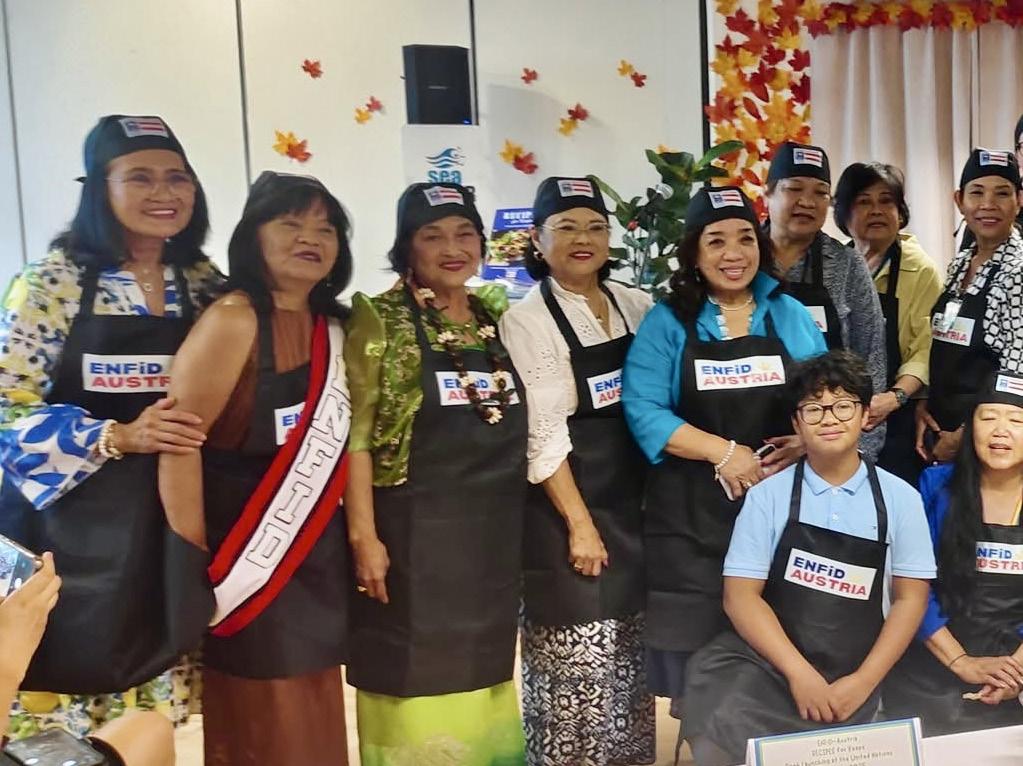
The European Network of Filipino Diaspora Austria (ENFiD-Austria) virtually launched the first edition of its cookbook “RECIPEs for Keeps” in December 2020, after enduring an almost year-long lockdown due to the pandemic. Conceived from the shelter of our homes, it was born out of longing— for warmth, for connection, for the flavours that carried our stories. What began as a passion project has now become a cherished tradition: a collection of dishes that are more than recipes. They are vessels of memory, culture, and love—truly, for keeps.
The amazing contributors of “RECIPEs for Keeps” come
from all walks of life—some are trained chefs, food bloggers and restaurateurs, but the majority are ordinary home cooks who find extraordinary joy in sharing. Each dish carries the spirit of the Filipino table, where—as the saying goes—“sa hapag-kainan, pantay-pantay ang lahat.” At the table, everyone is equal.
In the summer of 2025, the idea of presenting this humble cookbook at the Frankfurt Book Fair sparked the interest of its publishers—Marizel Rojas, Chairperson and Ana Maria Langer, Cultural Director & Auditor of ENFiD-Austria— to publish a second edition. The Philippines, “an island
nation whose culture focuses on diversity,” is this year's guest of honor at the Frankfurt Book Fair.
Within less than four weeks, the publishers burnt the midnight oil to produce the second edition of the cookbook. Fresh off the press, “RECIPEs for Keeps” hit the shelves on August 28, 2025 at the Vienna International Centre, enhanced with 16 new recipes from ENFiD Directors and friends, bringing the total to 93 recipes from 61 contributors across five continents!
The launch of “RECIPEs for Keeps” was made all the more special by the presence of Ambassador Maria Cleofe Natividad—who was the
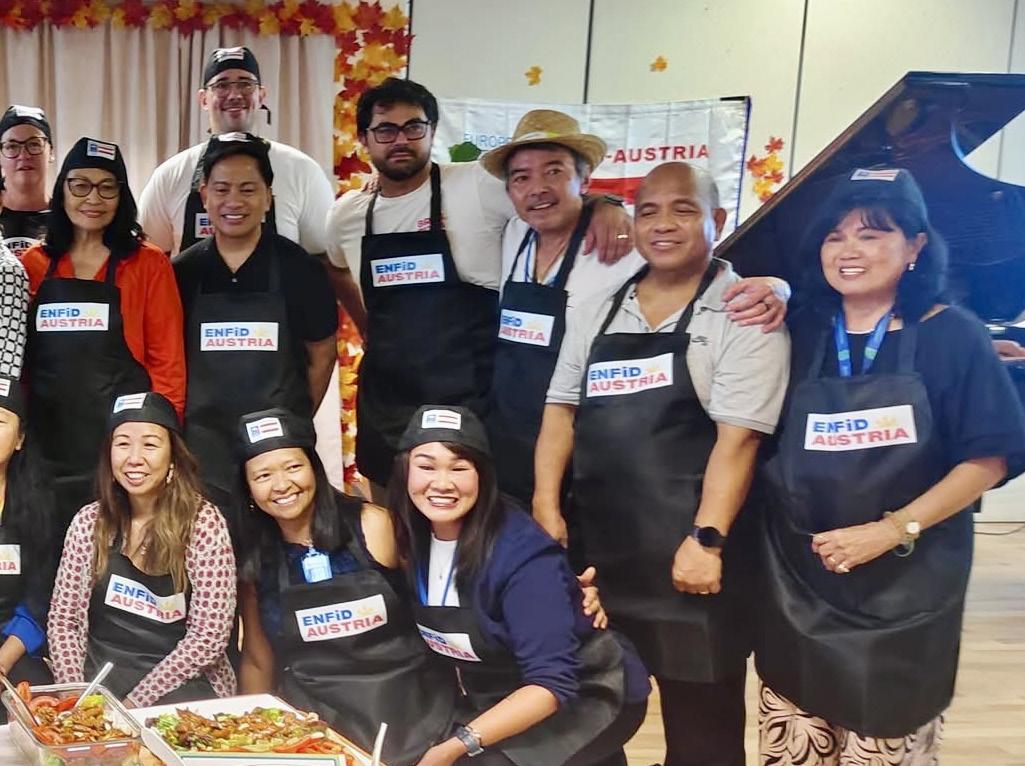
Philippine Ambassador to Austria when the first edition was published and is now a Director of the International Atomic Energy Agency. We also extend our heartfelt thanks to the current Philippine Ambassador to Austria, H.E. Evangelina A. Bernas, for her warm congratulatory message included in this new edition. Her words of encouragement inspire us to continue nurturing crosscultural understanding through food and community.
We were further honoured by the presence of officers and staff of the Philippine Embassy, our generous donors, as well as ENFiD Directors visiting
from Paris, Prague, London, Milan, Zurich, and Brno. The former Chairman of ENFiDEU, Christian Estrada, and our major sponsor, serge BensaCruz of Bros. Pizza, offered heartfelt messages of solidarity and support to the Filipino community. Truly, the gathering was a testament to the Filipino gift for turning milestones into moments of togetherness.
The evening was enriched by music that touched our hearts— the Climaco Angels’ voices echoing the warmth of home, Ricky Chiu’s stirring piano pieces lifting spirits, and the sea Major Project Band led by Ody Patron filling the hall with joyful energy.
It was a reminder that, like food, music nourishes the soul and brings people together.
The absolute highlight of the evening was the Parade of Cooks, led by a 12-year old boy proudly presenting his spicy garlic noodles. He was followed by 24 other cooks marching in line, all clad in black personalized ENFiD aprons. Each one beamed as they carried a sample of their signature dish to the delight of nearly 70 guests.
Eyes lit up with excitement as the colorful array of flavours, aromas, and creativity thrilled the senses—canapés, mini pizza crackers, chicken macaroni, Asian salad, spring rolls, sweet & sour
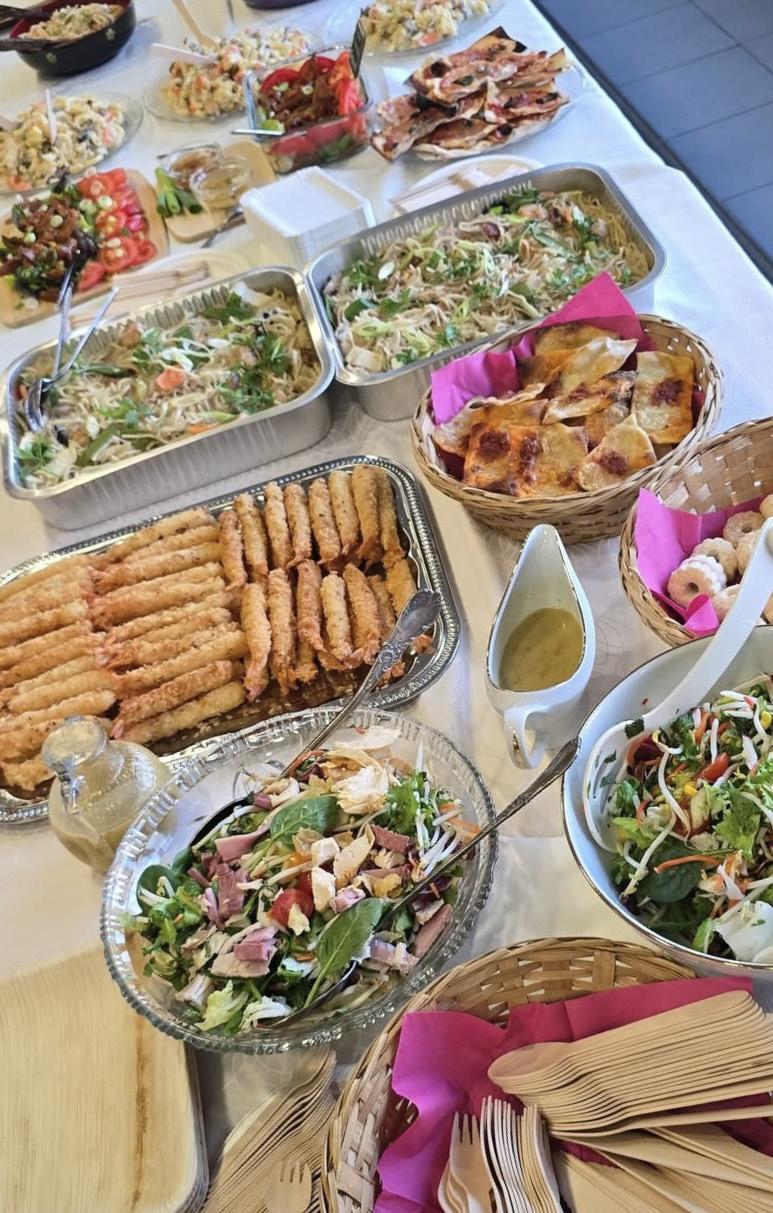
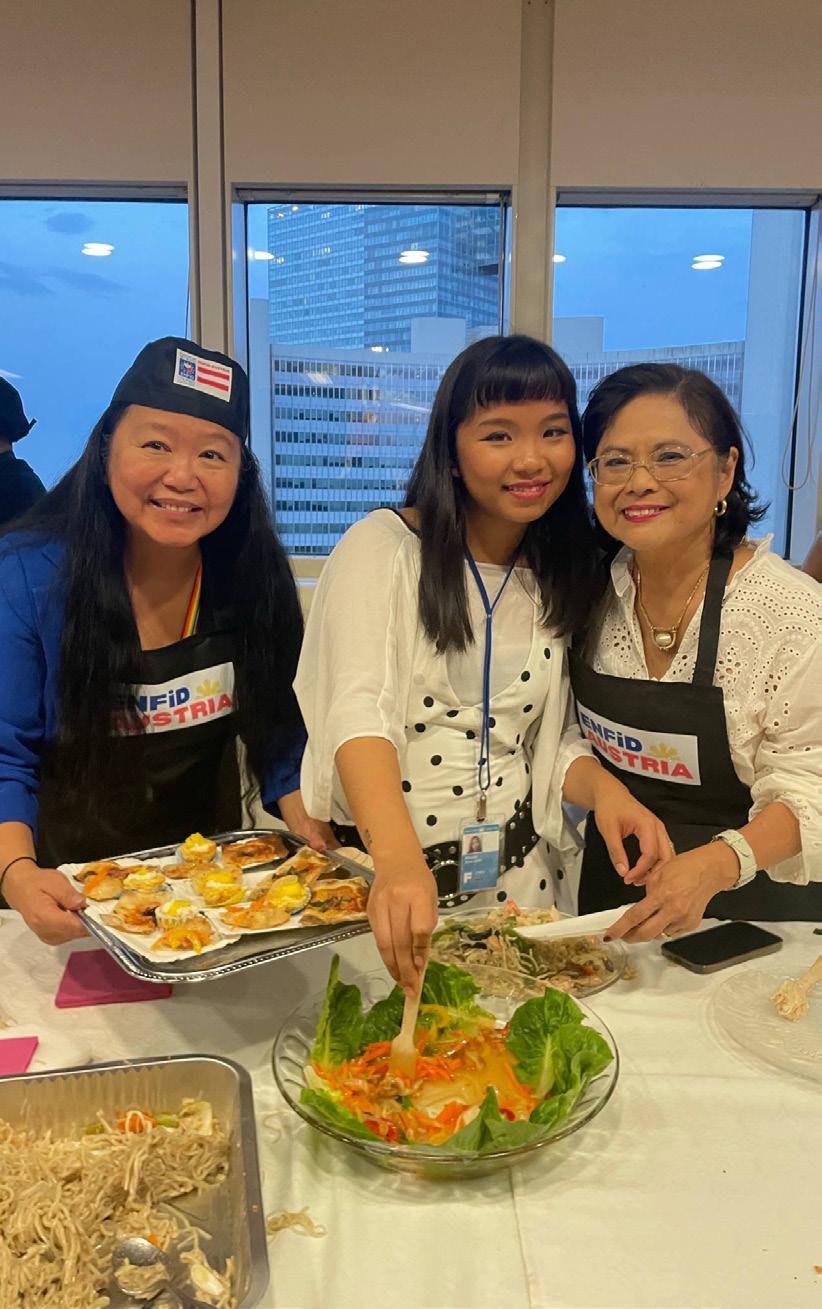
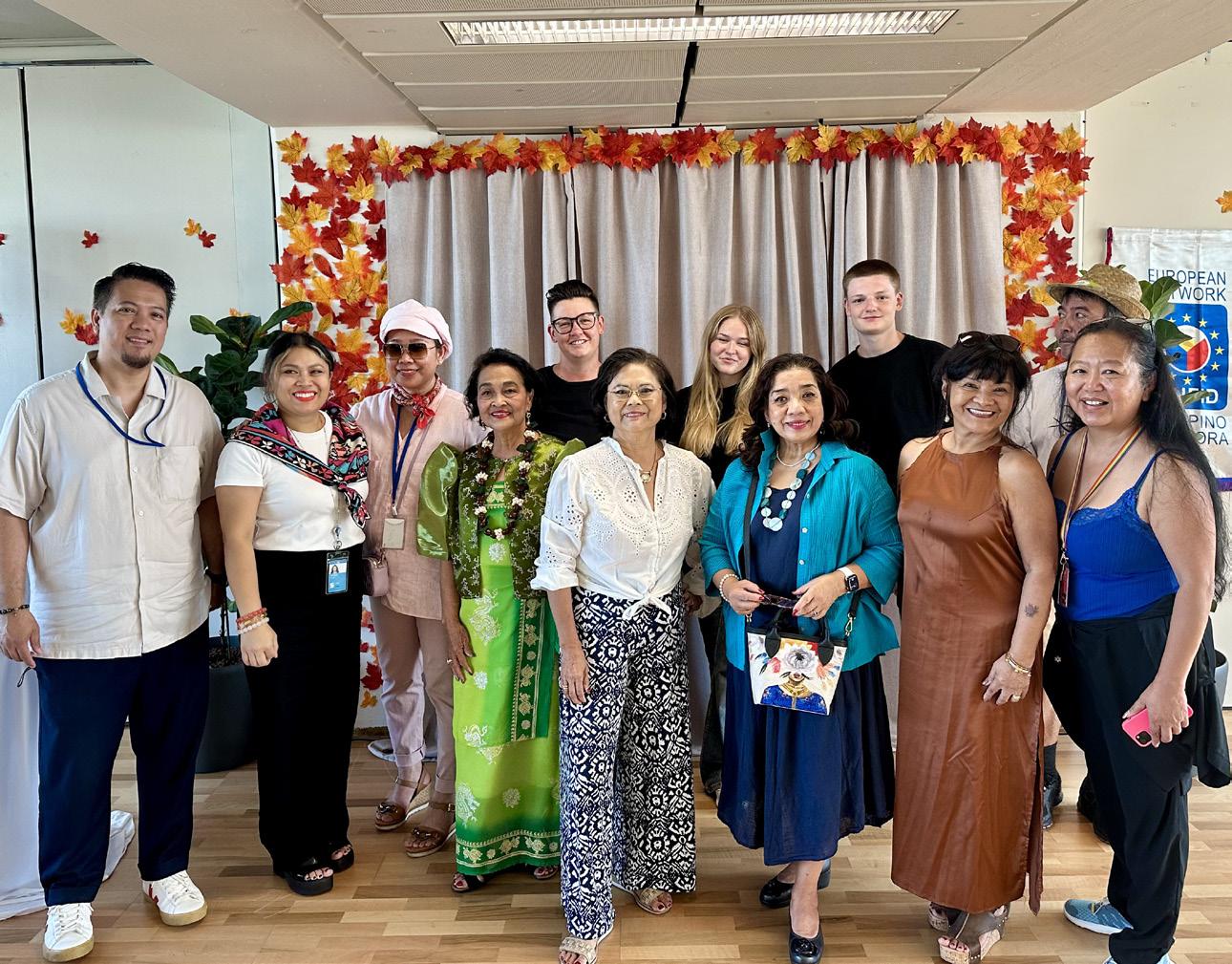
fish, sushi bake, oyster mushroom tocino, pancit bam-i, fried shrimp; heavenly desserts such as mango cheesecake, burnt Basque cheesecake, coconut dome cakes, carrot cake with buttercream cheese frosting, Kaiserschmarrn, and kutsinta; and an assortment of refreshing pandan-infused drinks.
Each dish was a reminder that recipes carry more than ingredients—they carry family stories, heritage, and the joy of giving. As the Filipino salawikain reminds us: “sa bawat lutong-bahay, may kasamang pagmamahal ng pamilya.” In every home-cooked meal is the love of family.
At its core, “RECIPEs for Keeps” remains a passion project with purpose. The joy of cooking and sharing goes beyond the table, as proceeds from the book support the vital work of PREDA Foundation Inc. and Good samaritan Helping Hands in the Philippines—extending love, justice, and compassion to those who need it most.
As we celebrate this second edition, we remember a wisdom
often told to us growing up: “Kung ano ang itinanim, siya rin ang aanihin.” What we planted in the time of isolation has blossomed now into a harvest of community. What began as an attempt to ease distance has become a lasting bond that brings us together— diasporic yet united, diverse yet one. And perhaps the deepest wisdom is this: “Walang gutom sa pamilyang nagmamahalan.” No one goes hungry in a loving family.
We ended this memorable evening with dancing, singing, exchanging Instagram handles, and a heroic sharon-worthy effort to pack up the rest of the food. In this family of Filipinos abroad, we proved a beautiful truth—that through shared kitchens, music, stories, and flavours that evoke a sense of home, our bonds grow ever stronger. so, let the feast begin!
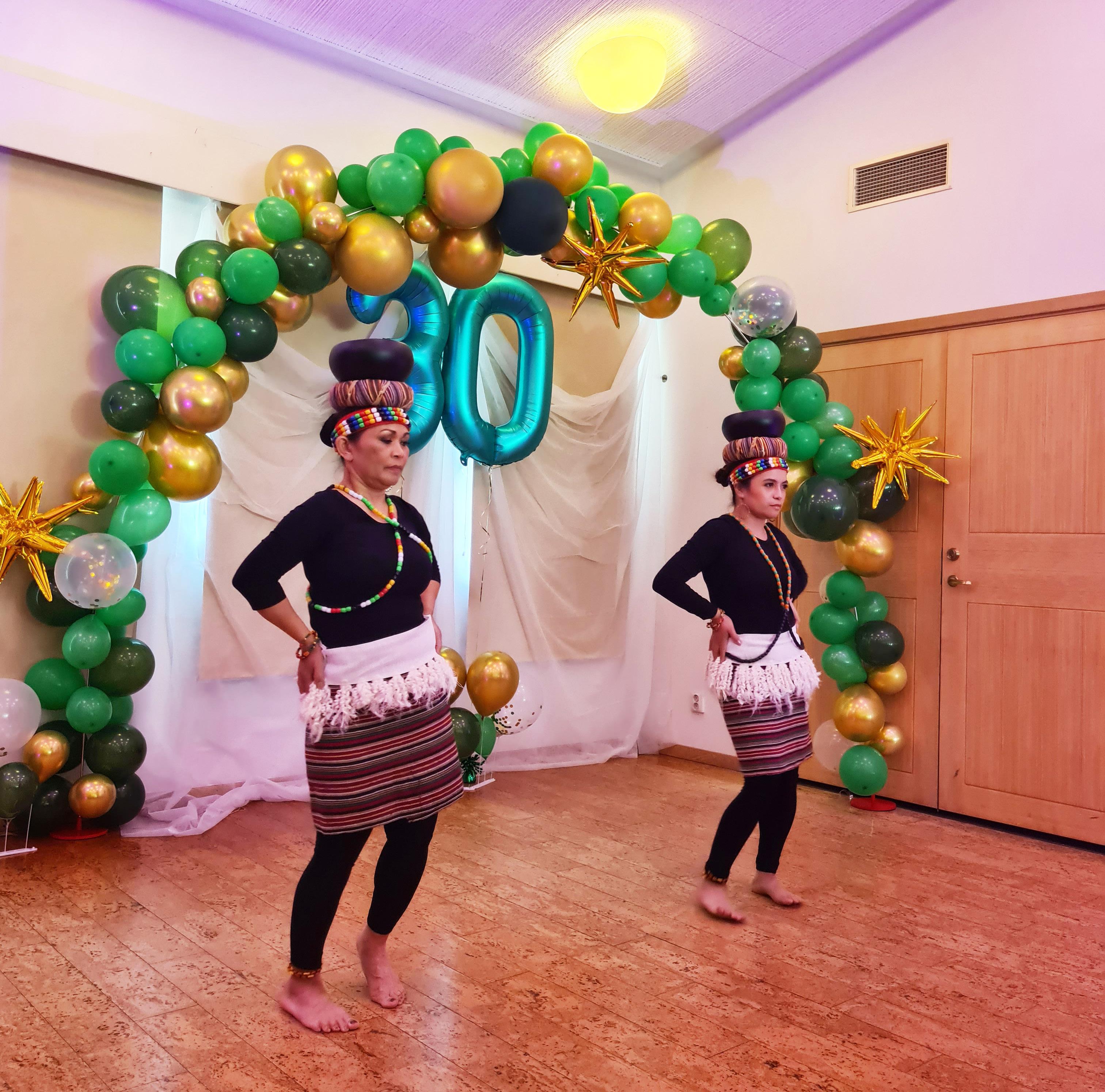
The EuroAsian Dance Group in Stockholm, Sweden celebrates its 30-year anniversary
By Rachel Hansen
The iconic EuroAsian Dance Group, founded in stockholm, sweden by Ditas Magarin Enström, celebrated its 30th anniversary with a colorful and delightful variety show. The program featured a wide range of dances, a guitar duo concert by the Lakbai Duo—a guitarist couple from Manila—a buffet dinner with the newly appointed Philippine Ambassador to sweden, H.E. Patrick A. Chuasoto, as guest of honor.
Thirty years of delighting not only the swedish and scandinavian audiences but also as traveling guest performers to other European countries, with their authentic, charming, lively Filipino folk dances and music is an awesome achievement.
We are deeply thankful and grateful to Ditas Magarin Enström, the dance group’s founder and first choreographer. When she arrived in stockholm in 1986, she had no plans to start a dance school. Eager to find a job to earn a living, she
became a dance instructor at a local community school, teaching jazz, disco, Latin, and show dance. Dancing was in Ditas’ blood—she has been performing since her early childhood in her hometown of Cabadbaran, Agusan del Norte.
Over the years, she's not only taught dance to people of all ages— including children in the Filipino communities—but also trained other dancers to become instructors and choreographers like herself.
And finally in 1995, the time was ripe for Ditas to formally establish a dance group to meet the growing demand for cultural performances from various communities and organizations, and even foreign embassies. At first, the members of the dance group came from other parts of Europe and Asia, hence the name EuroAsian.
Today, all its dancers are Filipinos, many of whom joined as children, often alongside their parents who were among the group’s first performers. The mission remains unchanged: to
present the most authentic Filipino dances to swedish and European audiences, and “to promote, preserve, and share the best of our cultural heritage so we can take pride in who we are.”
Ditas emphasizes that the group’s success is the result of years of tireless dedication, hard work, and, above all, love—from the dancers, their parents, relatives, friends, and countless supporters near and far. “Without these people,” she says, “the EuroAsian Dance Group would not have come this far.”
We extend our heartfelt congratulations to Ditas and her lovely, talented dancers. Thank you for being a source of pride and joy to our communities. May you continue to dance and inspire for many more years to come!
Mabuhay ang EuroAsian Dance Group!
Mabuhay si Ditas Magarin Enström!
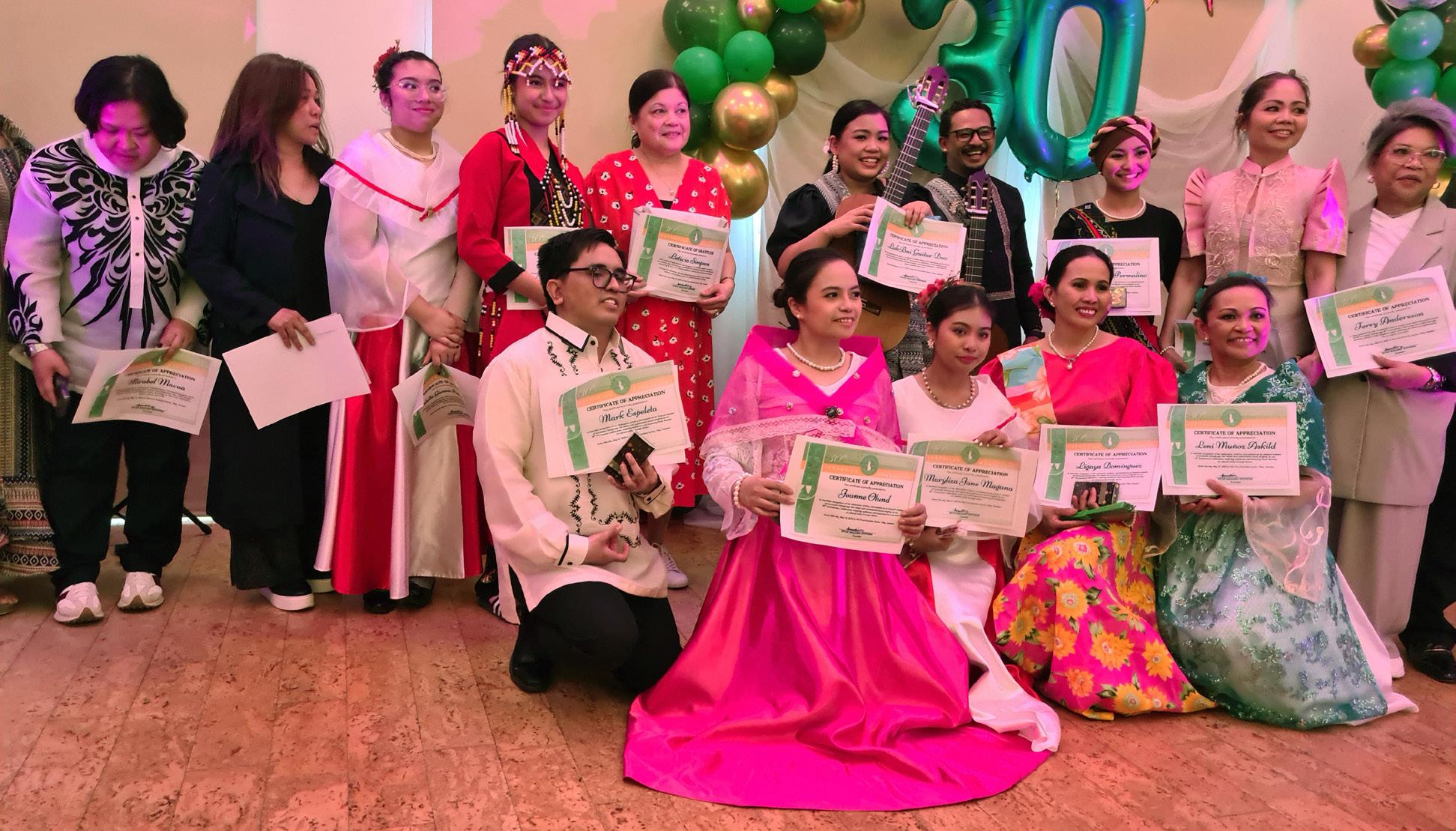
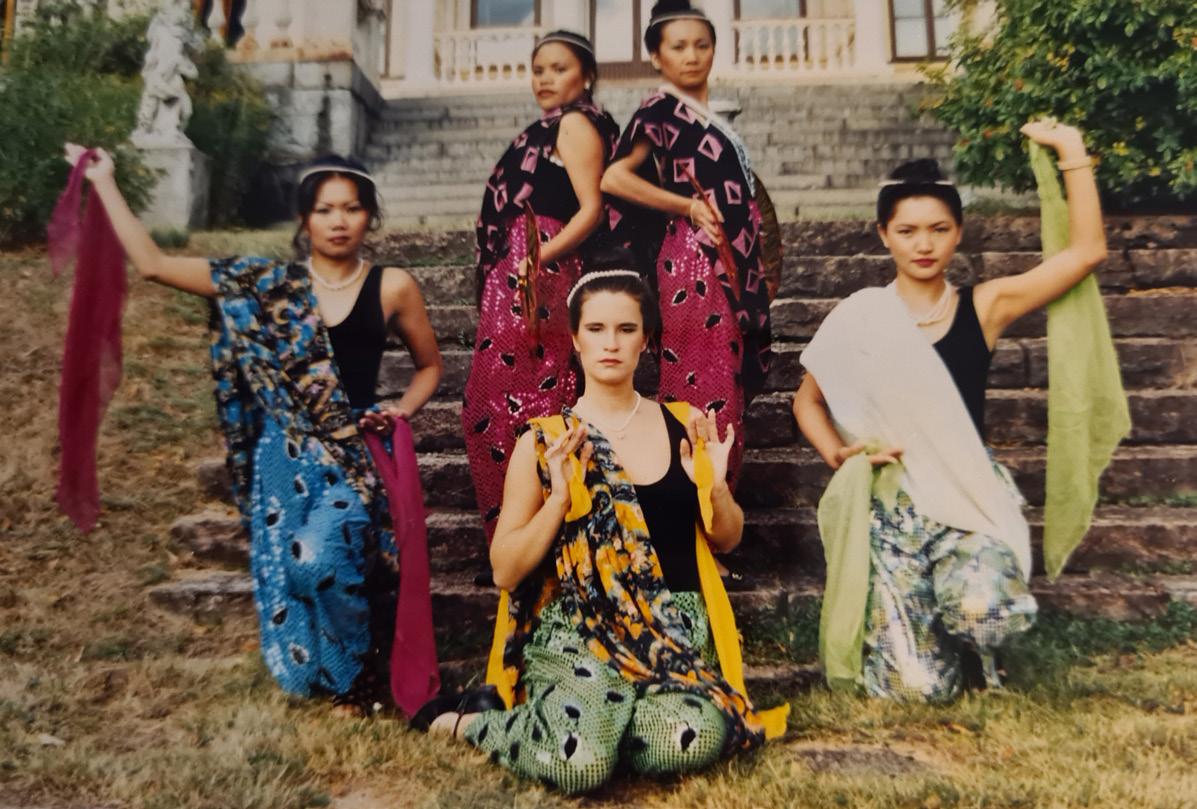
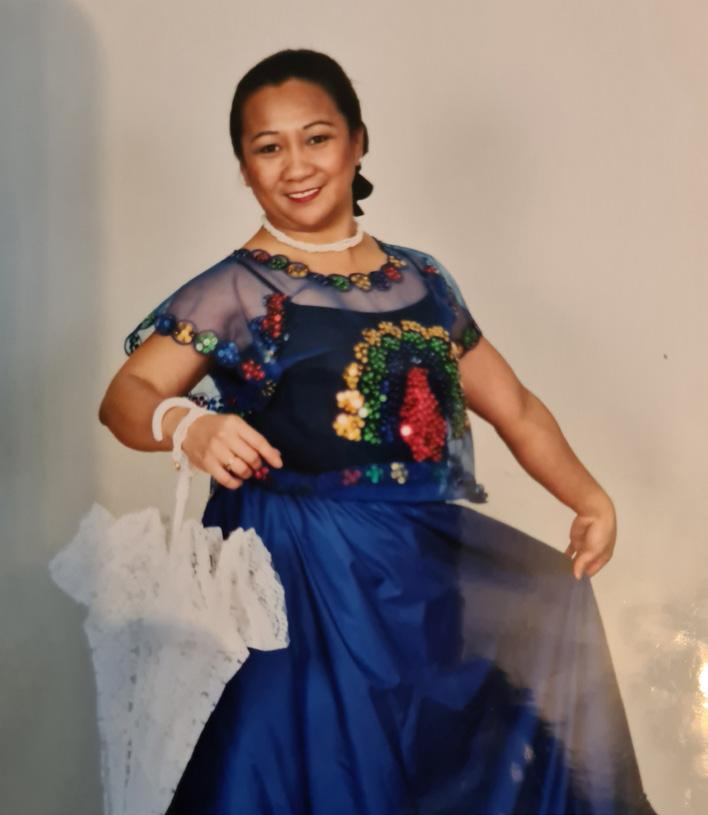
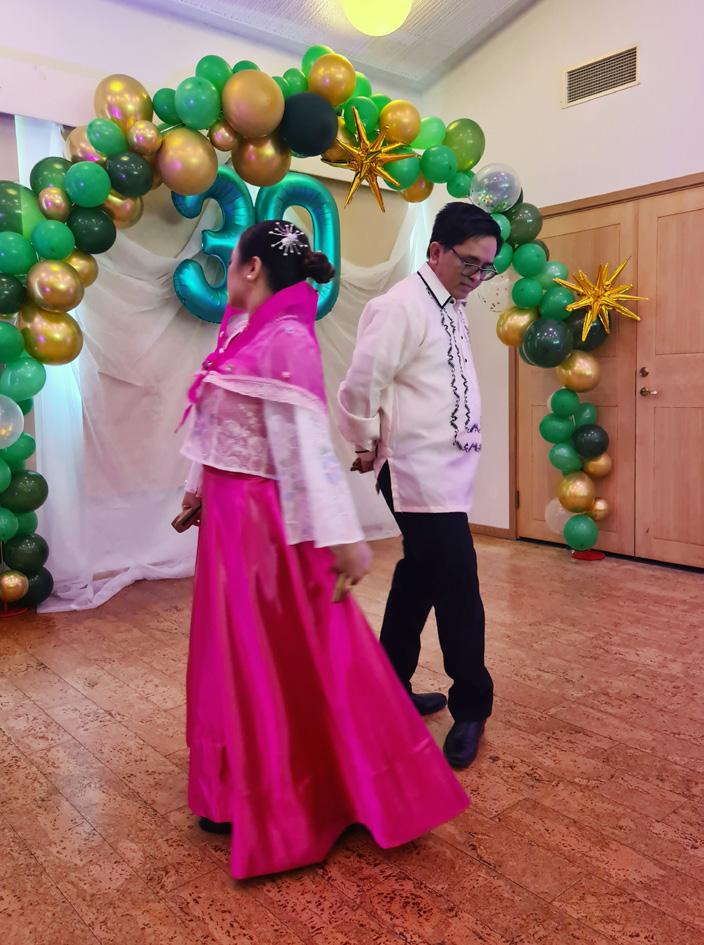
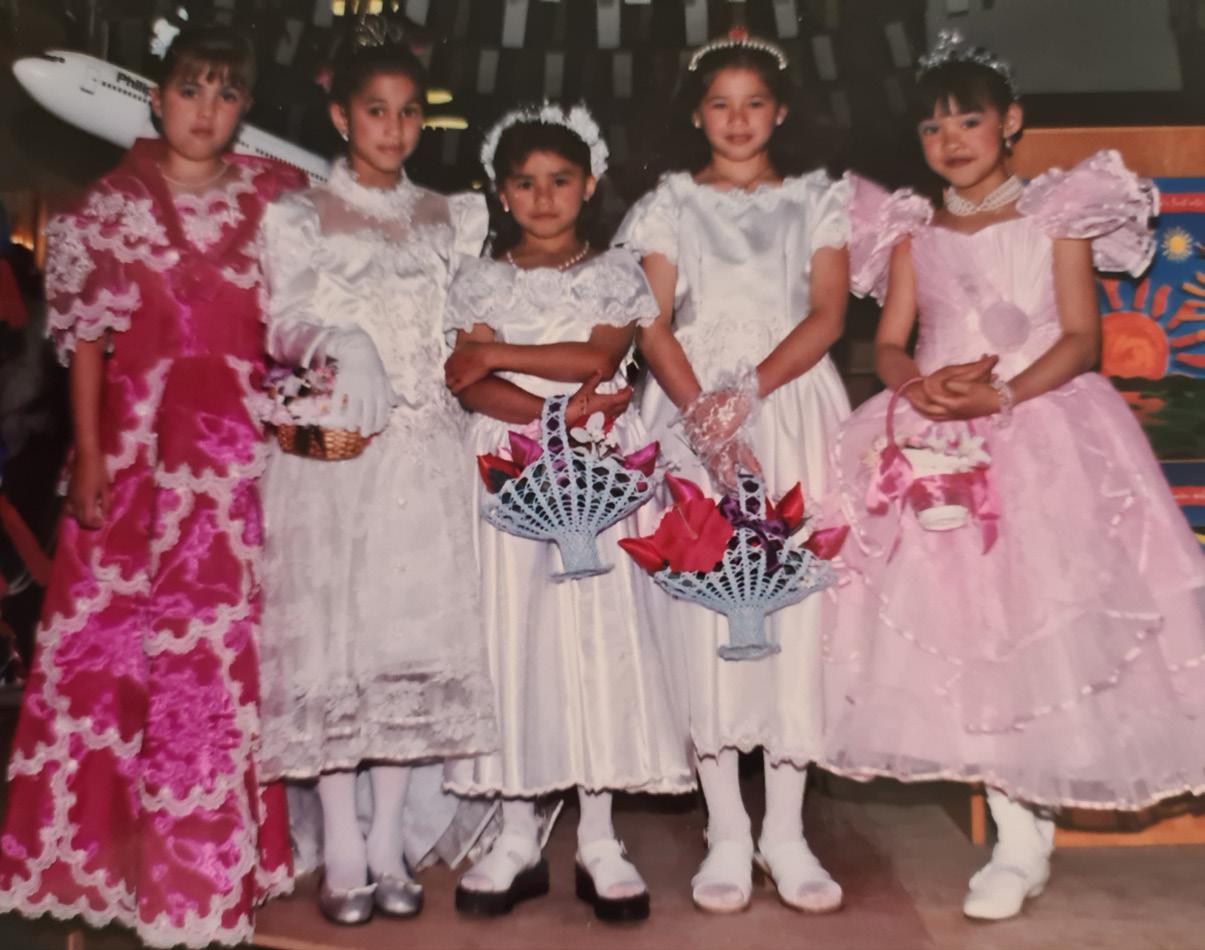
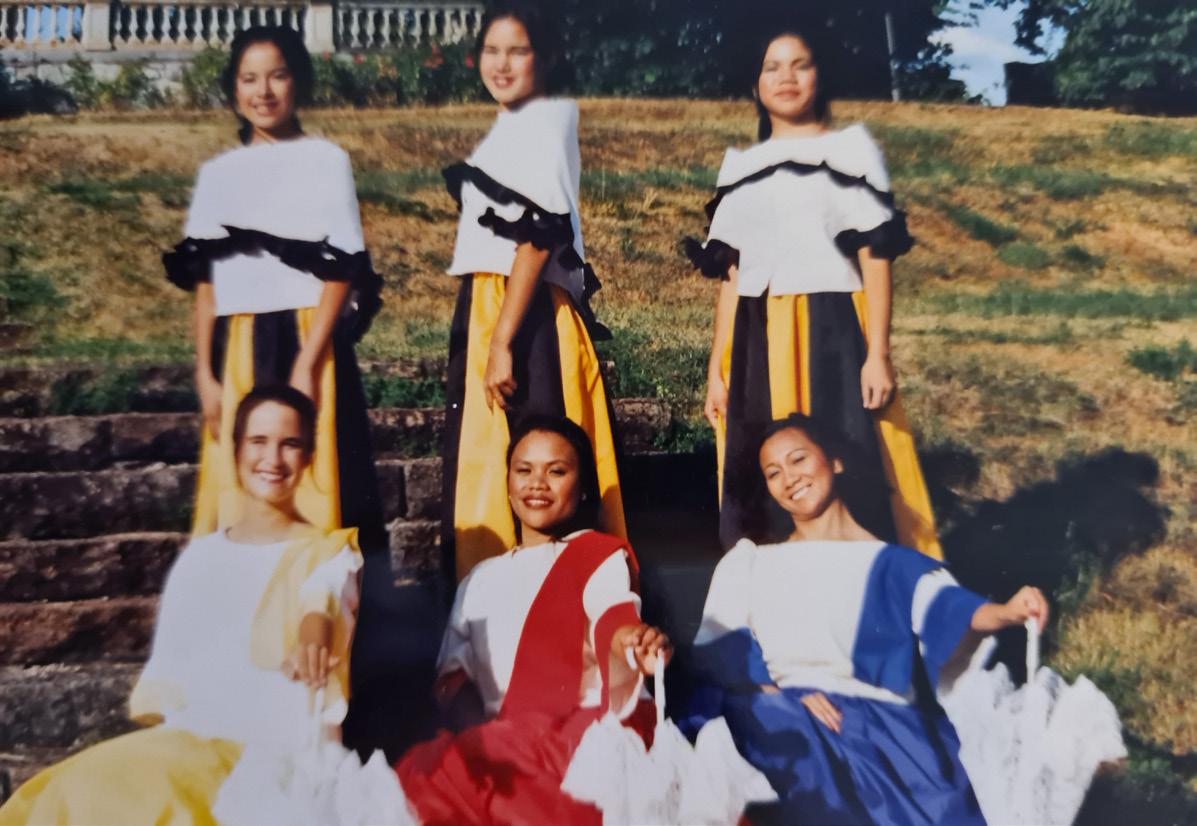
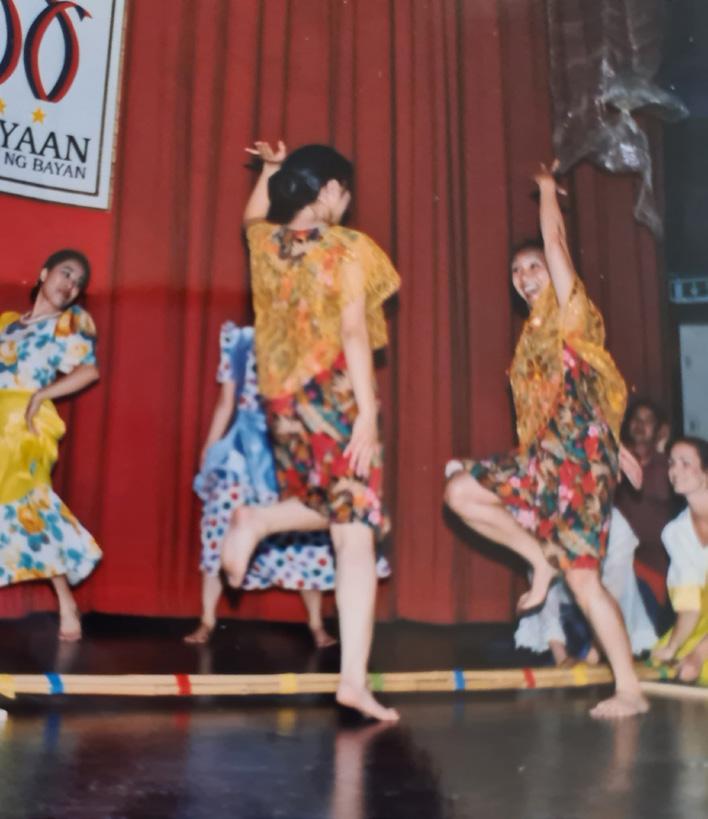
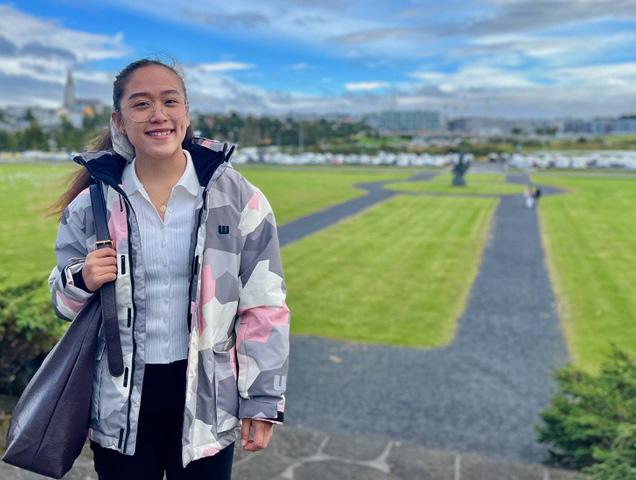
By Mildred Manuel-Vidarsson, Iceland
From the warm shores of Lapu-Lapu City in the Philippines to the icy landscapes of Iceland, Deniel Rentina “Ina” Pangilinan’s journey is more than a change of scenery—it’s a story of faith, courage, and the beauty of embracing the unknown.
If you had met Ina before Iceland, you might have seen her serving in her local church, reading a book in a café, or volunteering for community outreach
programs. The youngest of two siblings, Ina grew up in a Christian home deeply rooted in faith. Her grandparents were pastors, her parents hardworking providers, and she spent much of her childhood tagging along during Bible studies and home visits.
On the outside, she appeared confident - a leader, a devoted woman of faith. But inside, Ina quietly battled feelings of comparison and the heavy expectations of living up to others’ standards. Her older brother
always seemed to be the star, and she often felt like she was living in his shadow.
After graduating in 2019 with a degree in Elementary Education, Ina dreamed of inspiring young learners and even began a Master’s in Guidance Counseling. But when COVID-19 hit, everything changed. schools shut down, the licensure exam was postponed, and the world stopped. suddenly, the future she had planned so carefully crumbled before her eyes.
“It was a season of uncertainty,” she recalls. “I felt lost watching my peers move forward while I was stuck, trying to figure out what was next.”
Ina took jobs to help at home, including one at a production company. But the monotonous routine drained her spirit. “Life felt like a cycle - wake up, work, go home, sleep, repeat. I knew I was meant for something more.”
so she took a risk….she quit. she started helping at her mom’s office while saving money for something she was passionate about: coffee. Eventually, she cofounded a small café with a friend, supporting local farmers and celebrating Filipino coffee culture. For the first time, things started to make sense. she had freedom, creativity, and purpose.
still, Ina prayed for something bigger - a breakthrough. One day, during her devotional, she
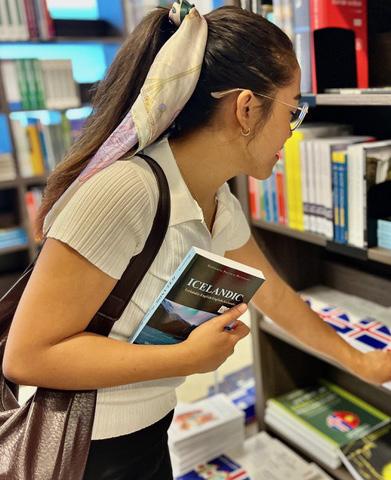
came across Colossians 3:23–24: “Whatever you do, work at it with all your heart, as working for the Lord…” That verse reminded her of the reason behind every step: to glorify God, not just to chase success. And in that season of prayer, a new desire began to form - the desire to start a new chapter abroad.
The opportunity came unexpectedly. A friend who had been an au pair in Iceland encouraged her to try the program. Ina didn’t plan on Iceland - but when the door opened, she walked through it.
“I wasn’t afraid,” she says with a smile. “I knew God had called me to this country for a reason. I trusted Him to take care of my family while I fulfilled His purpose.”
The excitement of the unknown outweighed any hesitation. Moving from a tropical island to a land of glaciers and Northern Lights was more than a physical shift - it was a leap of faith into a life completely different from the one she knew.
From the moment she arrived, Ina felt blessed. Her host family welcomed her warmly, treating her not as an employee, but as family. she cared for their children, helped around the house, and quickly fell in love with Icelandic culture. she admired how families prioritized time together - sharing dinners
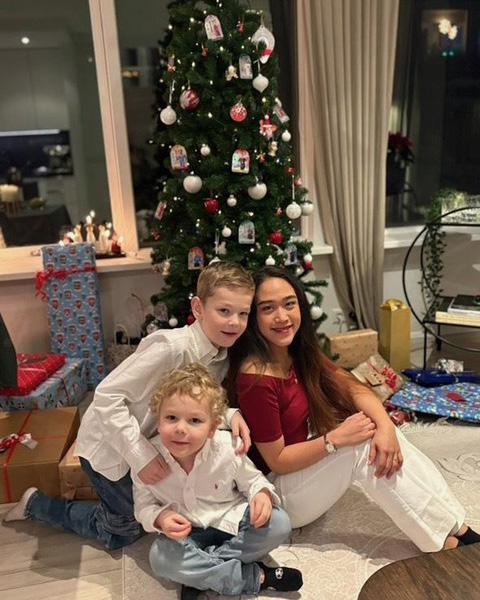
every evening despite busy schedules. she learned to appreciate their honesty and openness, even when it felt very different from her own culture.
There were challenges, of course! Adjusting to the directness of Icelandic communication and bridging the language barrier with the kids. “At first, they didn’t speak English,” Ina recalls, “but over time, they learned. We even celebrated the little victories together when they could form sentences in English.”
Ina’s one-year contract as an au pair was nearing its end when her host family did something extraordinary - they offered to sponsor her university education in Iceland if she stayed with them.
“It was an answered prayer,” Ina says with emotion. “I’ve always dreamed of earning an international degree, and suddenly, the opportunity was right in front of me.”
Today, Ina is a second-year student pursuing a BA in English Literature, blending her love for reading with her passion for language and creativity. Her
goal? To work in publishing and, one day, become an author who inspires others through words.
This experience has transformed Ina’s life in ways she never imagined. “Coming from a third-world country, opportunities like this are rare,” she shares. “It taught me gratitude on a deeper level and reminded me that God can use people as instruments of His blessings.”
Her advice for those considering becoming an au pair or studying abroad is simple yet powerful: “start from zero. Be open. Don’t let fear stop you. If I could do it, you can too. Believe in yourself, and remember who carried you through every step of the journey.”
And as for what keeps her moving forward? Ina leaves us with this powerful reflection:
“If there’s one thing I’ve learned, it’s that the life you dream of often begins where your comfort zone ends. Trust the process, trust God, and dare to take the first step….you never know how far He will take you!”
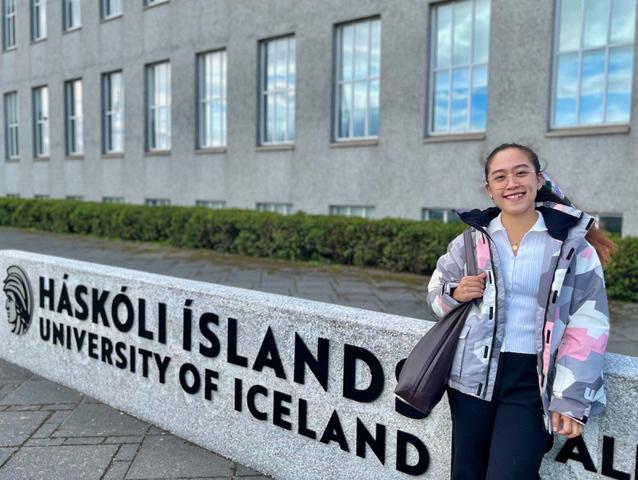
By Switzerland Association of Filipino Entrepreneurs
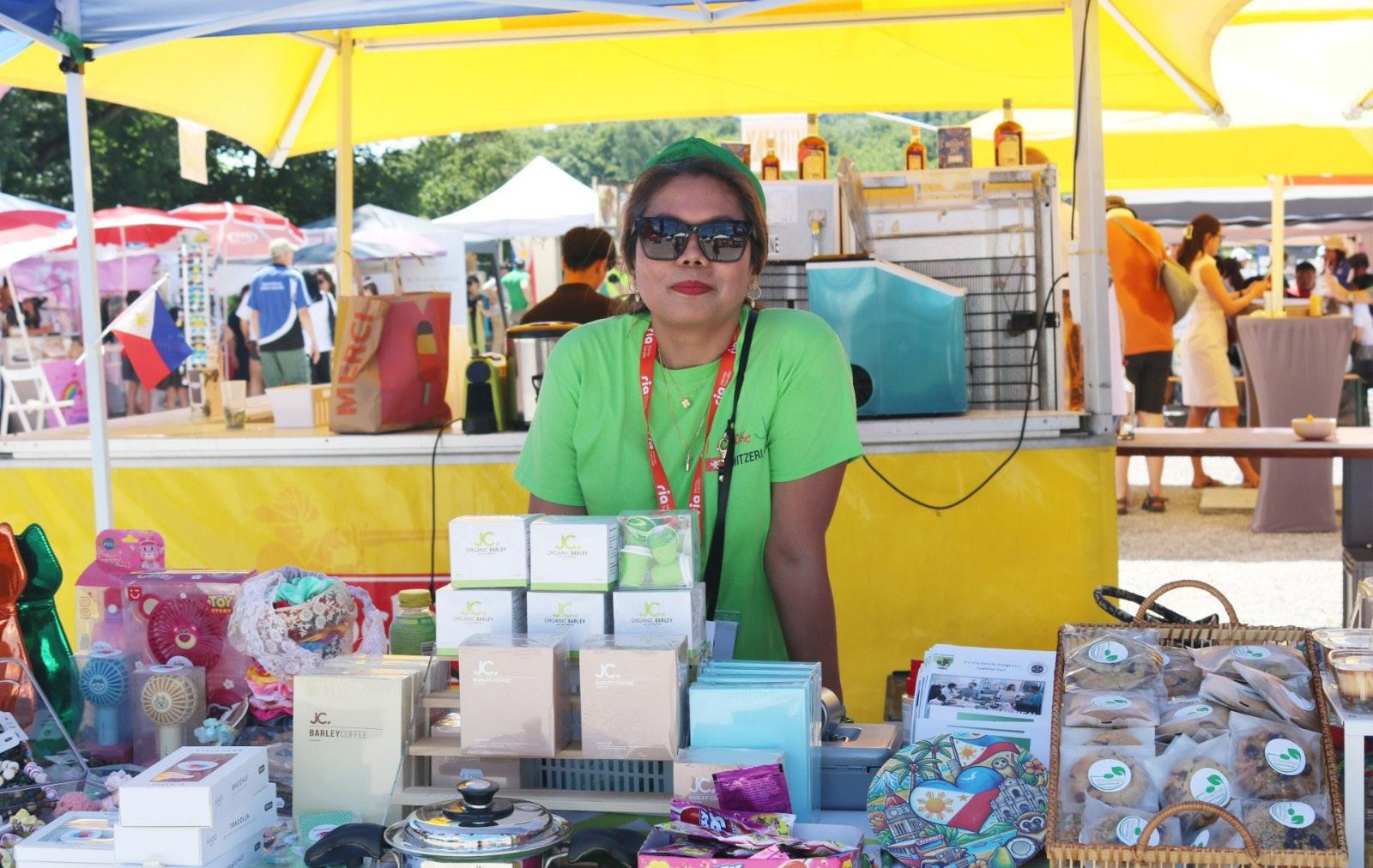
The colors of the Philippines came alive in the heart of switzerland this summer as the Filipino community gathered for the firstever Philippine Festival Zürich, a three-day celebration of culture, food, and unity held from June 27 to 29, 2025.
Timed with the Philippines’ 127th Independence Day, the festival was more than just a commemoration of freedom— it was a showcase of identity,
resilience, and pride. For the organizers and the community, one day simply wasn’t enough to capture the richness of Filipino heritage. Instead, they created a vibrant three-day affair brimming with music, performances, and the irresistible flavors of home.
Despite Zürich’s summer heat, Filipinos came in droves, with visitors and performers traveling
from across Europe—Norway, Germany, Italy, France, and beyond. Adding to the excitement, Filipino stars Jennylyn Mercado, Dennis Trillo, Liezel Lopez, and Joross Gamboa, cast members of the new GMA TV flew in from Manila. Their presence lit up the stage and made a lot of Filipinos happy.
The festival also captivated local swiss audiences. Curious visitors and vloggers documented their experiences online, delighted
by the upbeat performances, lively dances, and of course, the irresistible Filipino food stalls serving adobo, Pinoy barbecue, halo-halo, bananacue and other delicacies. For many, it was their first real taste of the Philippines— and they left with both full stomachs and wide smiles.
With an estimated 10,000 visitors over three days, the festival was a testament to the strength of the Filipino community abroad. Volunteers from different organizations poured their time and talent into making the event seamless, while local performers added their voices and rhythms to the festivities.
The Philippine Embassy in Berne, led by Ambassador
Bernard Faustino Dy, lent its full support, underscoring the significance of the festival not just as an entertainment event but as a cultural milestone.
Beyond the music and food, the Philippine Festival was a celebration of belonging. It marked the beginning of what many hope will become a cherished annual tradition in switzerland. Organized by the switzerland Association of Filipino Entrepreneurs (sAFE), the event embodied the group’s mission to unite communities, strengthen bonds, and work in harmony toward shared goals.
As the last song faded and the final round of “pasalubong” was packed away, one thing was clear: the Philippine Festival in Zürich
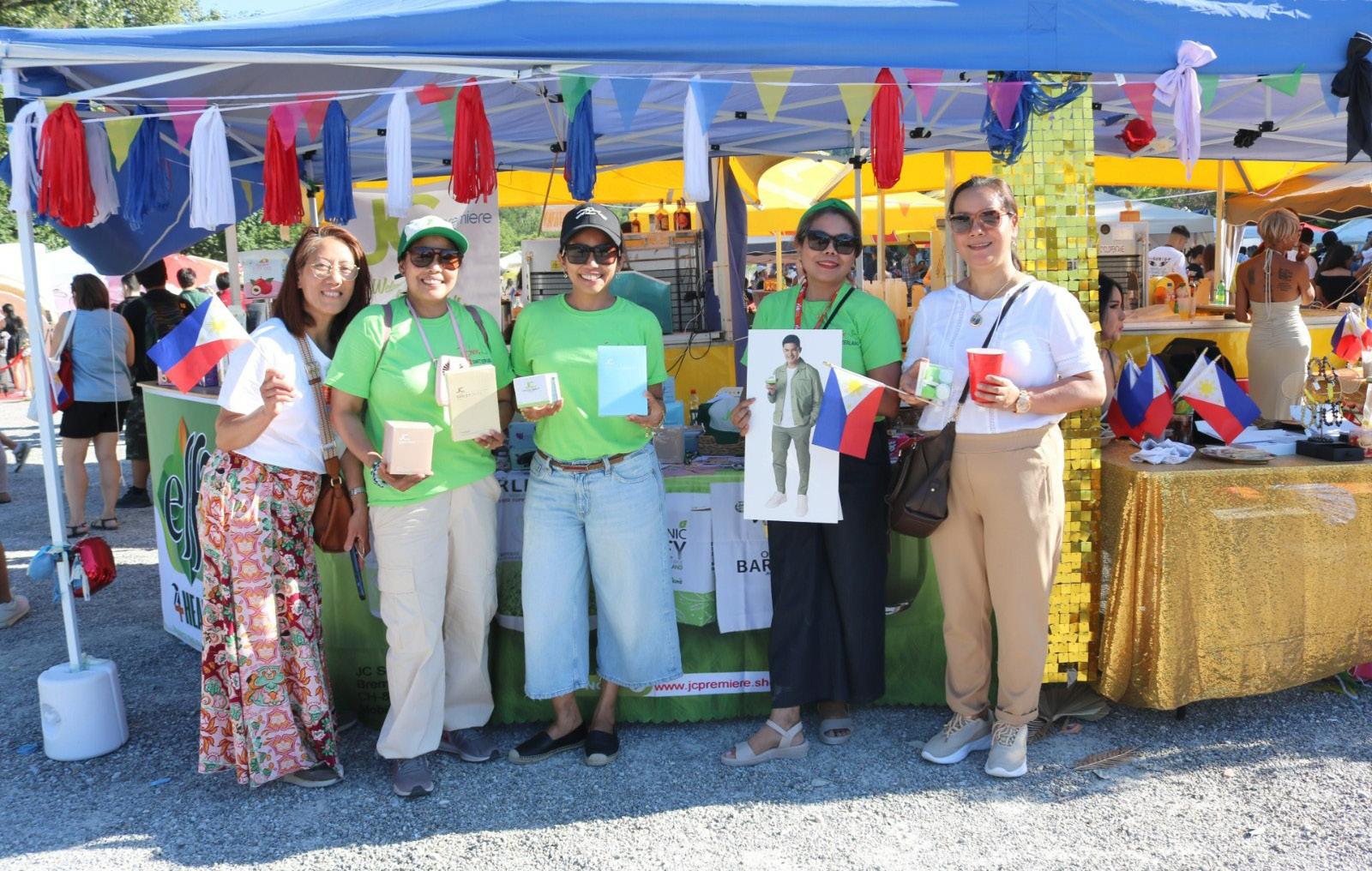
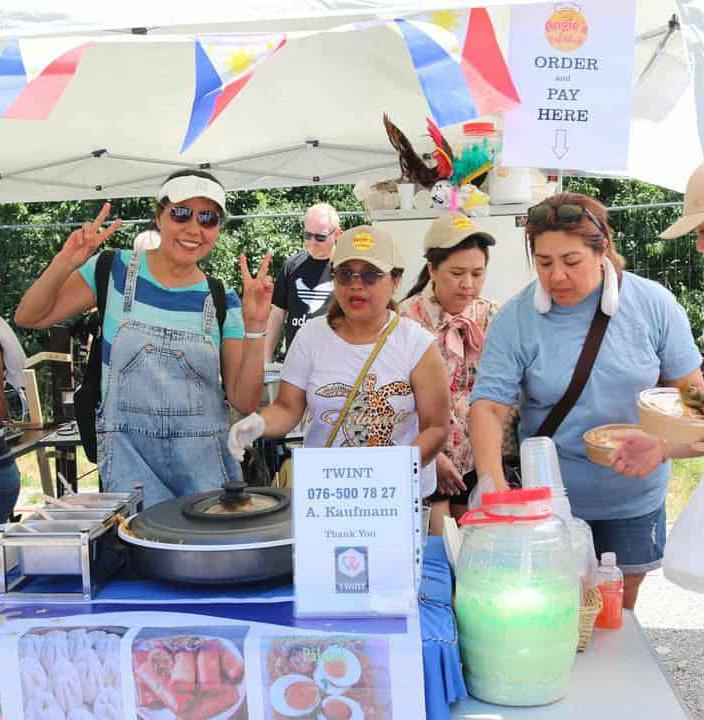
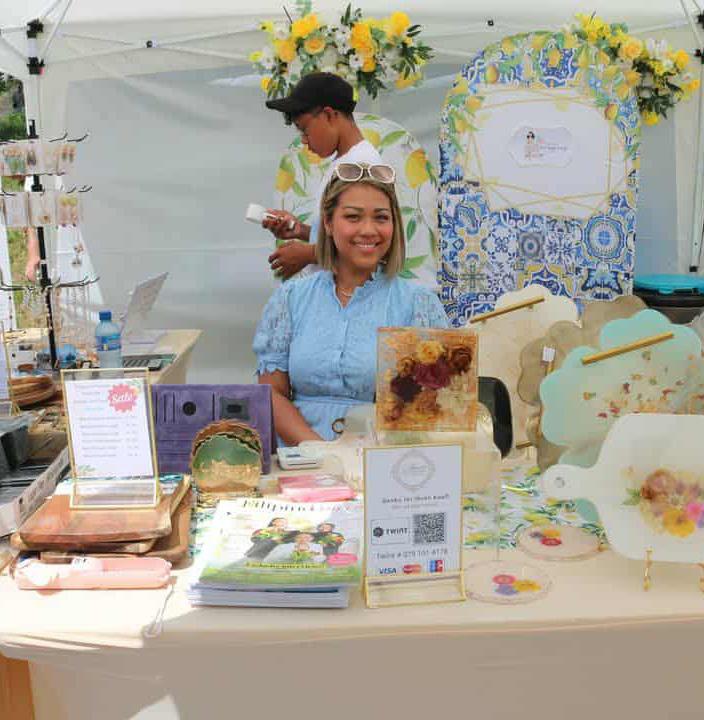
was more than a gathering. It was a bridge between cultures, a beacon of Filipino pride, and a reminder that even thousands of miles away, home is never too far when celebrated together.
The switzerland Association of Filipino Entrepreneurs (sAFE) sincerely thanks Root and Wings (RAWMAGs) for your trust and invaluable support. We deeply appreciate your partnership and commitment.
Lorna Grospietsch Noviam Moscatiello
Jennifer Yong Leu Aira Kistler
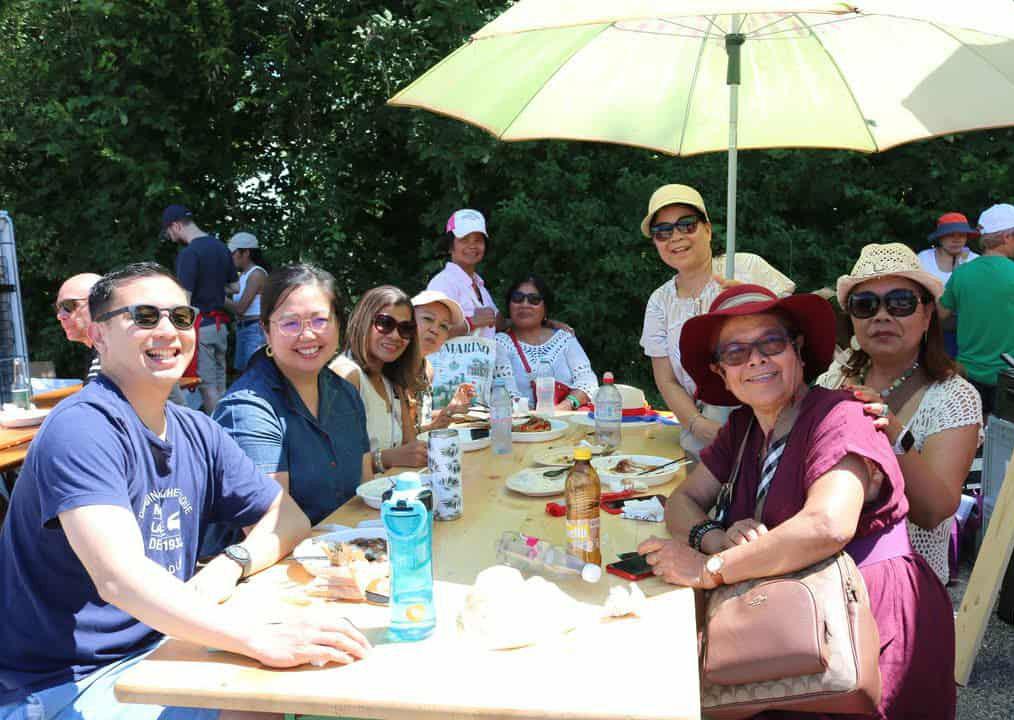
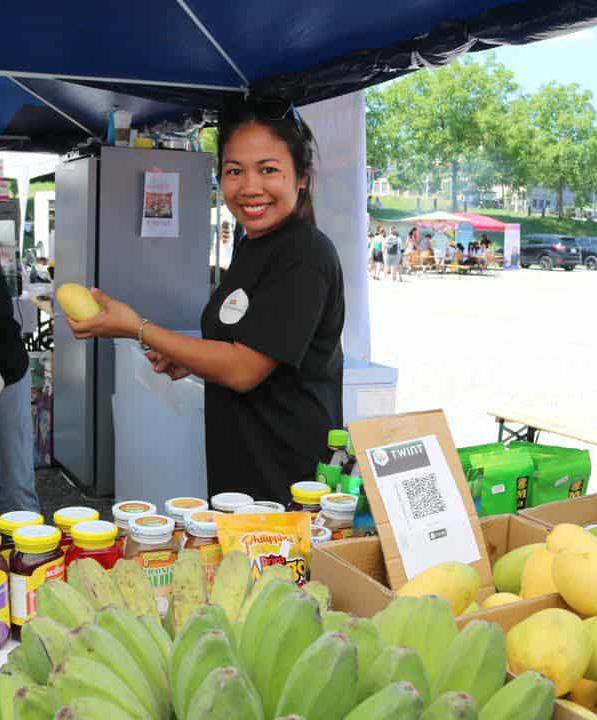
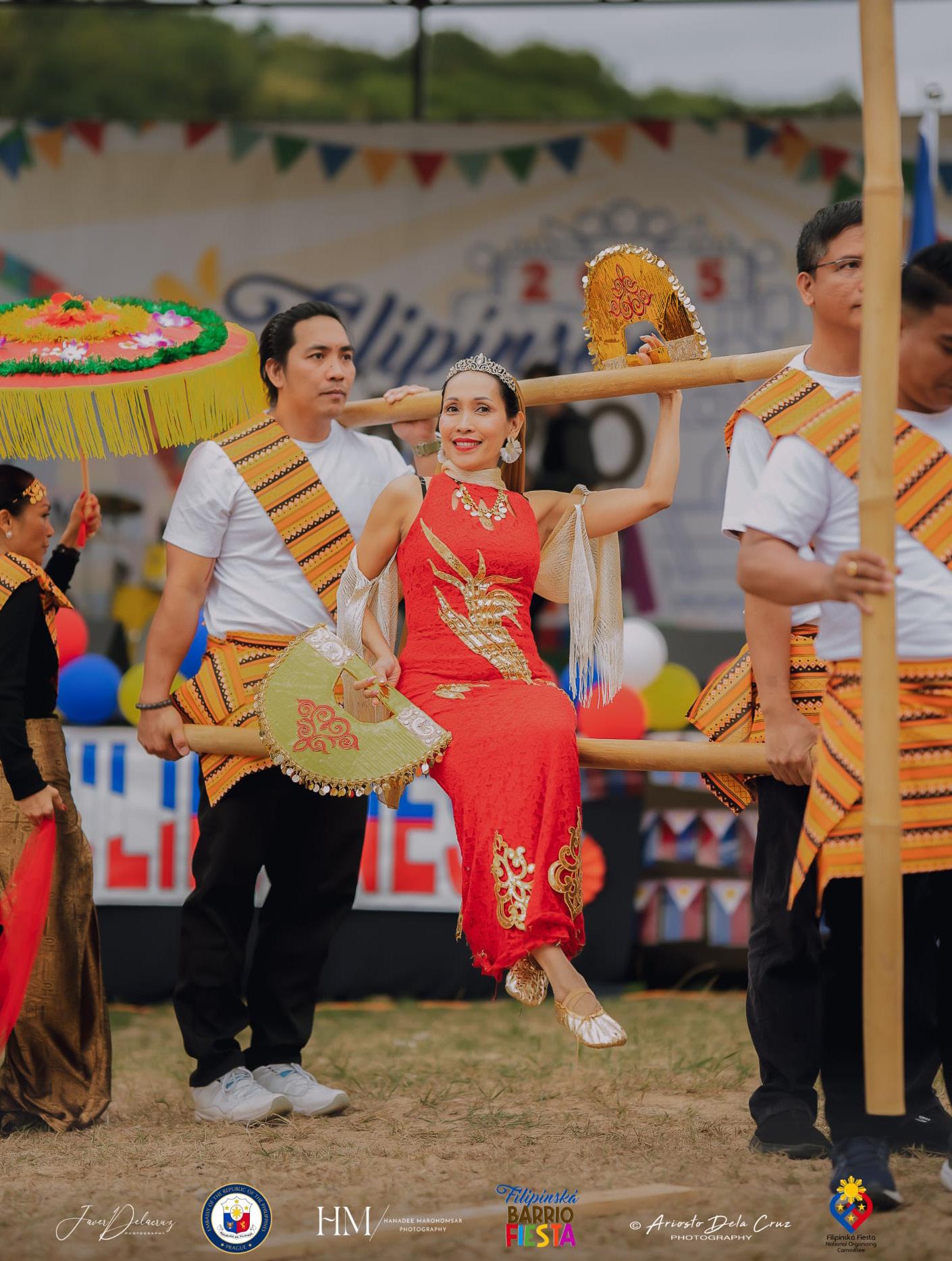
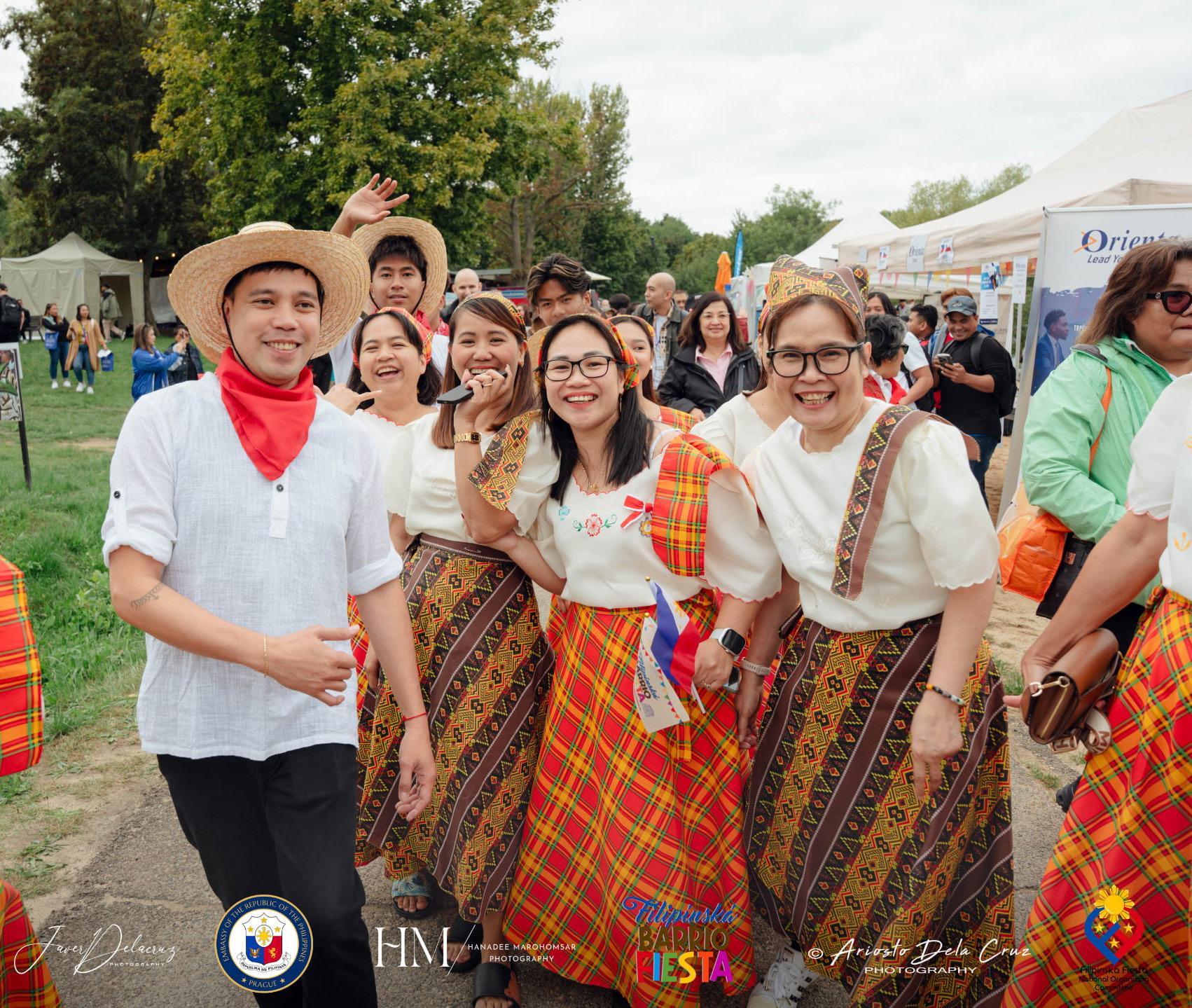
The city of Prague came alive as close to 3,000 people gathered for #FilipinskaFiesta2025, the first Filipino Barrio Fiesta of its kind in the Czech Republic. It was not just a celebration of food, games, and music—it was a vibrant showcase of unity, leadership, and the Filipino spirit of bayanihan. From morning until sunset, the venue pulsed with energy, laughter, and the proud rhythm of Filipino culture.
The fiesta drew Filipinos from every corner of Czechia—families, students, professionals, and longtime residents traveled from Brno, Ostrava, Plzeň, Liberec, and other cities to take part in the historic event. Beyond Czechia, the celebration also attracted participants from Austria, as well as groups from
Lithuania and Poland, demonstrating its regional significance. What began as a local cultural gathering quickly became an international meeting point for Filipinos across Central and Eastern Europe.
Adding to the significance of the occasion was the active participation and leadership of the Philippine Ambassador to the Czech Republic, H.E. Eduardo Menez. His presence and encouragement underscored the importance of the Filipino community in Czechia and the role of cultural events in strengthening ties between the Philippines and its diaspora abroad.
The celebration was further elevated by the personal appearance of Labor Undersecretary Felicitas Q. Bay, whose support reflected the Philippine government’s commitment to the welfare and empowerment of
overseas workers and their families. Together with Ambassador Menez, she engaged with the community, offered guidance, and celebrated alongside us.
Community and business leaders from across Europe also lent their voices and presence to the occasion, reinforcing the idea that the fiesta was more than a one-day event—it was a united expression of Filipino identity, solidarity, and pride across borders.
At its core, #FilipinskaFiesta2025 was a celebration of Filipino heritage. Attendees enjoyed traditional games, live cultural performances, raffle draws, and food stalls that recreated the flavors of home in the heart of Prague. They even got the chance to sing their hearts out in a karaoke booth.
Yet, what made this fiesta especially unique was its integration of essential services. On-site, participants were able to renew passports, access consular assistance, and benefit from business consultations and community resources. This seamless blend of culture and service was especially
valuable for overseas Filipinos balancing demanding work schedules, allowing them to celebrate while addressing practical needs.
Behind the festive atmosphere stood a dedicated team of volunteers, headed by Maria Vranova Lu, whose tireless efforts ensured the day’s success. From organizing the program and making press releases, to budgeting, organizing booths and guiding attendees, their contributions reflected the Filipino tradition of bayanihan. Their hard work, in partnership with officials and community leaders, created an environment where everyone felt welcomed, supported, and celebrated.
The fiesta did more than bring joy for a single day—it forged deeper connections across borders. Filipinos from different walks of life came together, building friendships and strengthening ties not only within
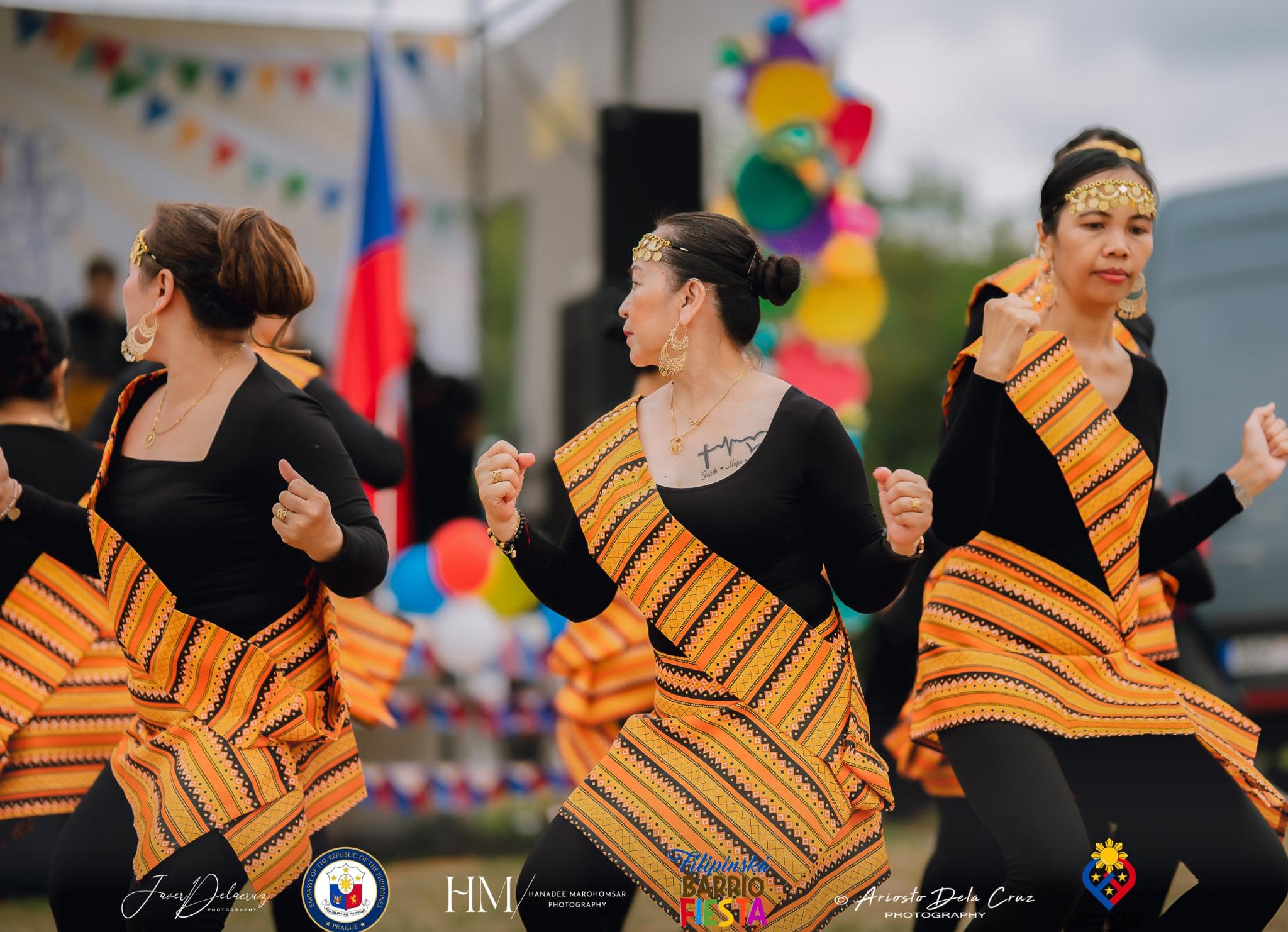
Czechia but also across neighboring countries. For many, it was an opportunity to reconnect with their roots, introduce traditions to younger generations, and celebrate their identity with pride.
As the sun set on #FilipinskaFiesta2025, participants left with memories that will last for years to come. More than just a day of festivities, the event stood as a milestone for the Filipino community in Czechia— proof of what can be achieved when tradition, leadership, and community spirit converge.
With the active leadership of Ambassador Eduardo Menez, and the wholehearted support and dedication of countless community leaders and volunteers from across Czechia, the fiesta has set a new benchmark for cultural and community events. It showed that when Filipinos unite—wherever we may be—we can create something truly extraordinary.
#FilipinskaFiesta2025 was not only a celebration of culture and service; it was a living testament to resilience, unity, and the enduring light of the Filipino spirit abroad.
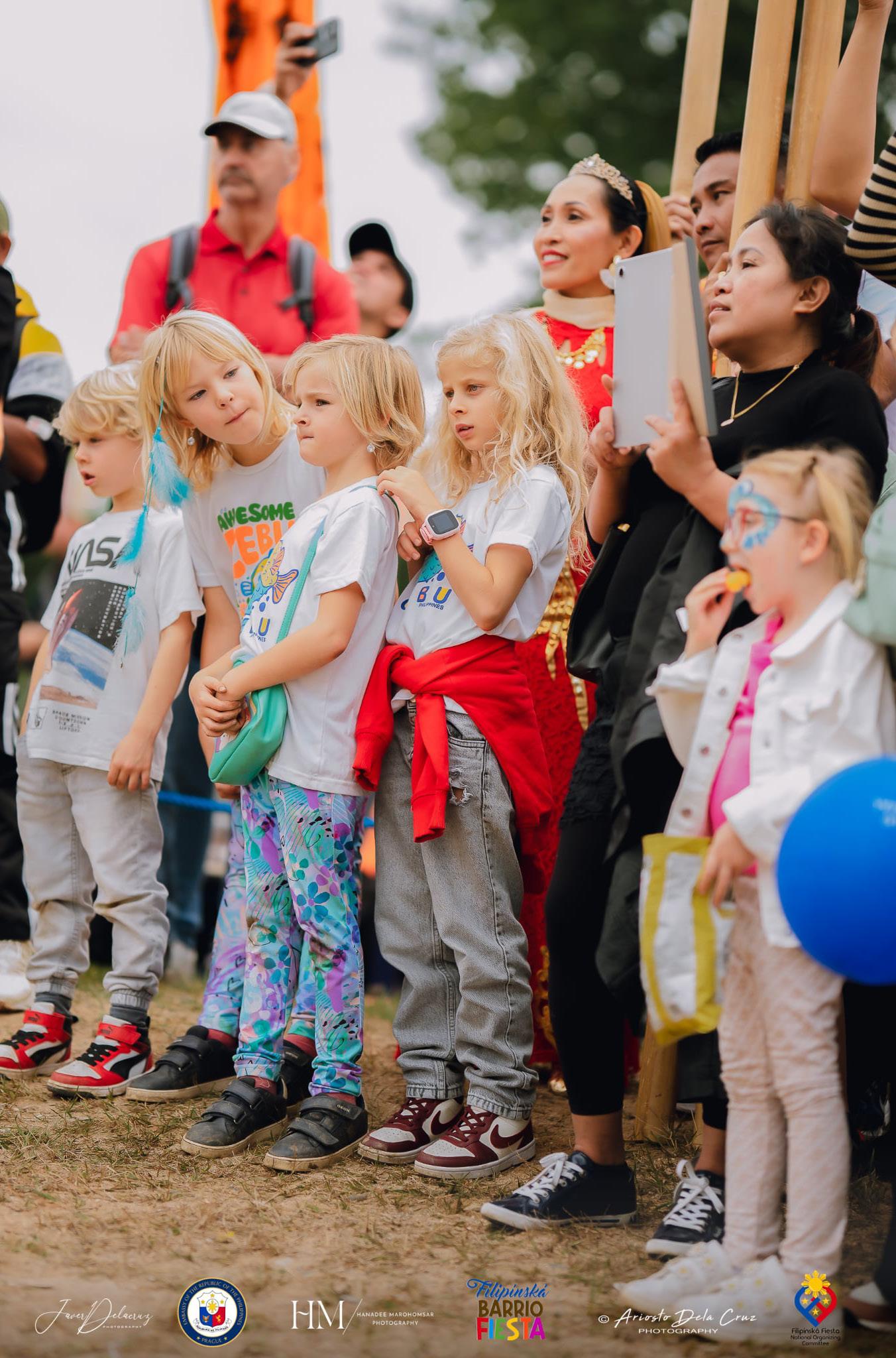
Grace Bantol is a Filipino professional and freelance writer based in the Czech Republic. She holds a degree in Food Technology from the University of the Philippines and has built an international career in both quality management and education. An English lecturer and active community volunteer, she served as emcee and a member of the PR and marketing team for the first Filipino Barrio Fiesta in Prague. Drawing on her own experiences of migration and adaptation, she writes about culture, community, and the shared stories that connect Filipinos around the world.
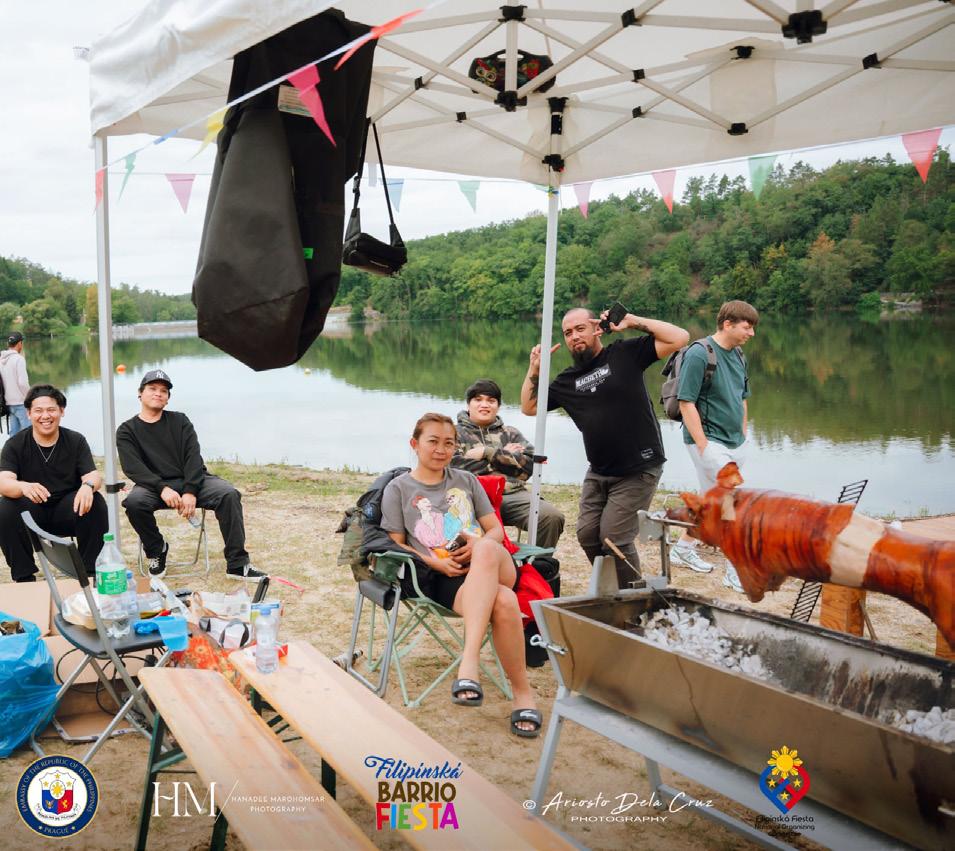
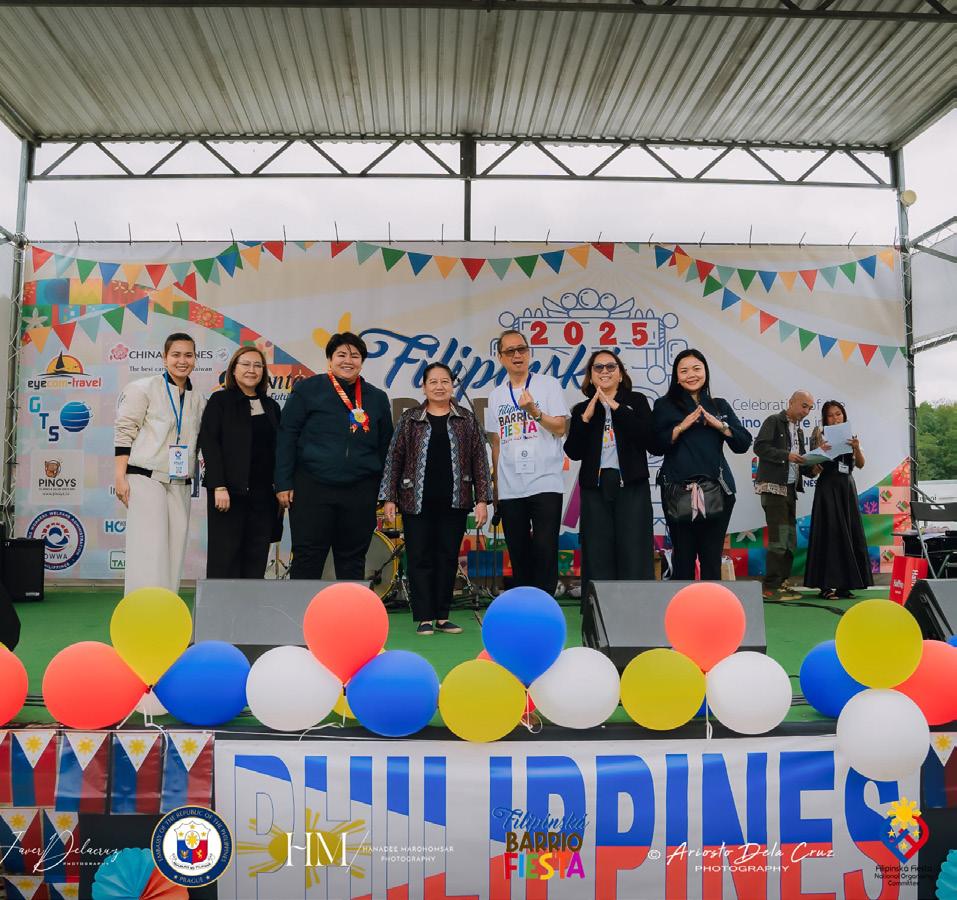
By Anne Tafalla, Helsinki, Finland
The Philippine Embassy in Helsinki, in partnership with Oodi Library, held a book reading session on 22 August 2025 as part of “BOOKlatin sa Oodi,” in celebration of Buwan ng Wika (National Language Month).
Children listened to the Filipino story “Alamat ng Palay” (The Legend of Rice), read by Ambassador Domingo Nolasco and teacher Ricca Carsula from Espoo Multicultural Education service.
After the storytelling, participants explored the “BOOKlatin sa Oodi” exhibit, showcasing children and young adult books by Filipino authors. The exhibit runs until 31 August 2025 and is free to the public.
By Anne Tafalla, Helsinki, Finland
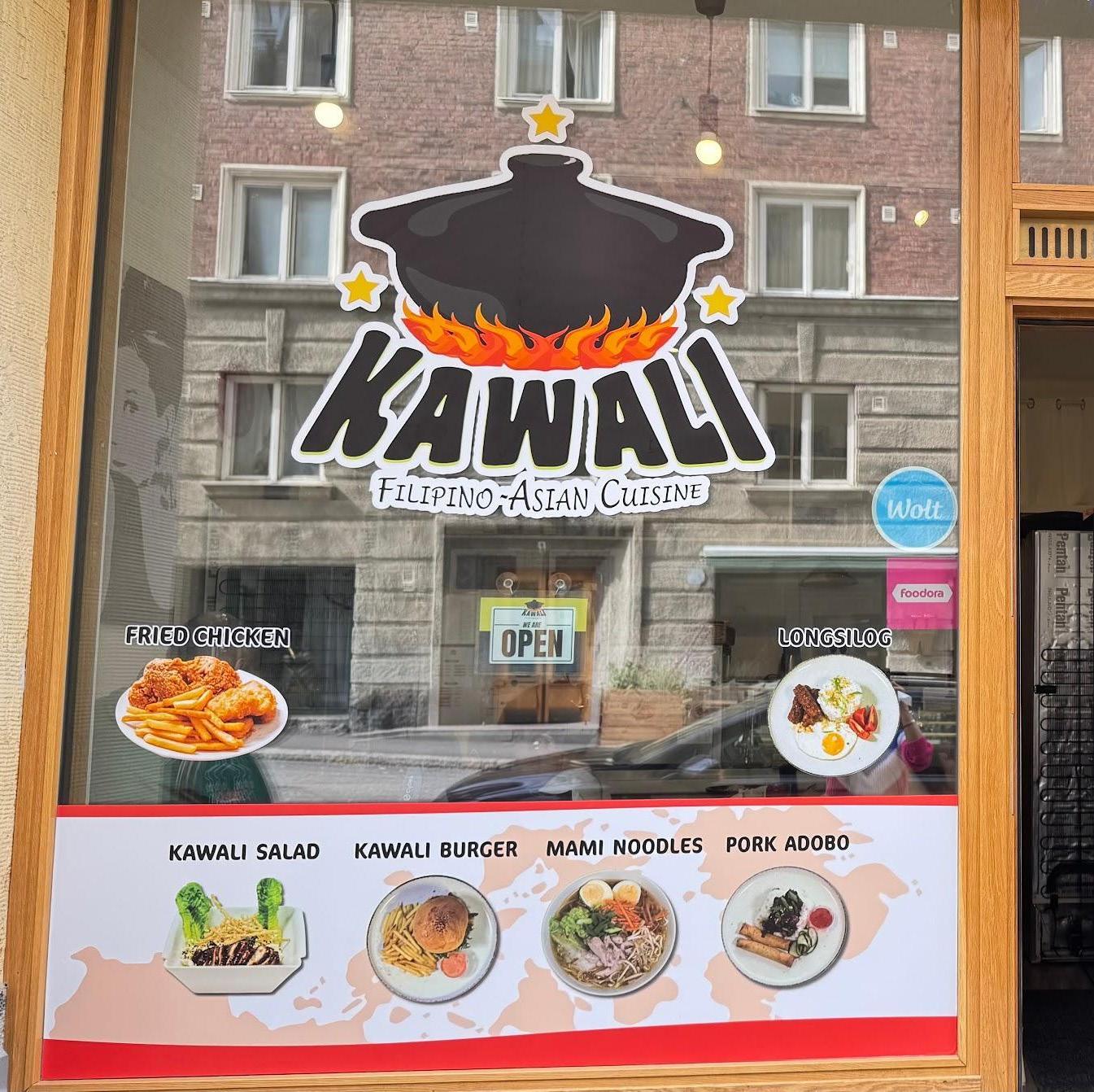
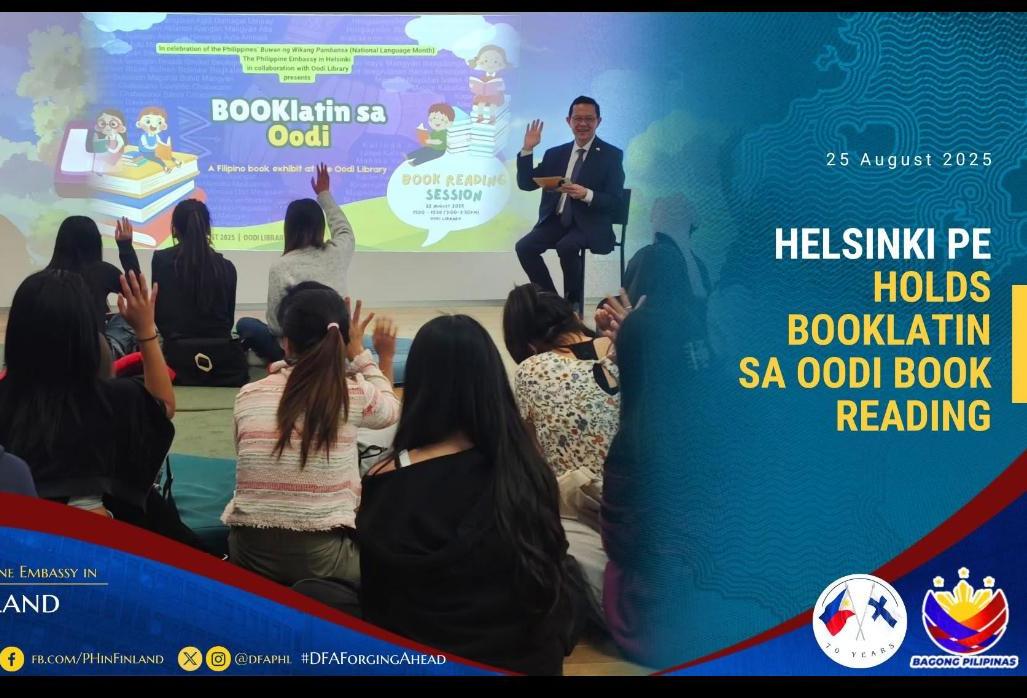
A
new restaurant is adding Filipino flavor to the city´s food scene.
Kawali Filipino-Asian Cuisine, owned and operated by Rems Moreno, has opened its doors in Kallio, serving both traditional Filipino dishes and fusion comfort food. The restaurant, located at Fleminginkatu 12, Helsinki, also offers delivery online through Wolt and Foodora, making its menu accessible across Helsinki.
AMONG THE HIGHLIGHTS SPOTTED ON THE MENU ARE:
• Pork Adobo – the Philippines’ signature marinated pork stew
• Longsilog – sausage with garlic rice and egg, a classic Filipino breakfast
• Mami Noodles – a comforting noodle soup
• Kawali Burger and Kawali salad – familiar favorites with a Filipino twist
• Fried Chicken with Fries – blending Filipino flavor with global comfort food
Owner Rems Moreno said the goal is to bring the warmth and variety of Filipino cuisine to a wider audience in Helsinki. With dishes that range from silog breakfasts to hearty stews, Kawali aims to appeal both to the Filipino community and to Finns curious to try something new.
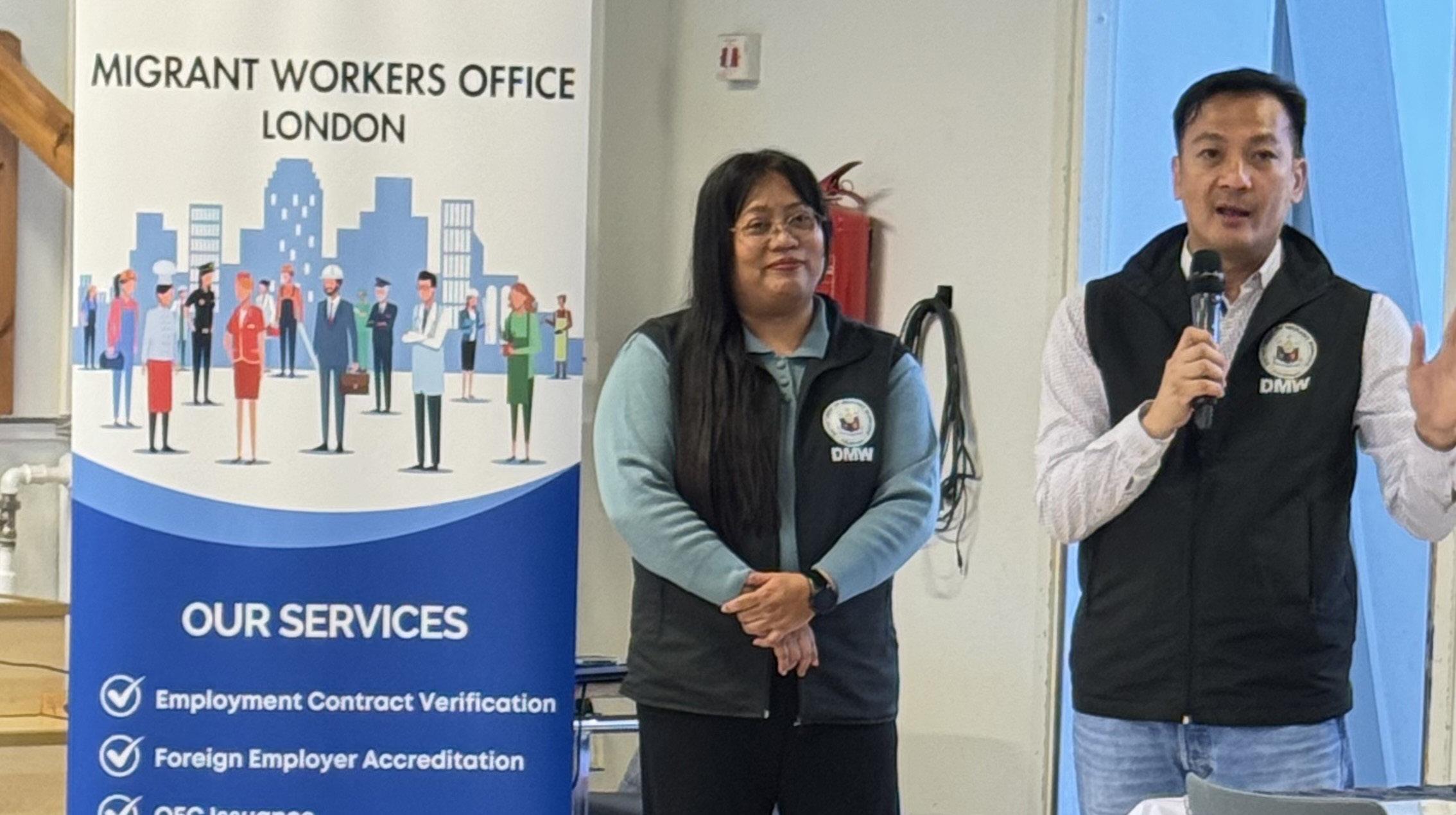
By Anne Tafalla, Helsinki, Finland
Filipinos in Finland had the chance to speak directly with officials from the Department of Migrant Workers (DMW) during a town hall meeting held on september 14, 2025, at Vipusentie 19, Helsinki. The event was organized in cooperation with the Philippine Embassy in Finland.
The town hall gave Overseas Filipino Workers (OFWs) a space to share their stories — from everyday struggles to bigger challenges — so the DMW can better understand their needs and improve the services available to them.
One issue highlighted was human trafficking, a growing
concern for migrant workers around the world. Officials reminded the community to stay alert and assured them that the department is ready to respond if such cases arise.
Assistant secretary Atty. Levinson Alcantara encouraged Filipinos not to hesitate to reach out for help. He said OFWs can contact him through his social media account or connect with the DMW through its official pages online.
The DMW also shared that this won’t be their only stop. They plan to visit other municipalities in Finland to connect with more Filipinos and bring the
department’s support closer to where people live and work.
For many OFWs, the meeting was more than just an event — it was a reminder that they are not alone, and that the government is making efforts to listen and stand by them while they build their lives abroad.
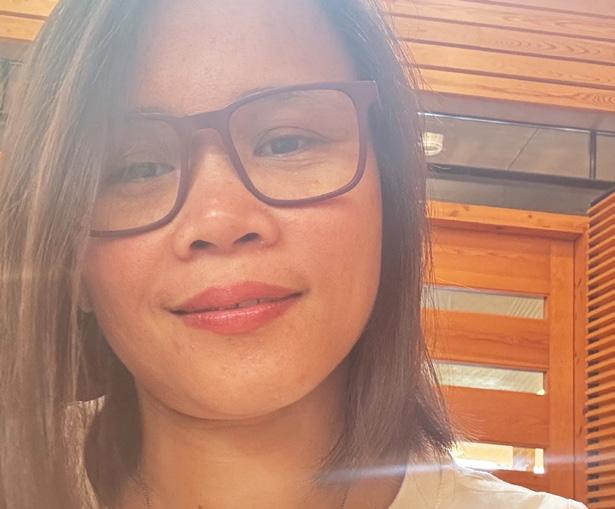
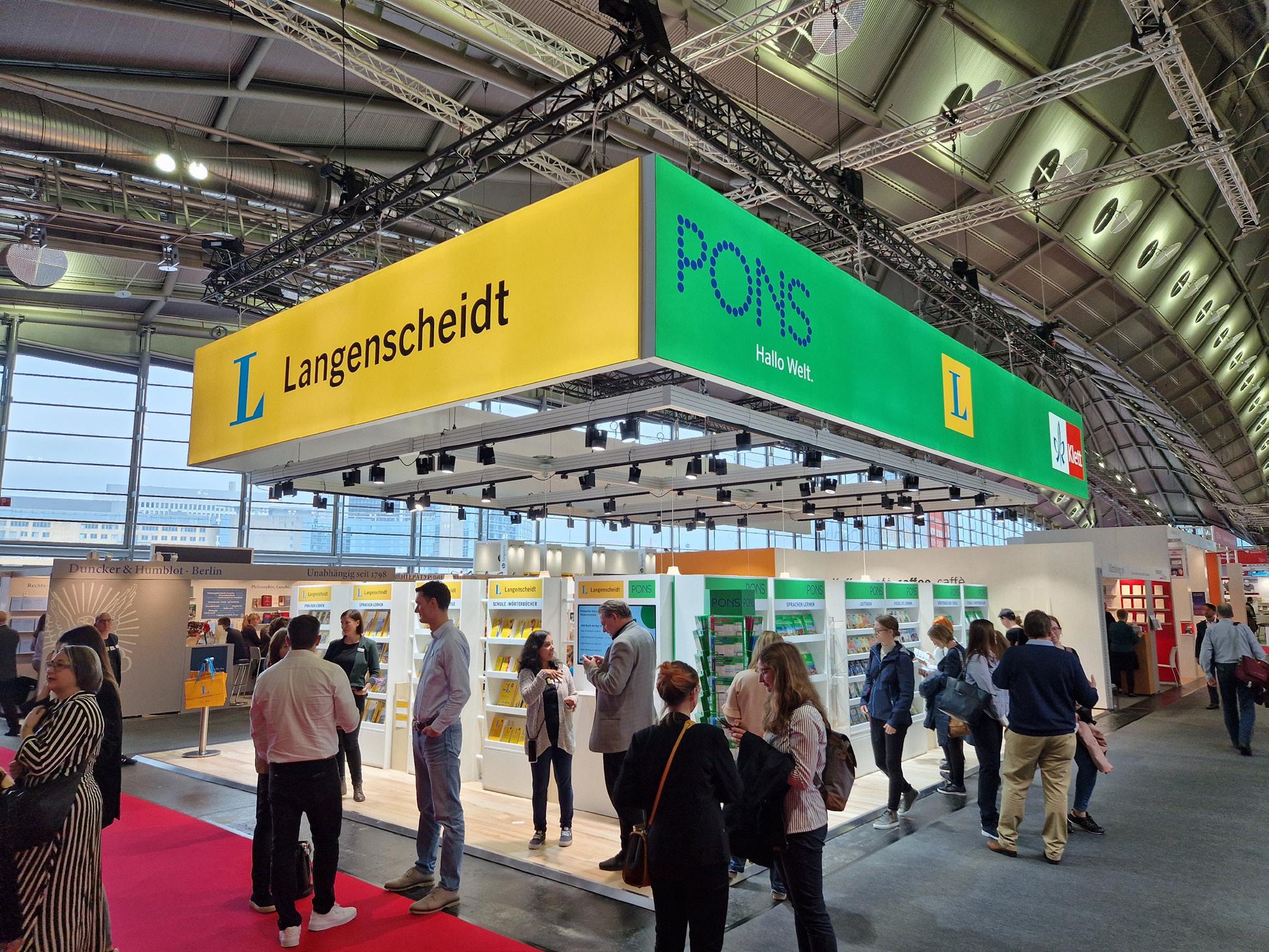
By Commission on Filipinos Overseas
Filipino literature is about to make its grandest entrance yet on the global stage.
The Philippines is set to become the Guest of Honor at the 2025 Frankfurt Book Fair, the largest and most influential publishing event in the world.
In an episode of The Chairman’s Report aired on Friday, Commission on Filipinos Overseas (CFO) secretary Dante “Klink” Ang II sat down with Executive Director Charisse Aquino-Tugade of the National Book Development Board (NBDB) to discuss the Philippines’ landmark participation as Guest of Honor at the 2025 Frankfurt Book Fair and the transformative power of books to shape national identity and connect Filipino communities across the world.
"Books are not merely tools for learning, they are vessels of memory, imagination, and identity. They
document our stories, express our values, and create a bridge between generations and across geographies,” secretary Ang opened during the broadcast.
Charisse Aquino-Tugade explained the significance of the Frankfurt Book Fair, the world’s largest and most prestigious trade fair for books and intellectual property rights.
“In the Frankfurt Book Fair, it's quite different. It's a right-selling fair, meaning different authors and publishers from different countries bring their products to the marketplace... and they sell the rights to different territories,” Aquino-Tugade said.
Highlighting the gravity of the country’s participation, Aquino-Tugade shared, “After Indonesia, about 10 years ago, was Guest of Honor, we would only be the second southeast Asian country to be bestowed this great honor... We're never front and center. And
now is really the time we're given the opportunity where there will be more space for us and our narratives in the different languages that we speak.”
The Philippine pavilion will span 2,000 square meters, showcasing a beautiful exhibition of the greatness of the Filipinos through literature and culture.
According to Aquino-Tugade, the delegation will include more than 120 creatives, authors, illustrators, editors, plus 50 publishing houses.
Key collaborators include the National Commission for Culture and the Arts (NCCA), which will lead the cultural programming, while NBDB will take charge of literary curation.
“We, as the Philippine government, hold that space and we invite everyone to take part in sharing their voice, their unique voice,” Aquino-Tugade affirmed.
Beyond Frankfurt, Aquino-Tugade also gave insight into the growing national impact of the Book Nook, an NBDB-initiated community-based reading program.
“We realized that there are not enough Filipino books anywhere… so we wanted to create spaces that were easy for people to enter... Book Nooks are spaces filled with Filipino authored books. And it could be any space... where we fill it up with Filipino authored books.” Aquino-Tugade shared.
These spaces double as cultural hubs. “We teach art, we teach mommies how to read, we teach children everything, acting, so that they can just get into the space and be comfortable... and pick up a book as well,” she added.
Tugade shared that the project now includes about 1,200 titles which are regionally tailored to reflect local languages and cultures.
“By next year, I think we're putting another 20 up. so by 2028, we're looking at about 160, 170 Book Nooks,” she noted.
The impact is also felt globally, with Book Nooks already established in Korea and Michigan. “We, of course, have a diaspora because there's so many Filipinos, one in six of our population live and work abroad. so you want to be able to cater to them as well.”
secretary Ang, recognizing the potential of the program to serve Filipino communities overseas, raised the possibility of collaboration between the NBDB and the CFO’s network of 34 Philippine schools Overseas. He expressed his support by offering to facilitate partnerships, stating the CFO’s ongoing efforts to bridge the diaspora with programs that promote Filipino identity and culture abroad.
This strategic partnership could further strengthen the NBDB’s goals, which Aquino-Tugade emphasized: “so the communities, actually, once you set up a Book Nook, kids are not only reading, and families are not
only reading, but they're also, they take part in the creation where they start creating their own stories. And that's what we want, for people to start creating their own, in their own voice.”
With the global spotlight shining on Philippine literature in Frankfurt and cultural access expanding across local and international communities through the Book Nook initiative, the NBDB and CFO reaffirm their shared commitment to uplifting Filipino stories, wherever they are read, written, or imagined.
About the Commission on Filipinos Overseas
The CFO, established under Batas Pambansa Blg. 79, is dedicated to the welfare and empowerment of Filipinos permanently residing abroad. It is distinct from the Department of Migrant Workers (DMW), which primarily addresses the needs of Overseas Filipino Workers (OFWs), and other temporary migrants.
CFO works to strengthen the social, economic, and cultural ties of global Filipinos with their home country. Its primary constituents include Filipino permanent migrants, dual citizens, spouses and partners of foreign nationals, individuals in exchange visitor programs, au pair participants, and children of foreign nationals with Filipino roots.
MEDIA AND COMMUNICATIONS TEAM
INFO@CFO.GOV.PH | RKPERALTA@CFO.GOV.PH +63 960 579 0078 (VIBER)
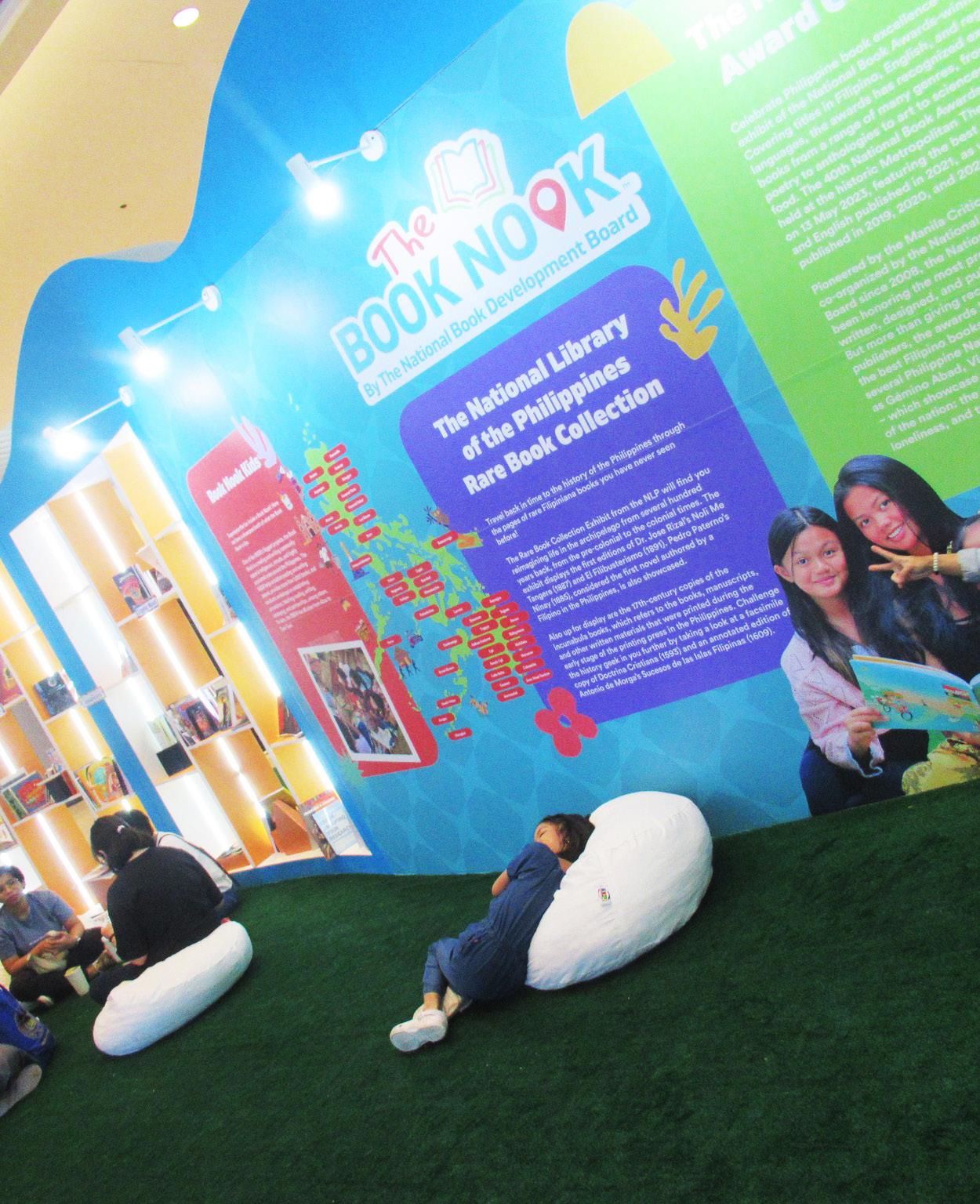

Roots & Wings, the online Filipino magazine in Europe, founded in 2009, is looking for more voluntary contributors and country editors, especially in the following countries: Italy, Denmark, Finland, Iceland, Portugal, Malta, Greece, Poland, Turkey, Ireland
You do not need a degree in journalism, but you should enjoy writing, be flexible, open-minded, and curious, and have a good overview and friendly contacts with the Filipino community where you live.
If you'd like to be part of our happy and dynamic team, please send your CV and a writing sample to rawmags.rebecca@gmail.com